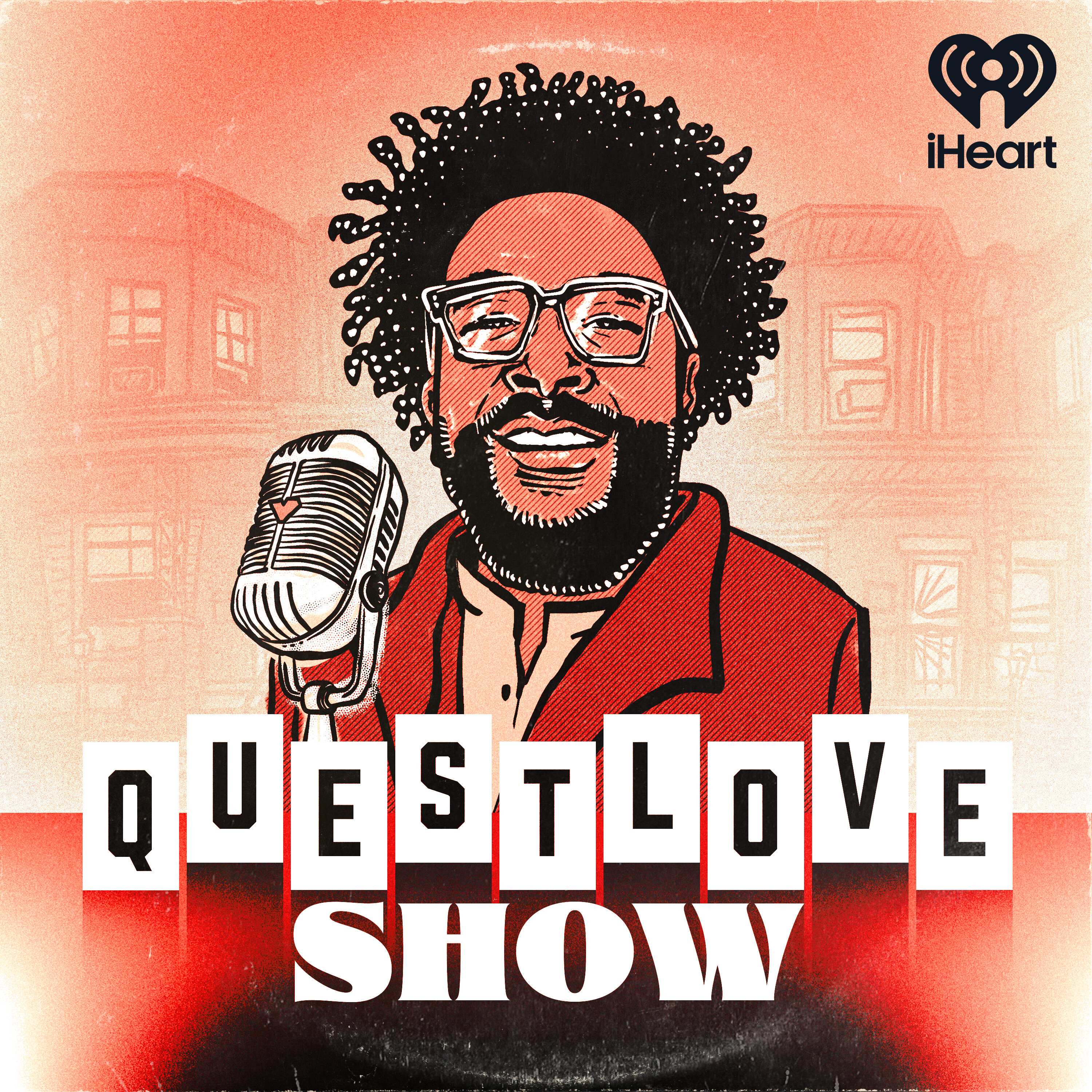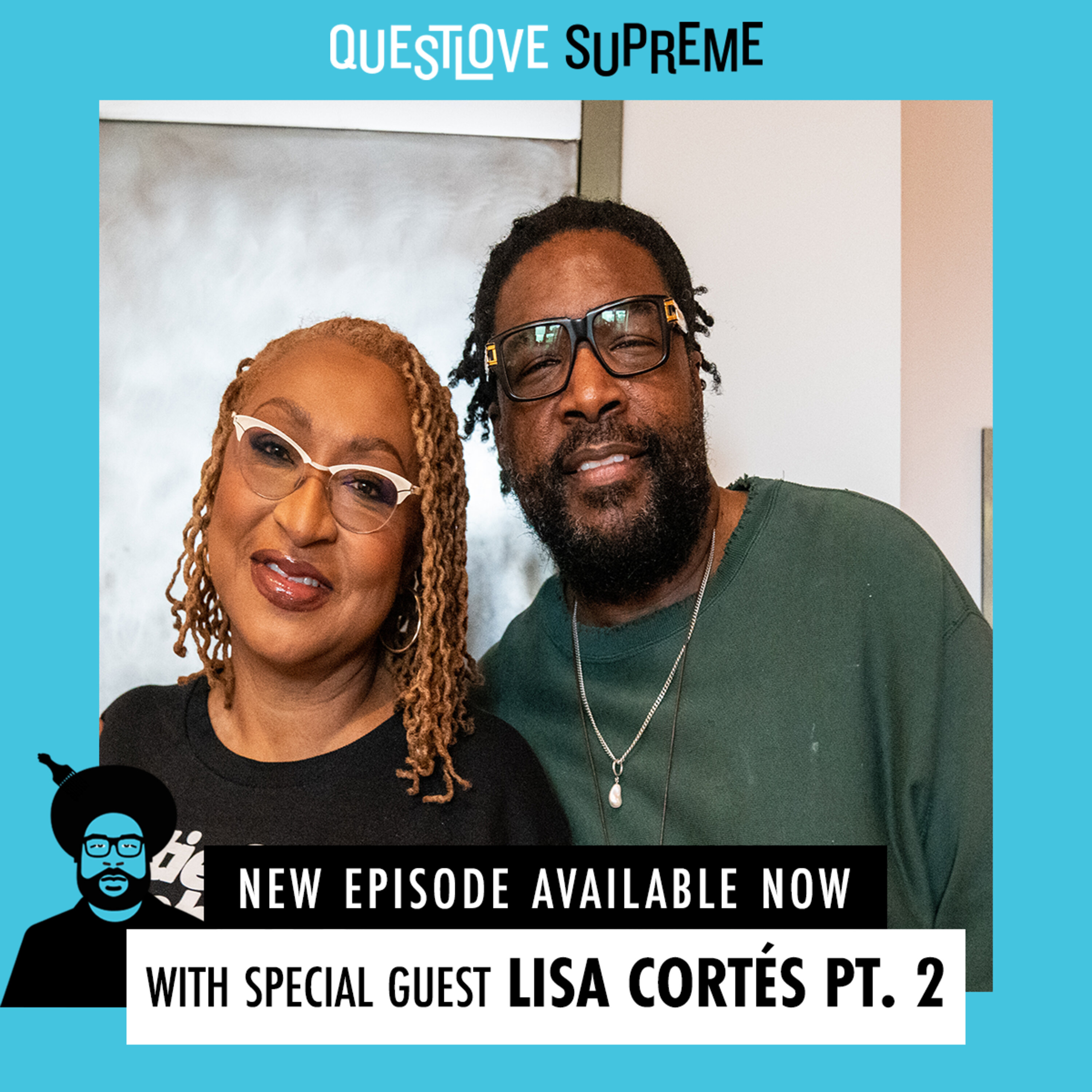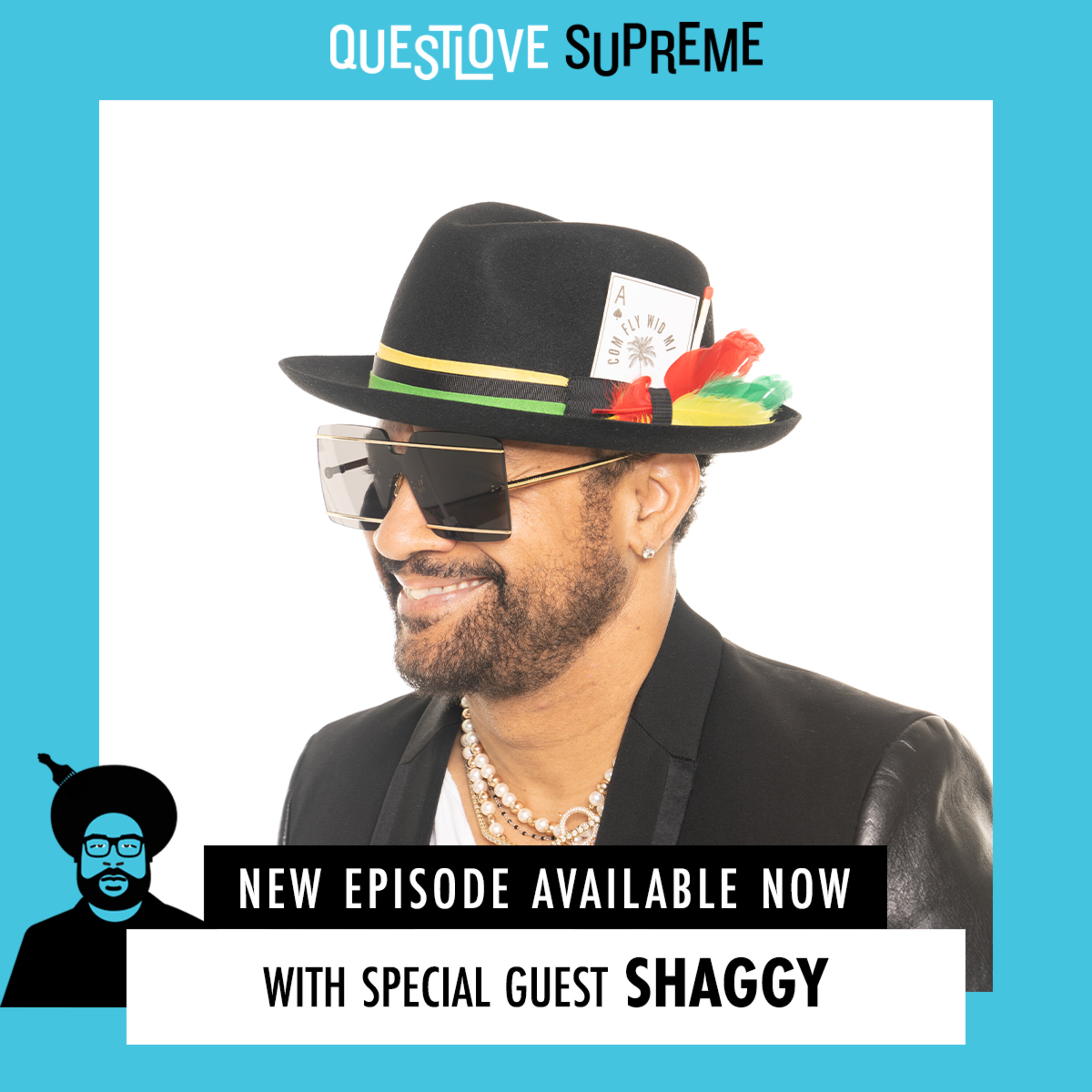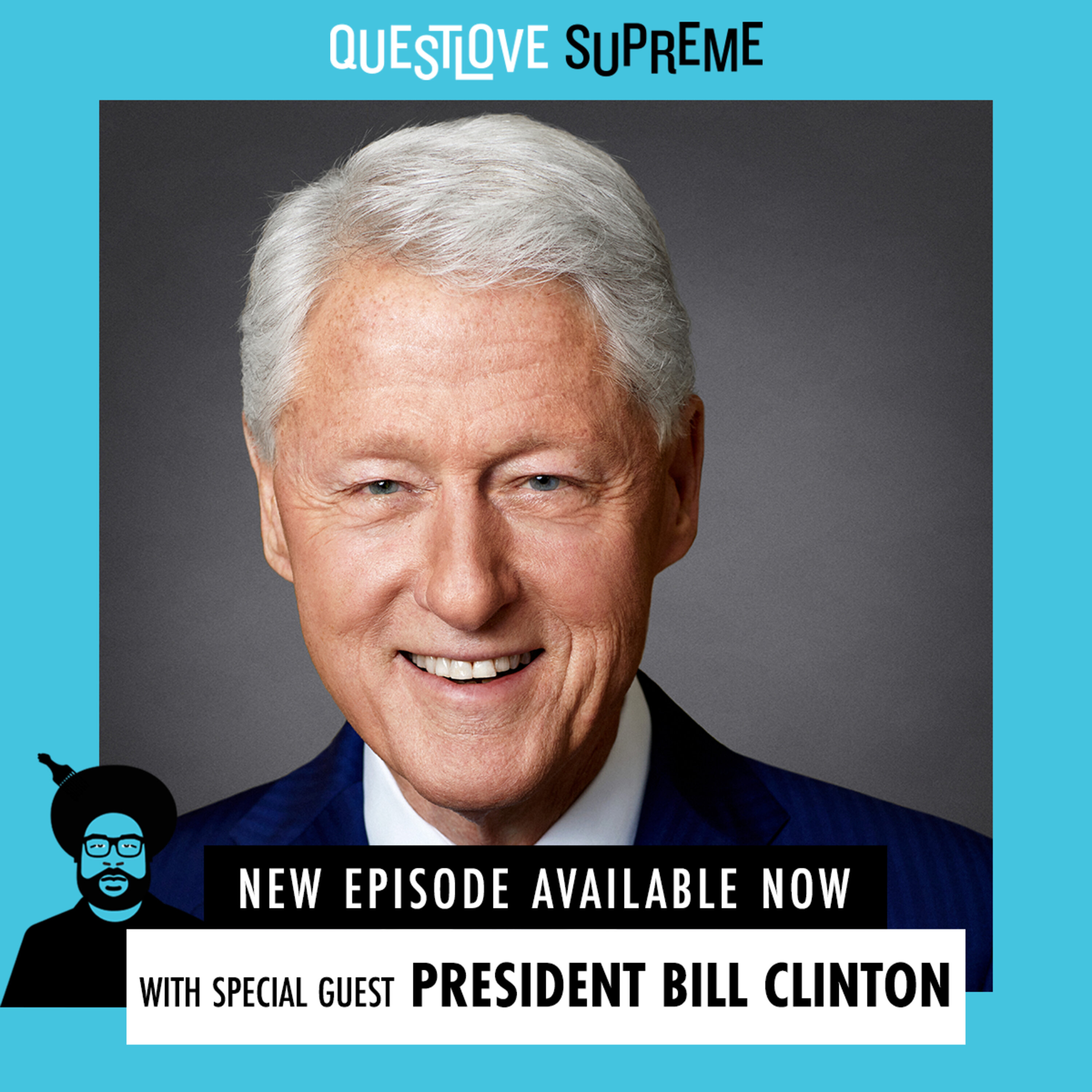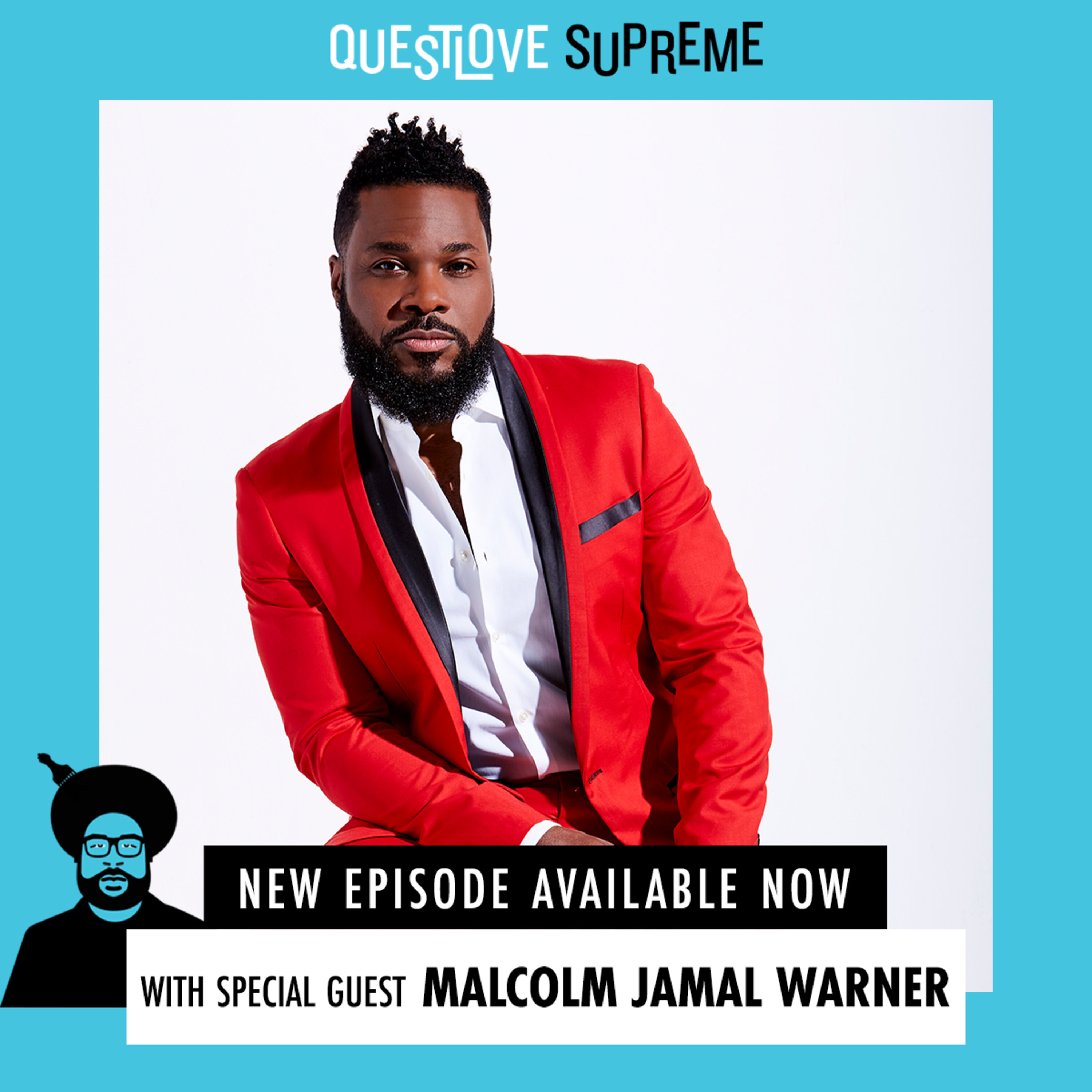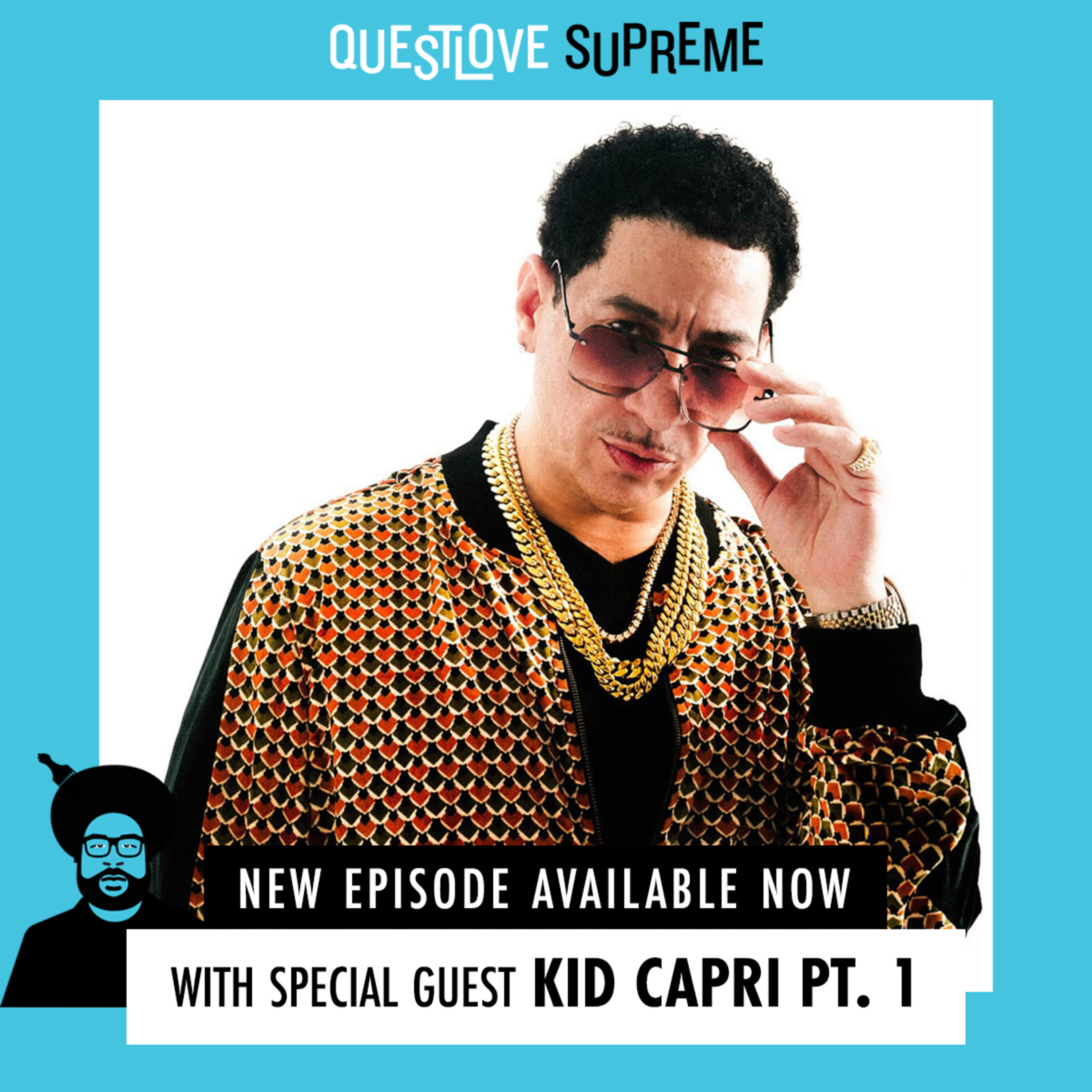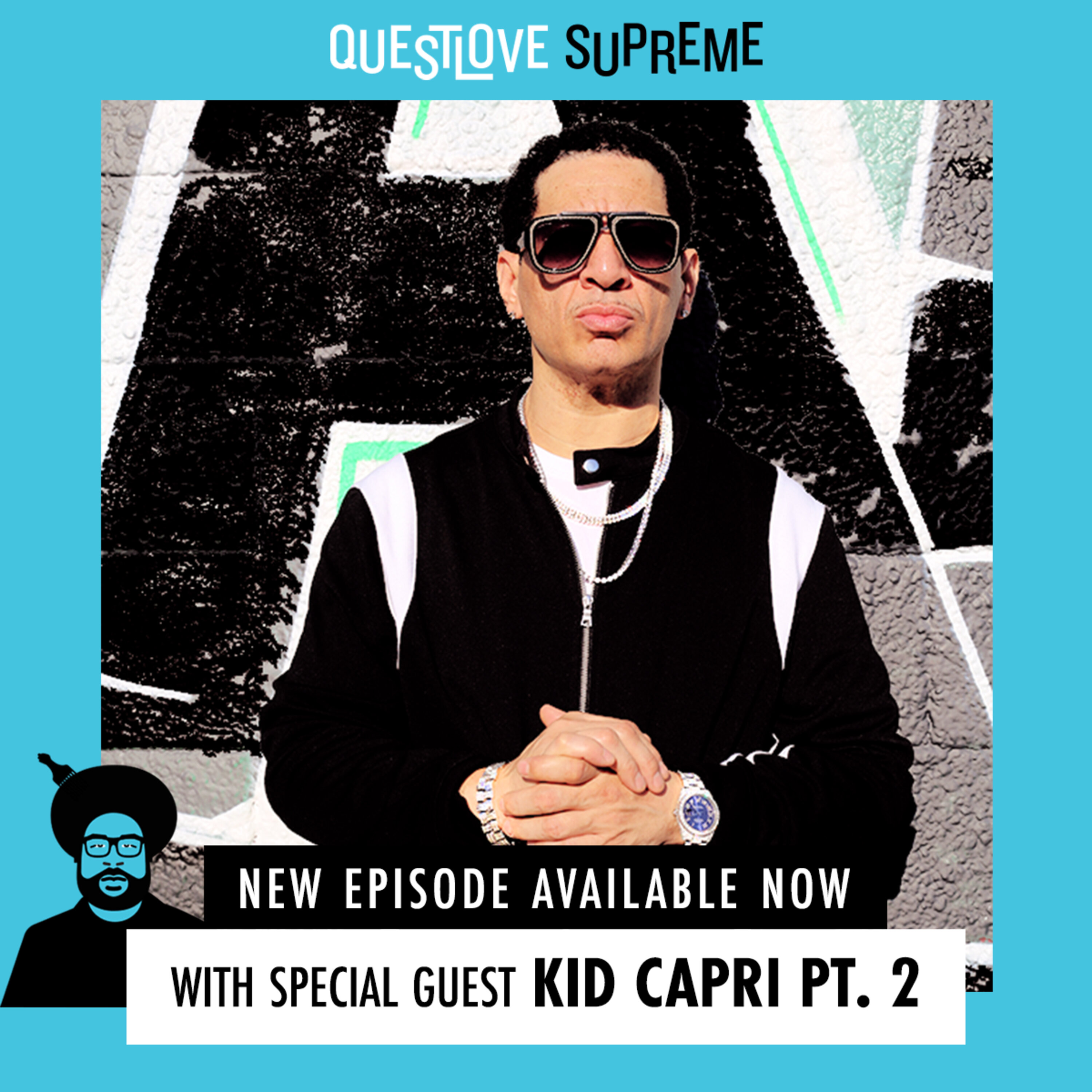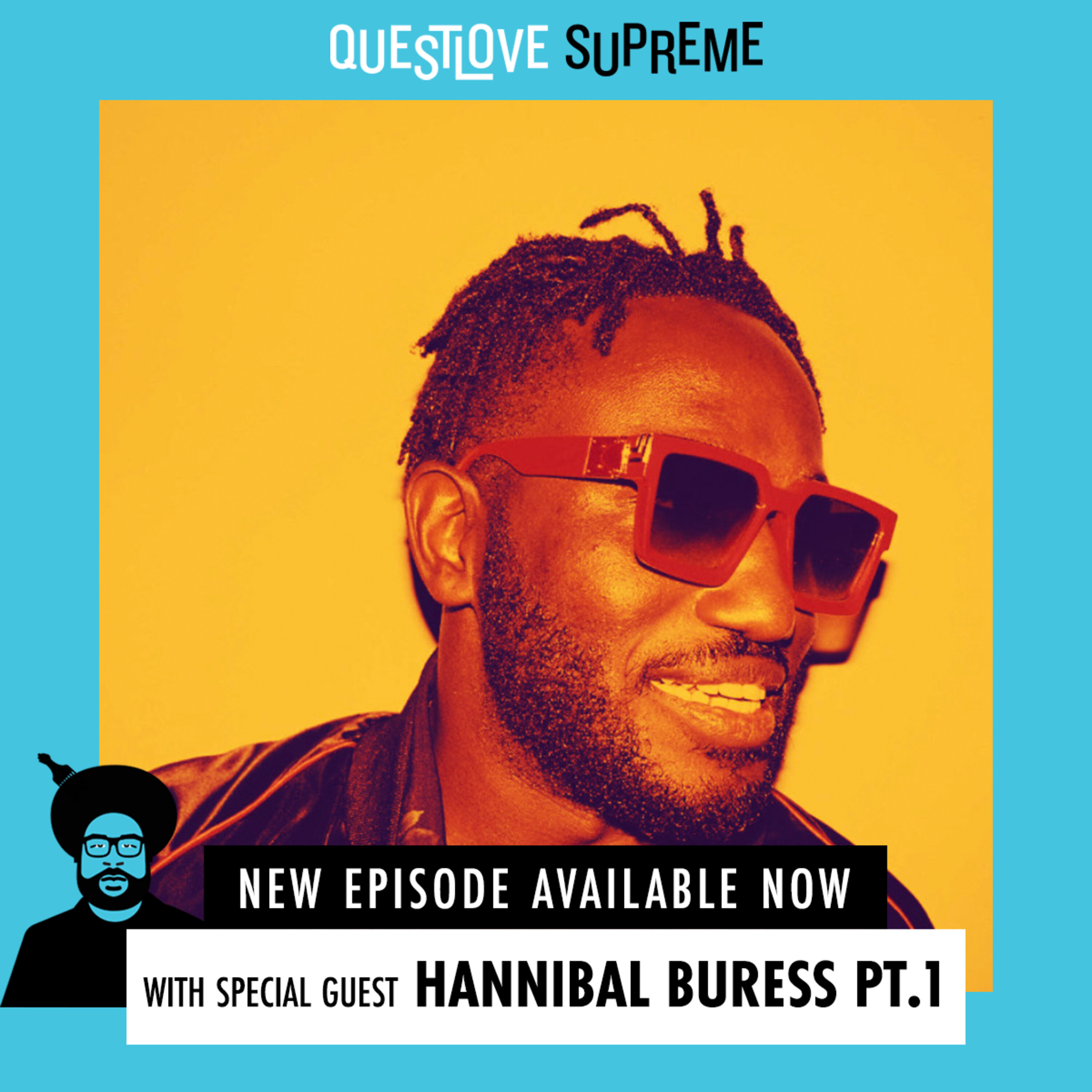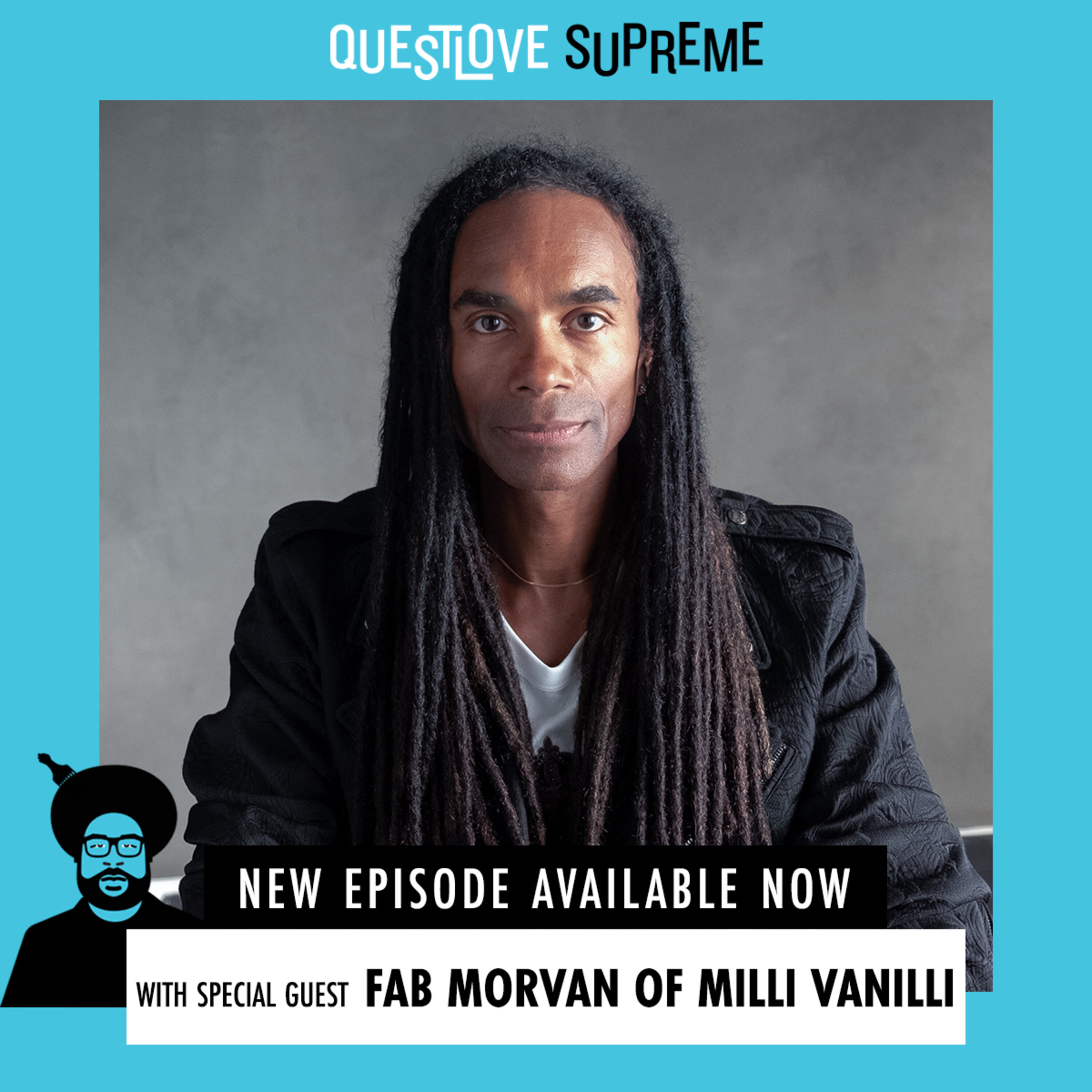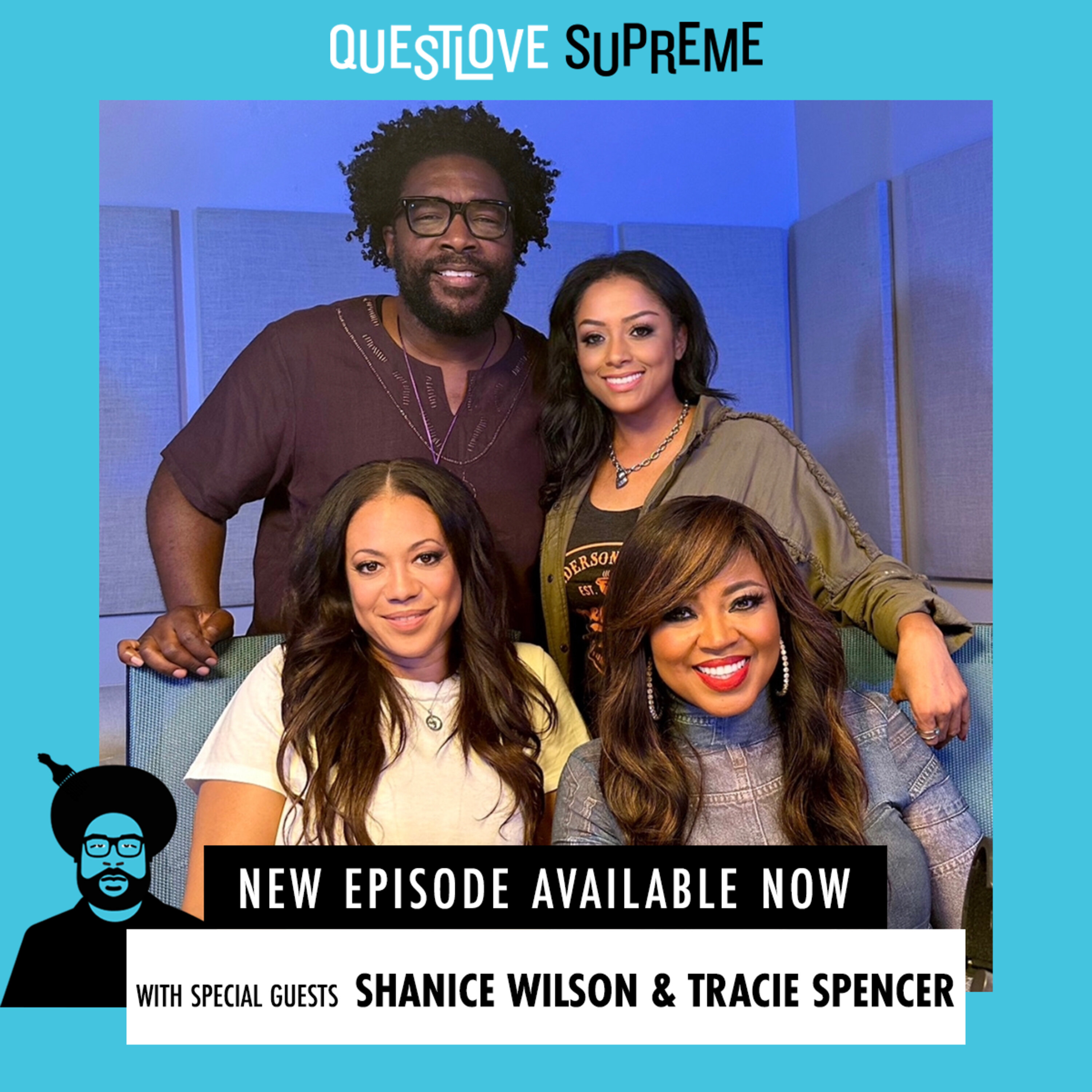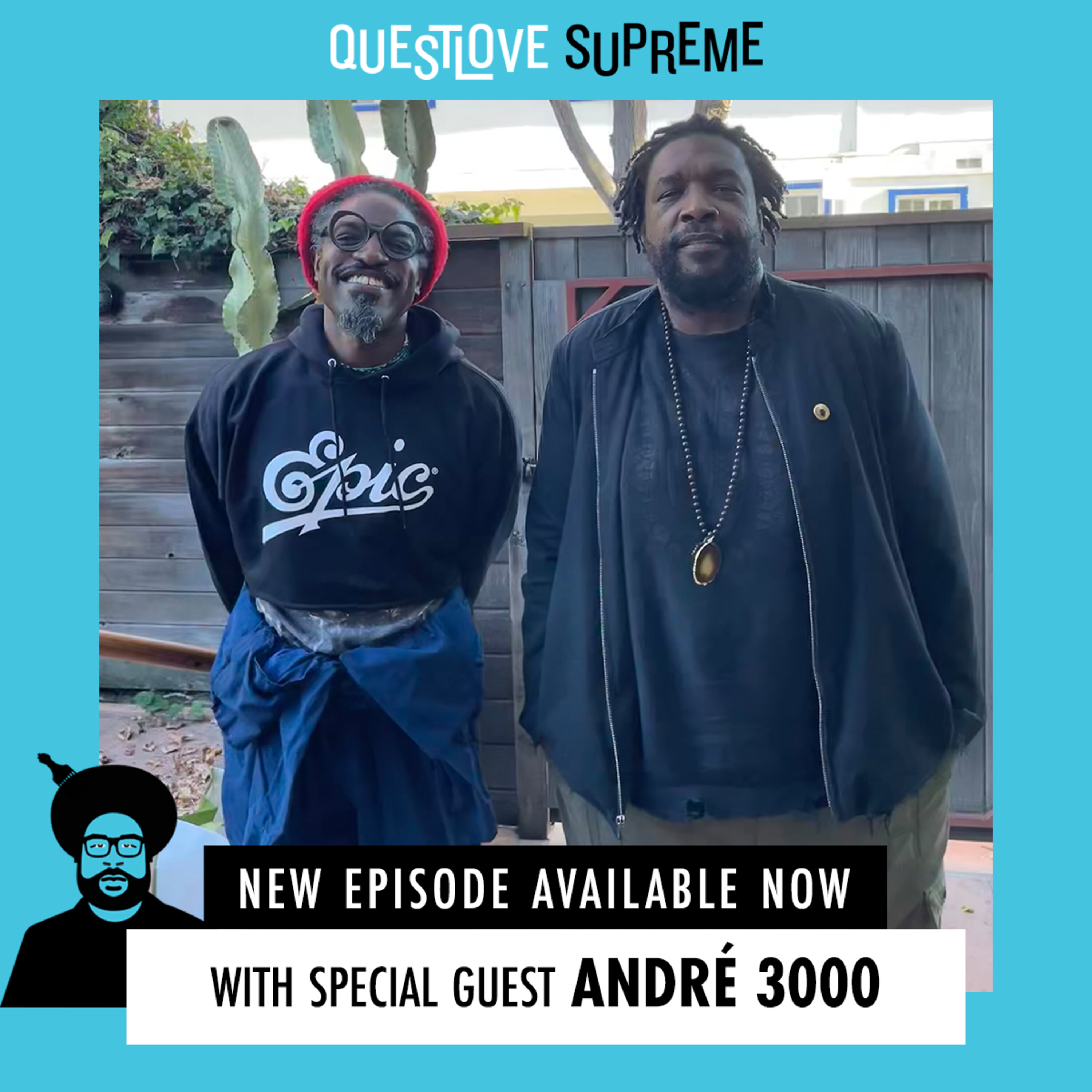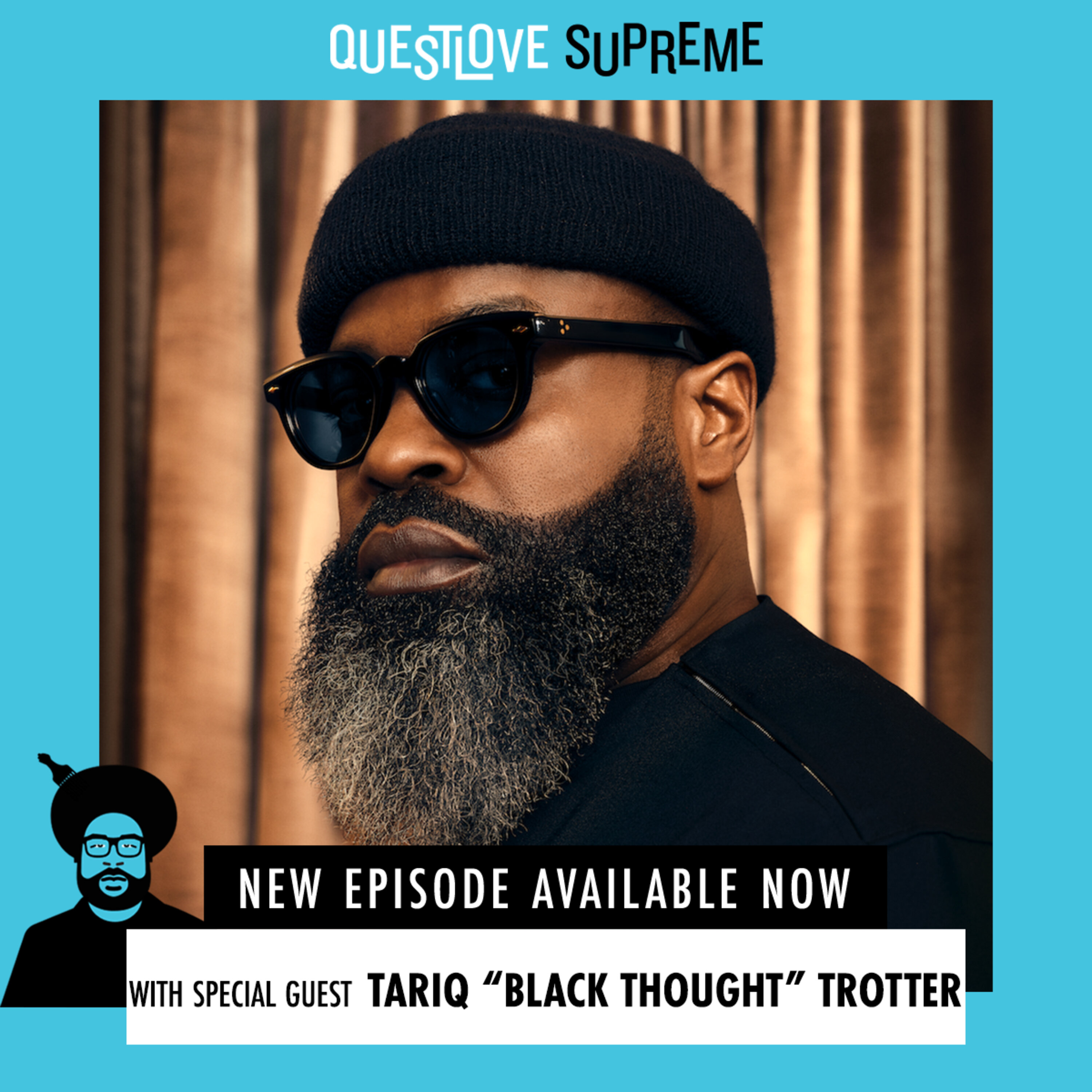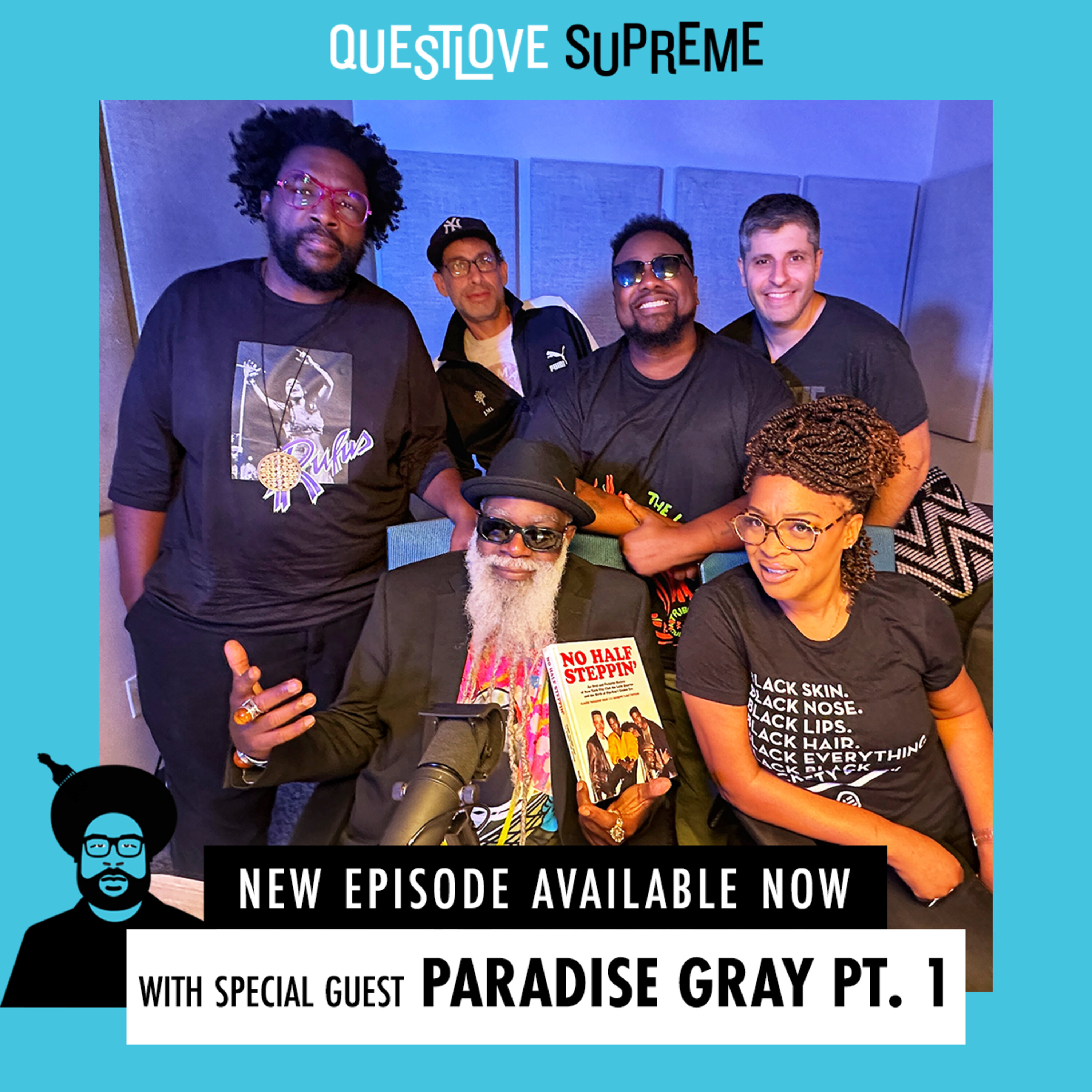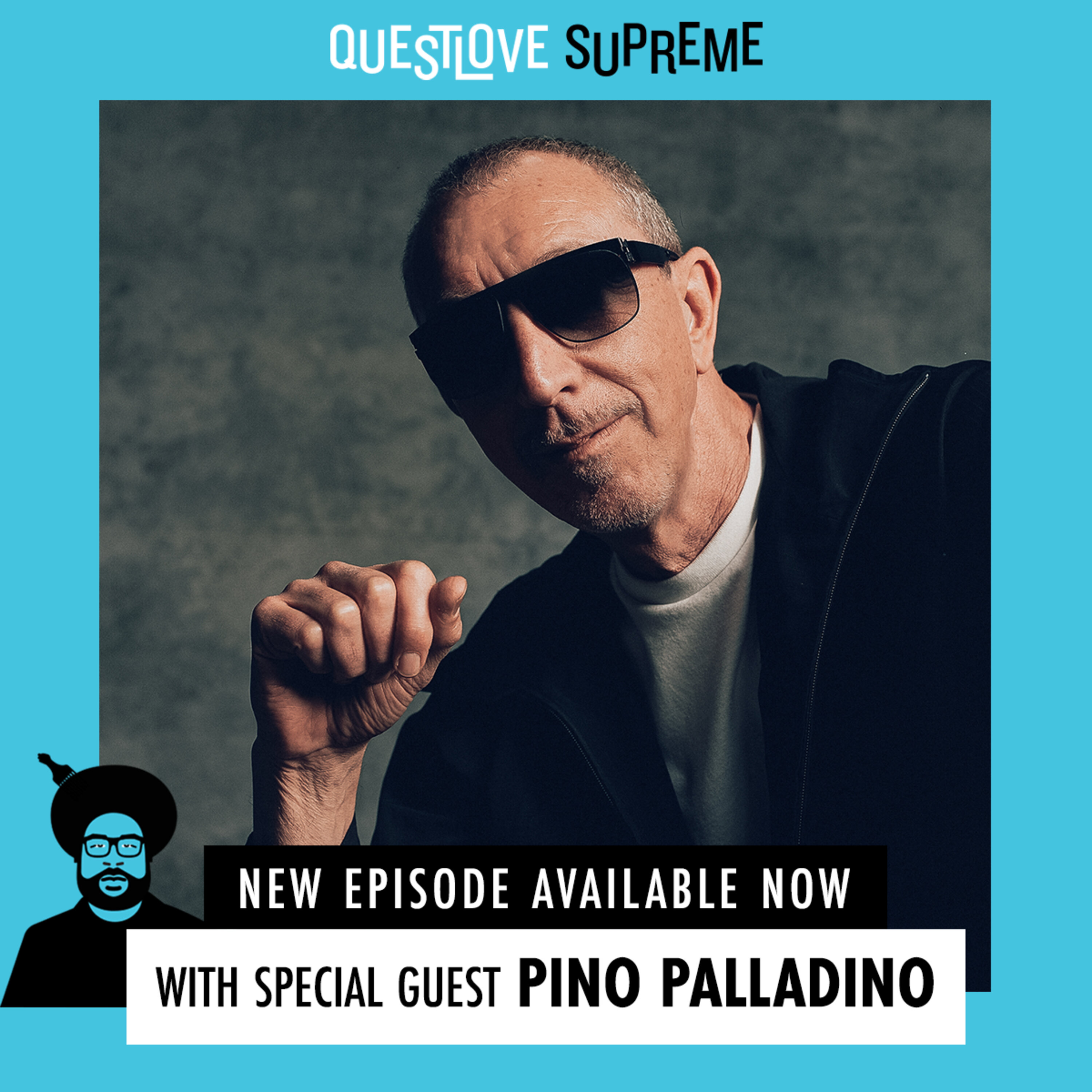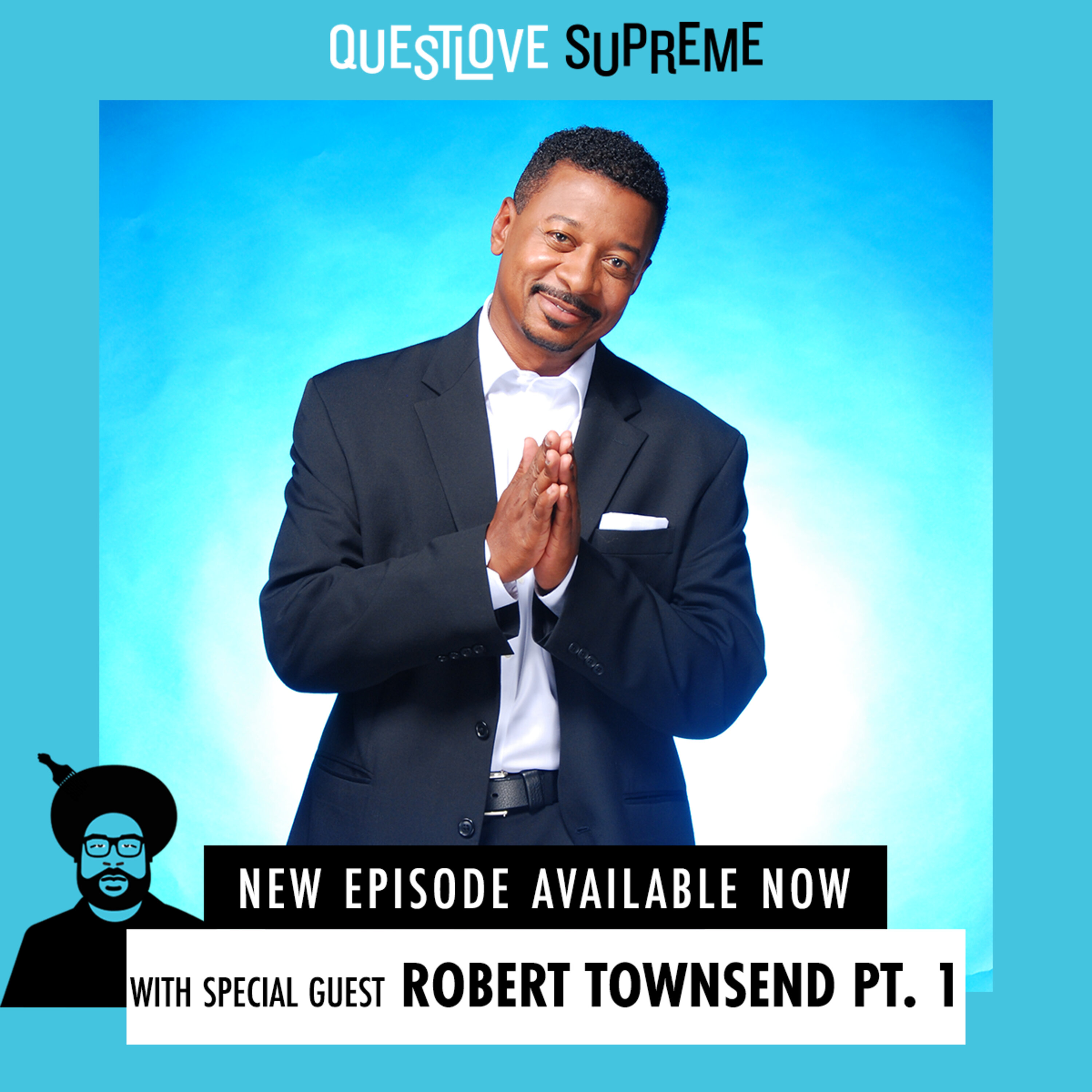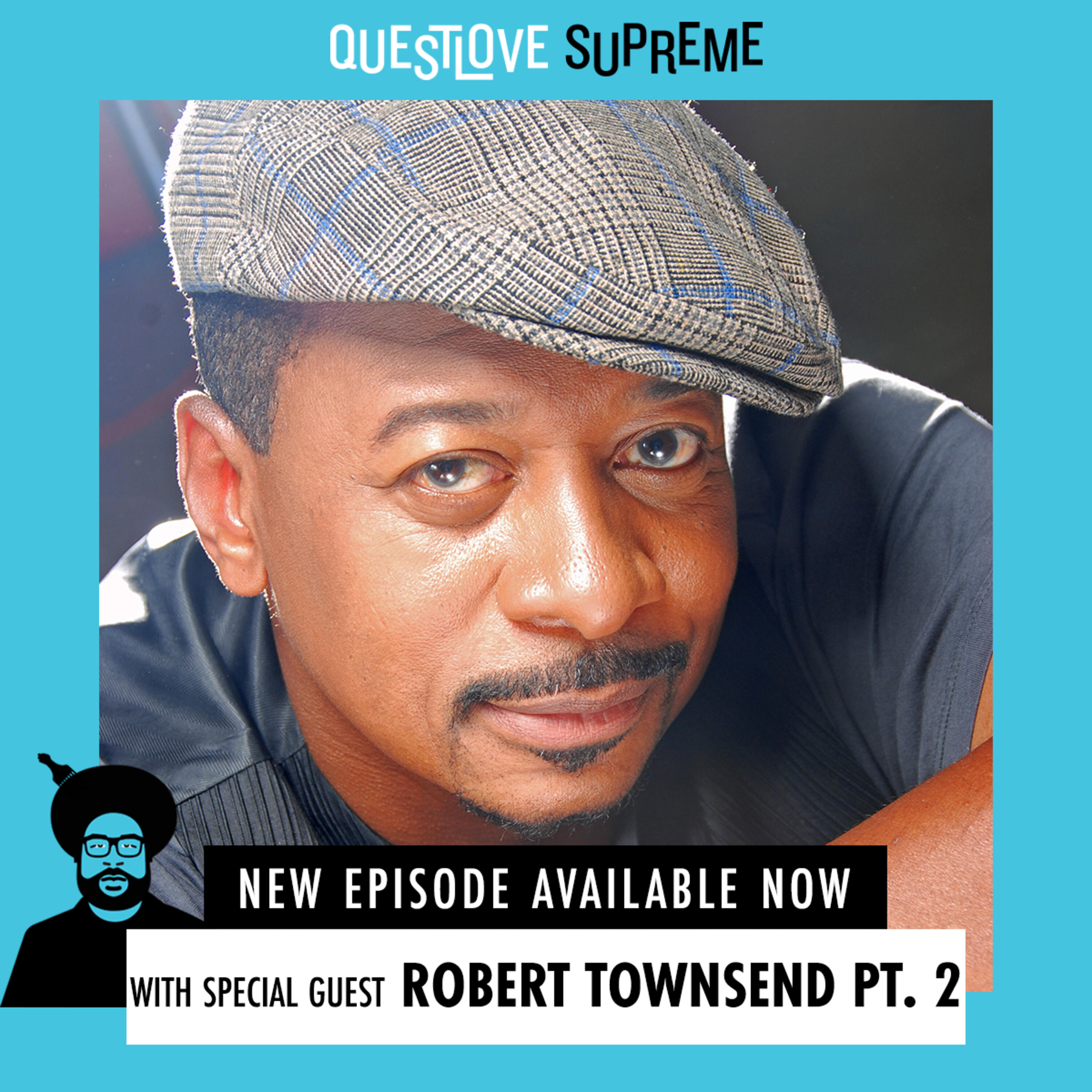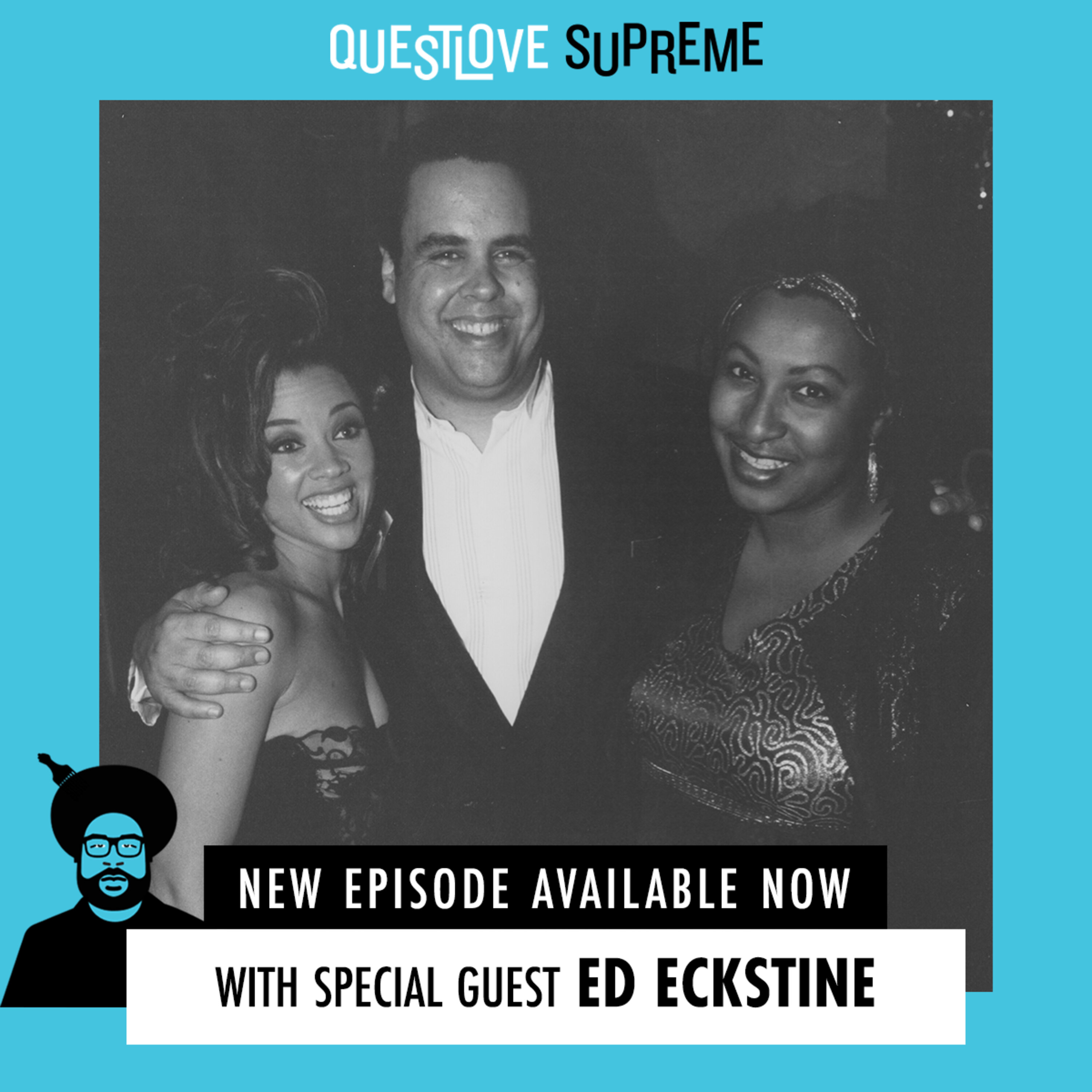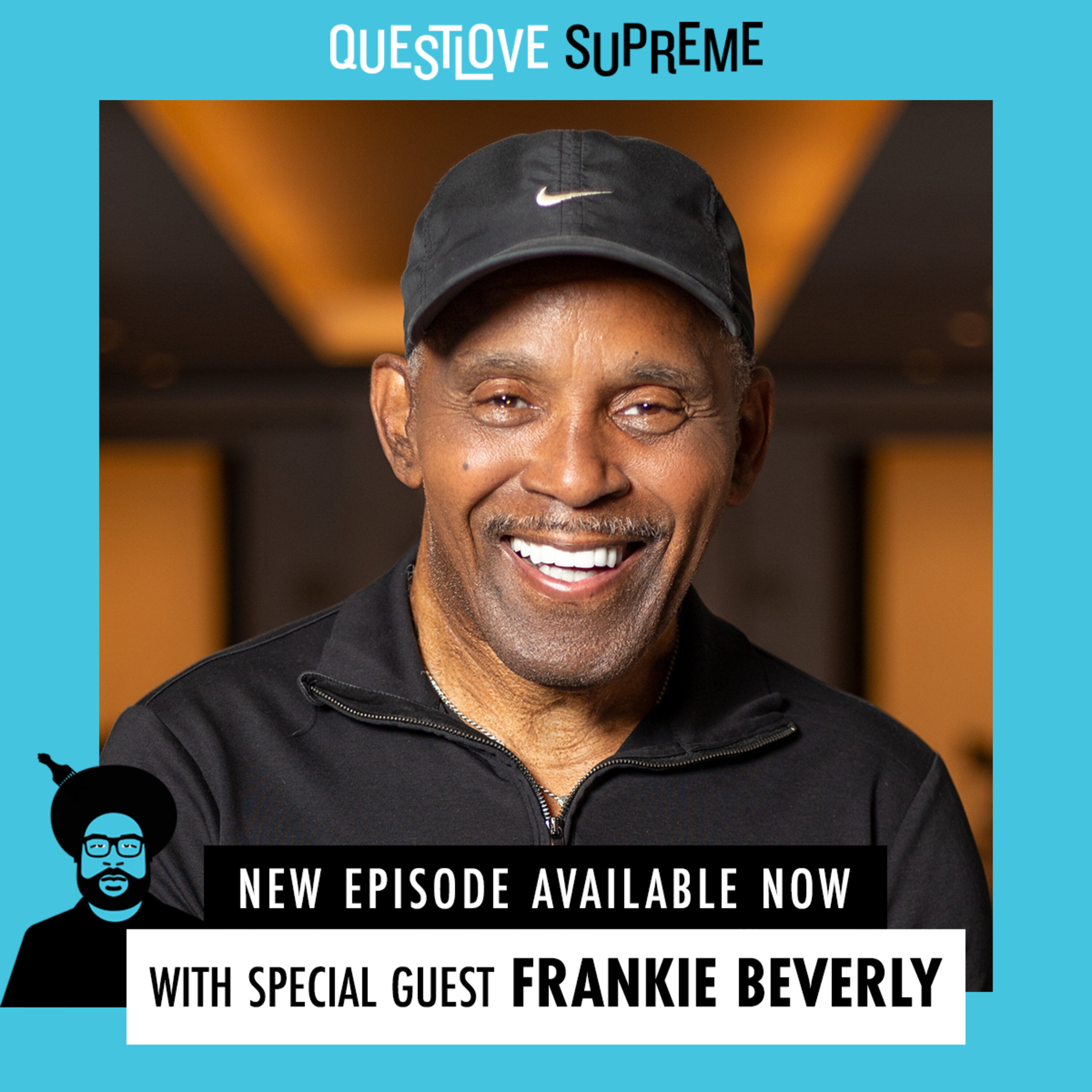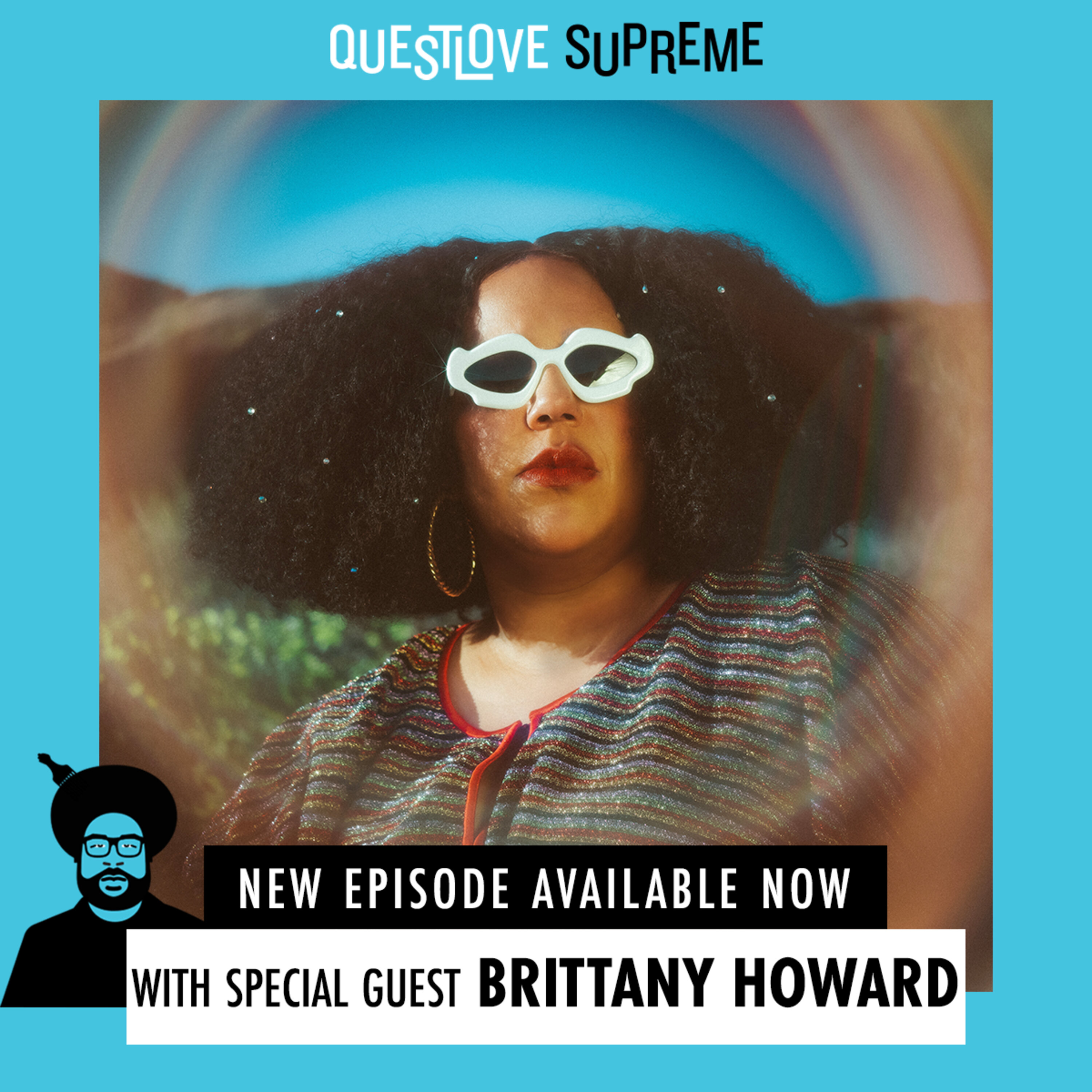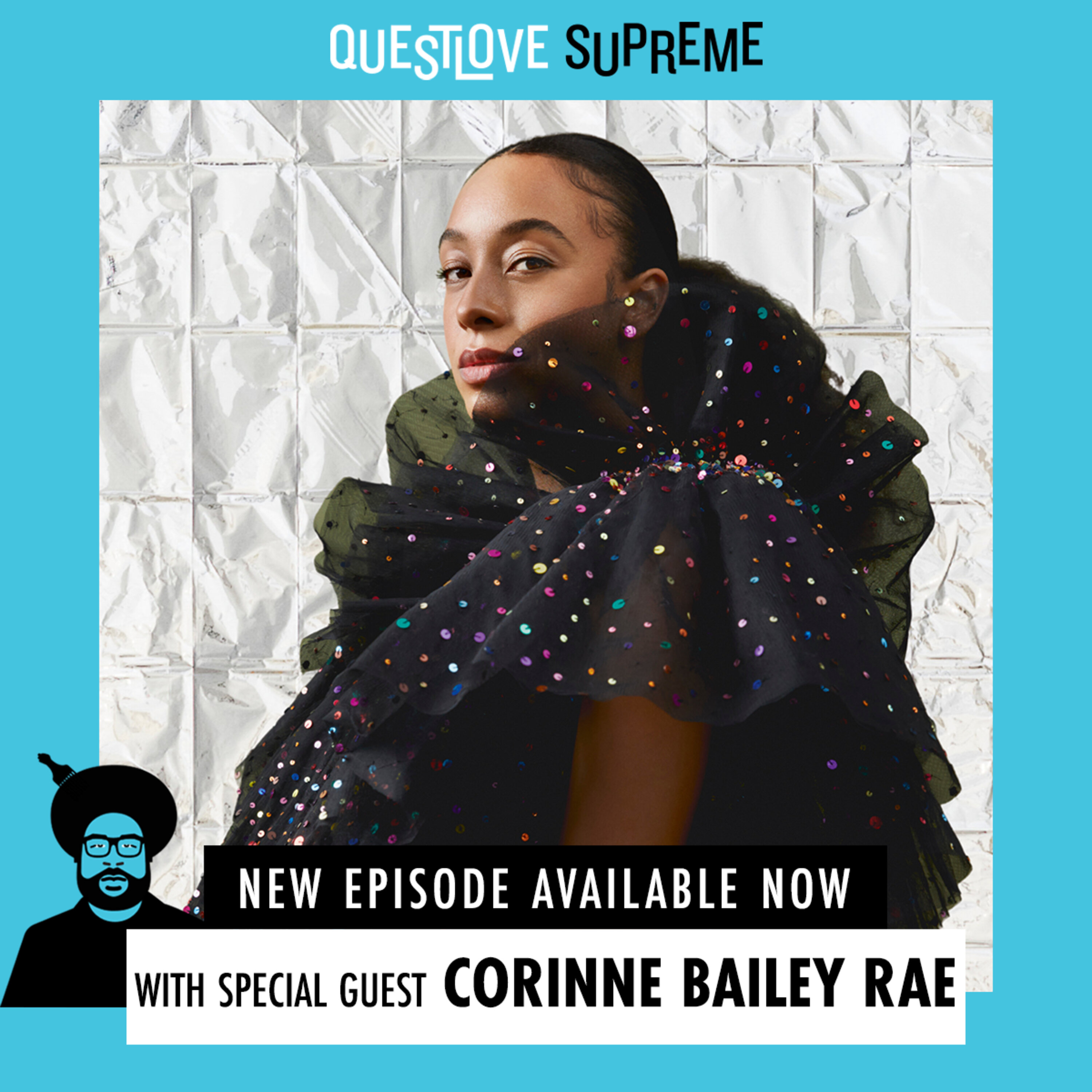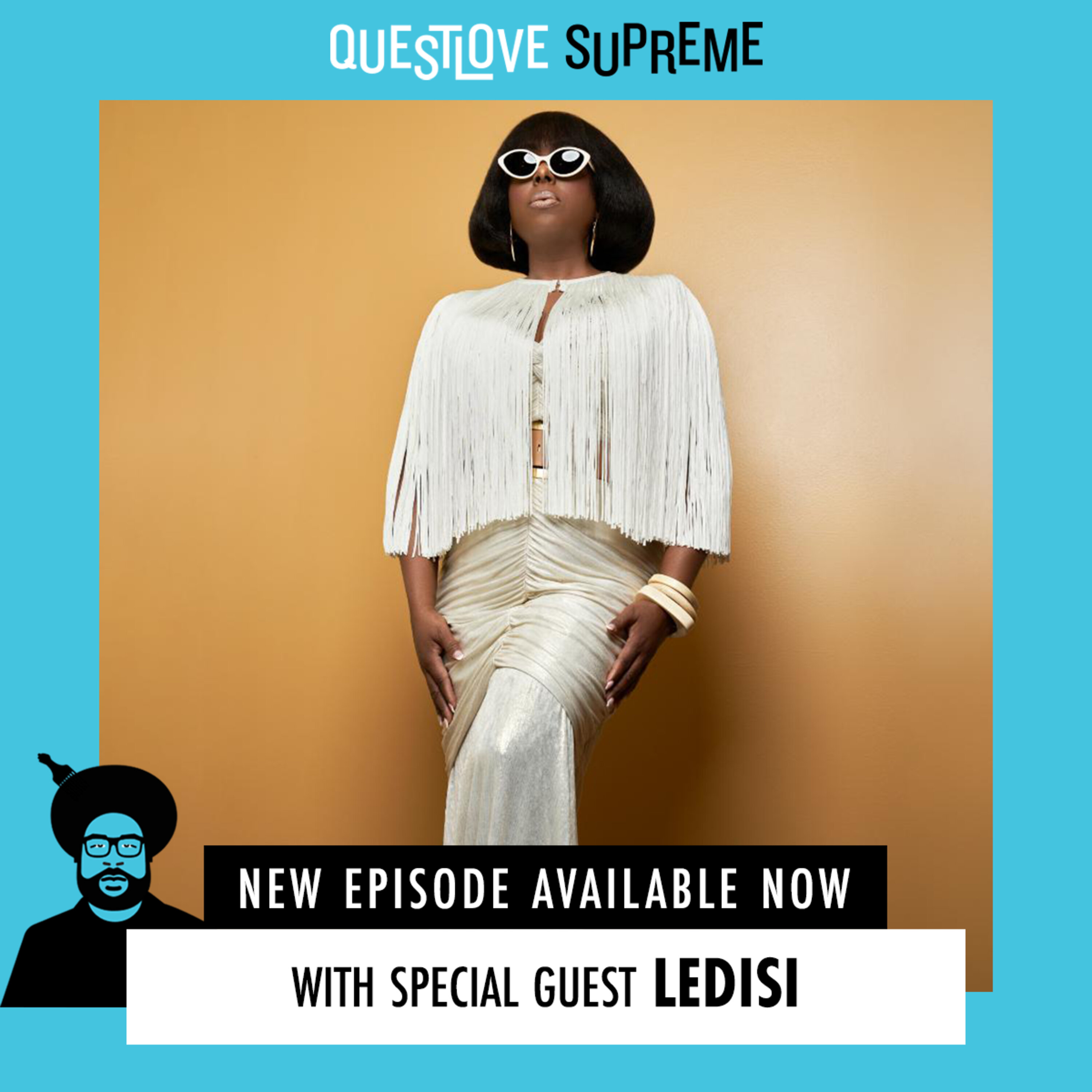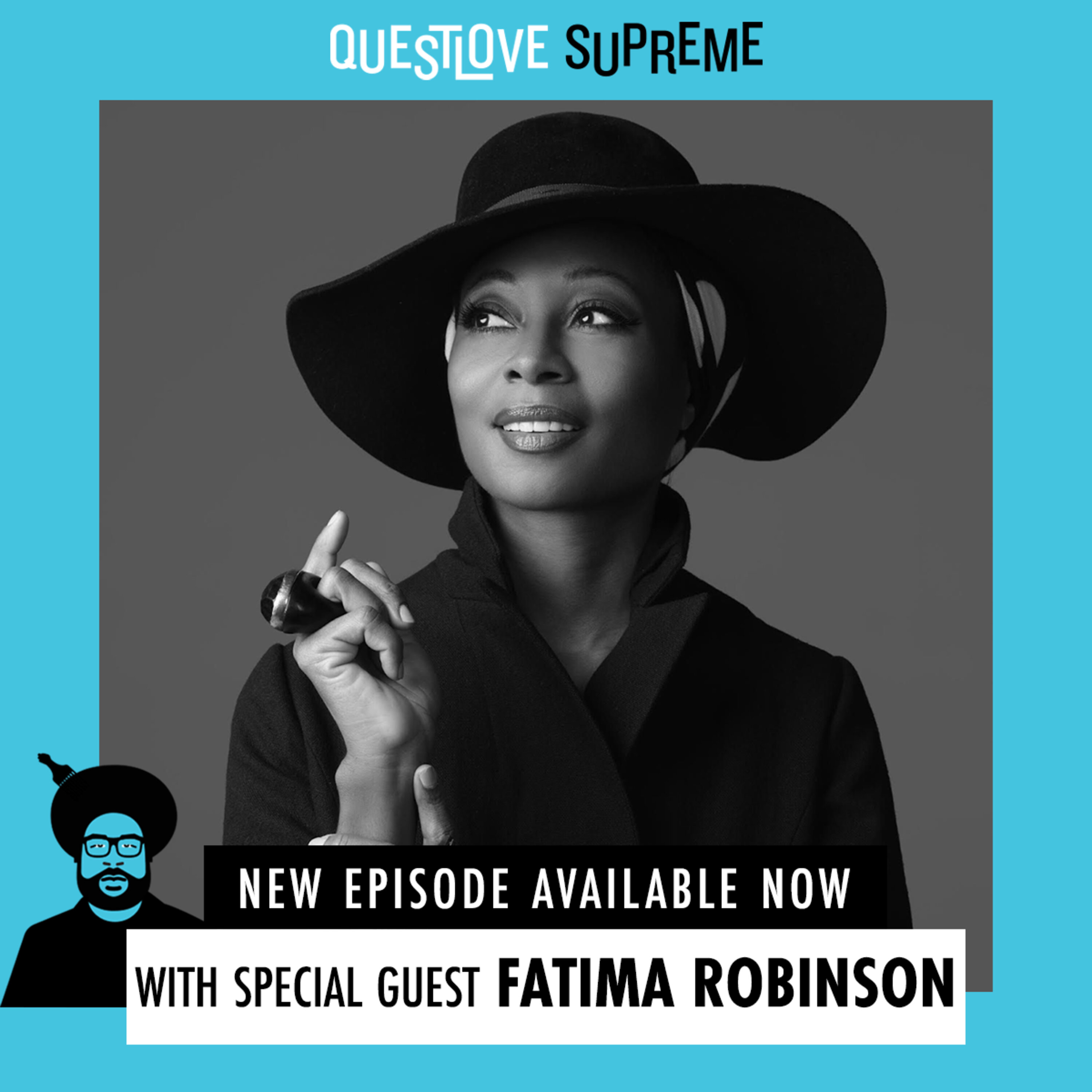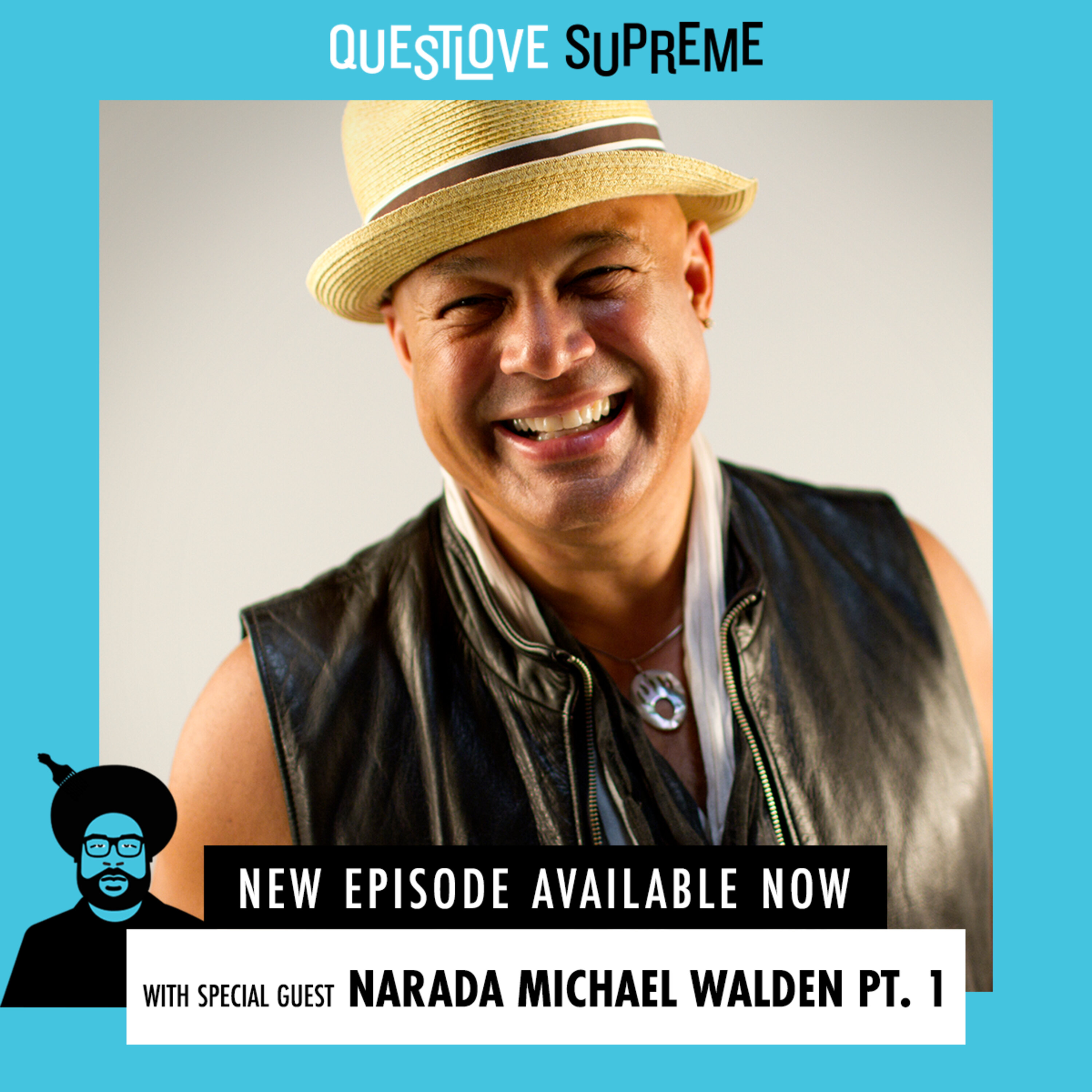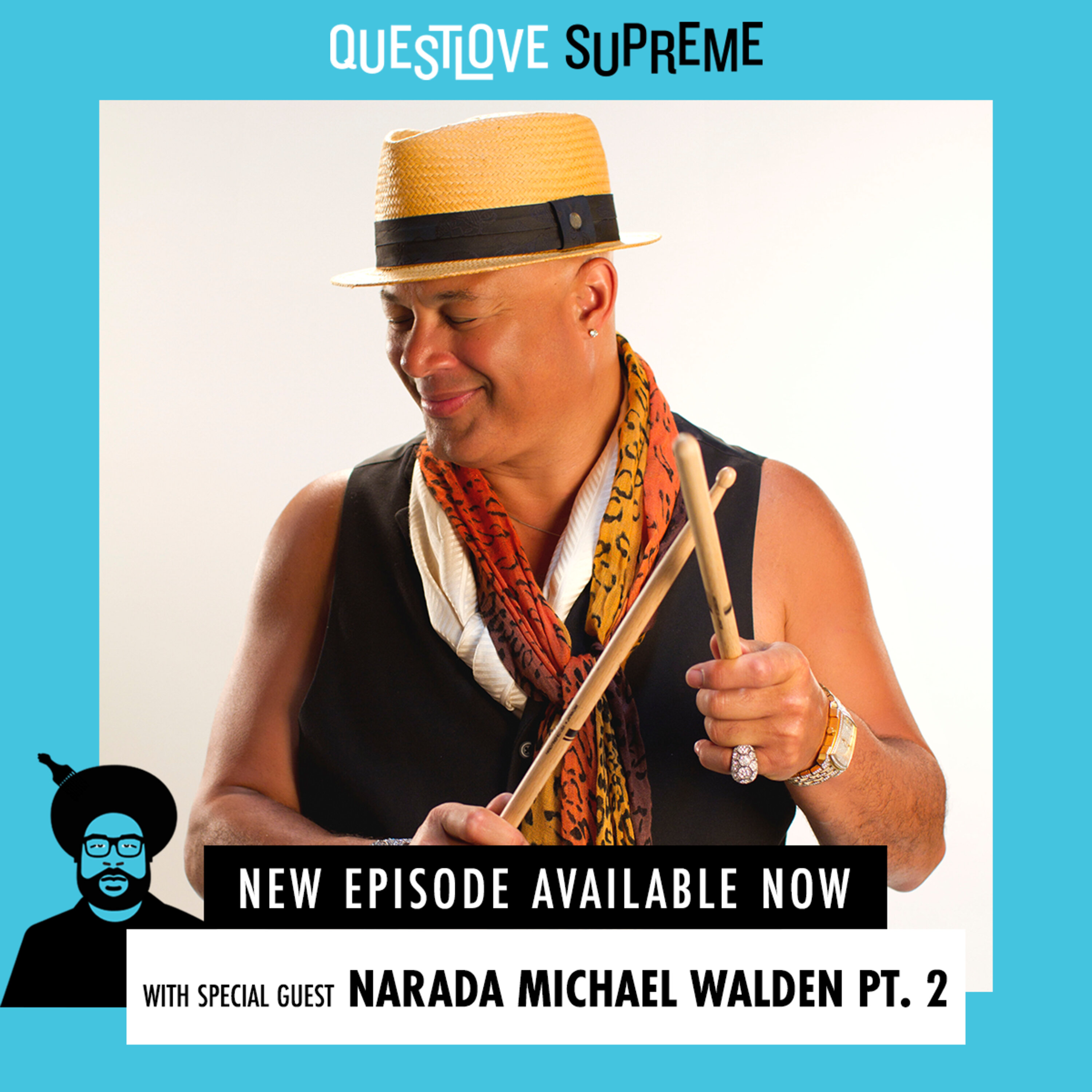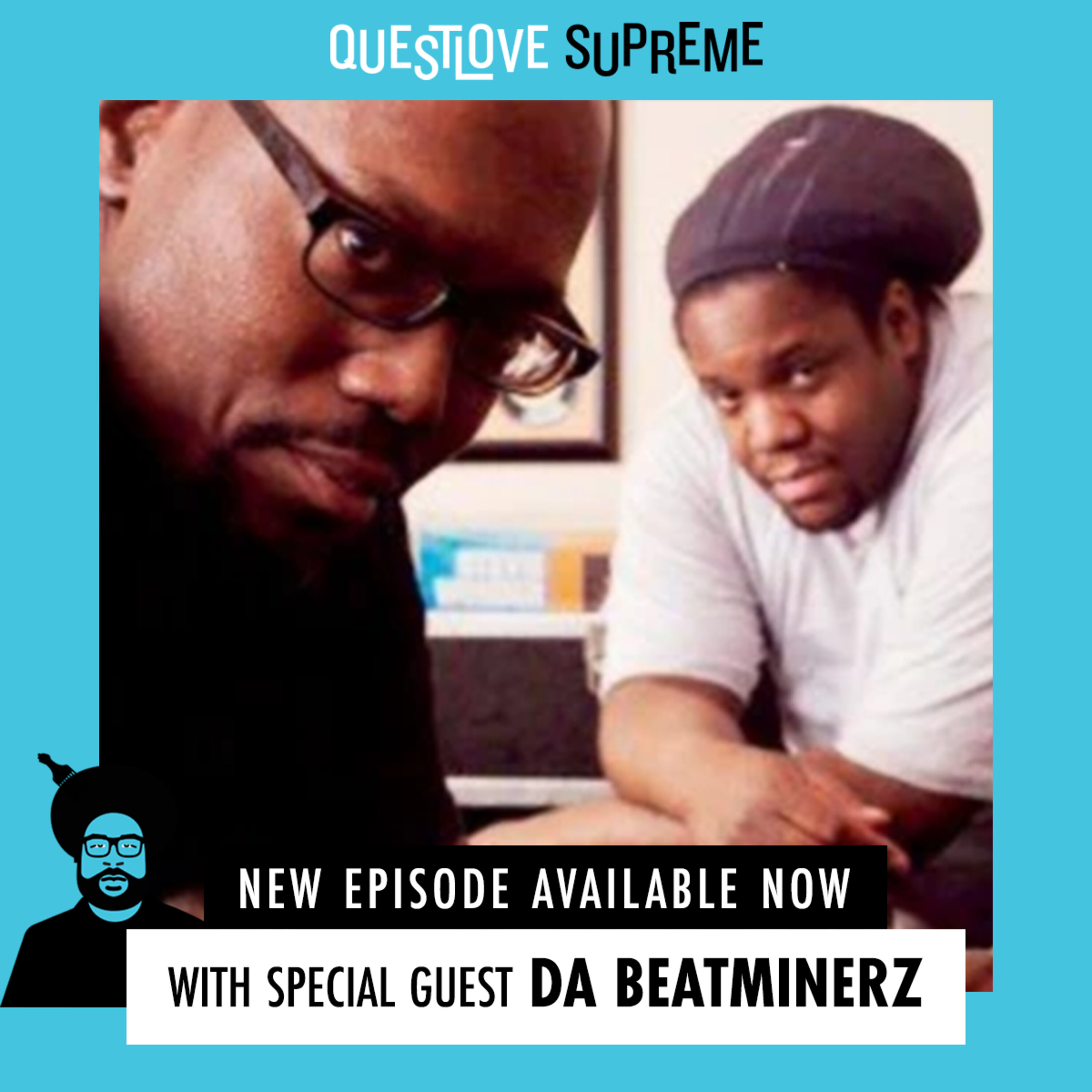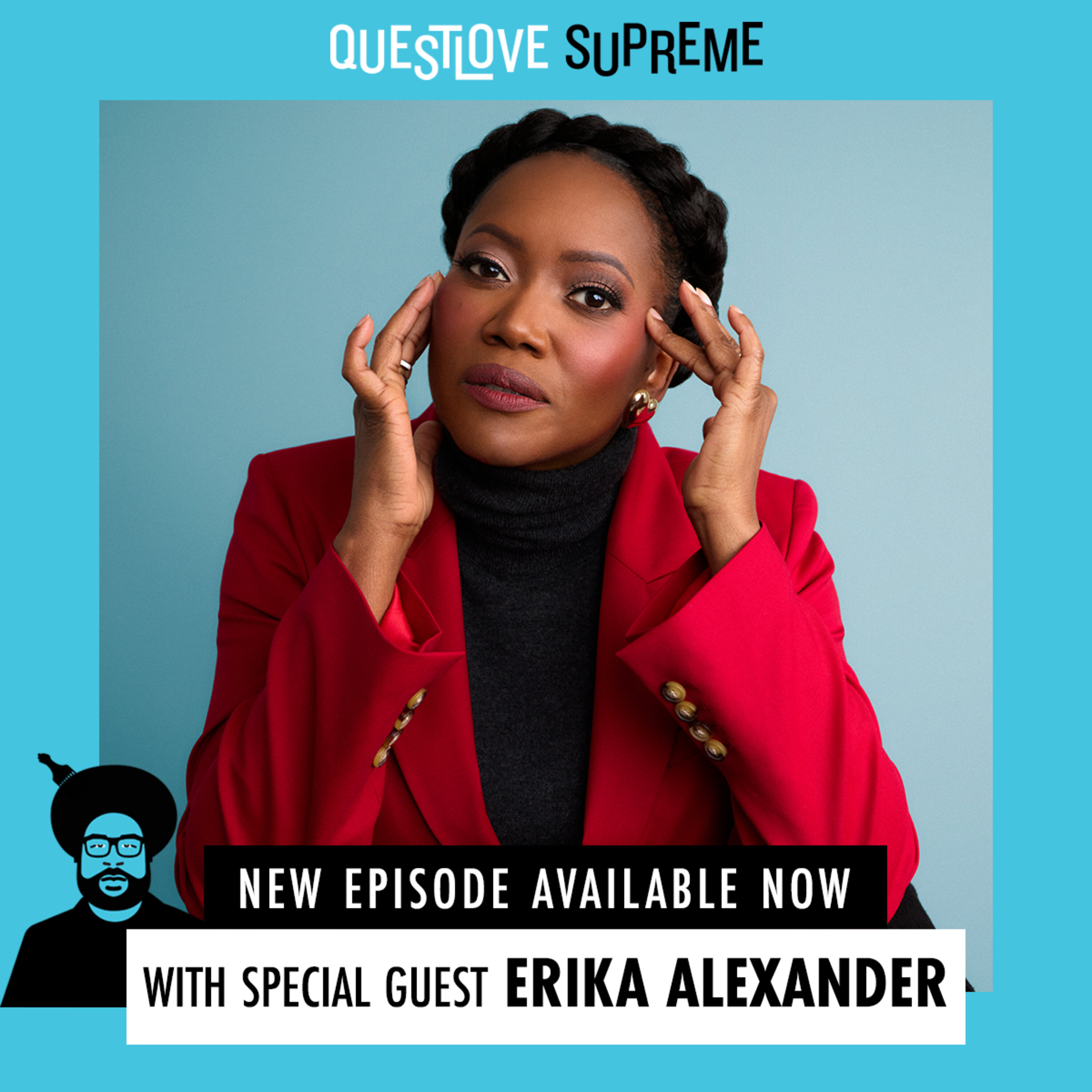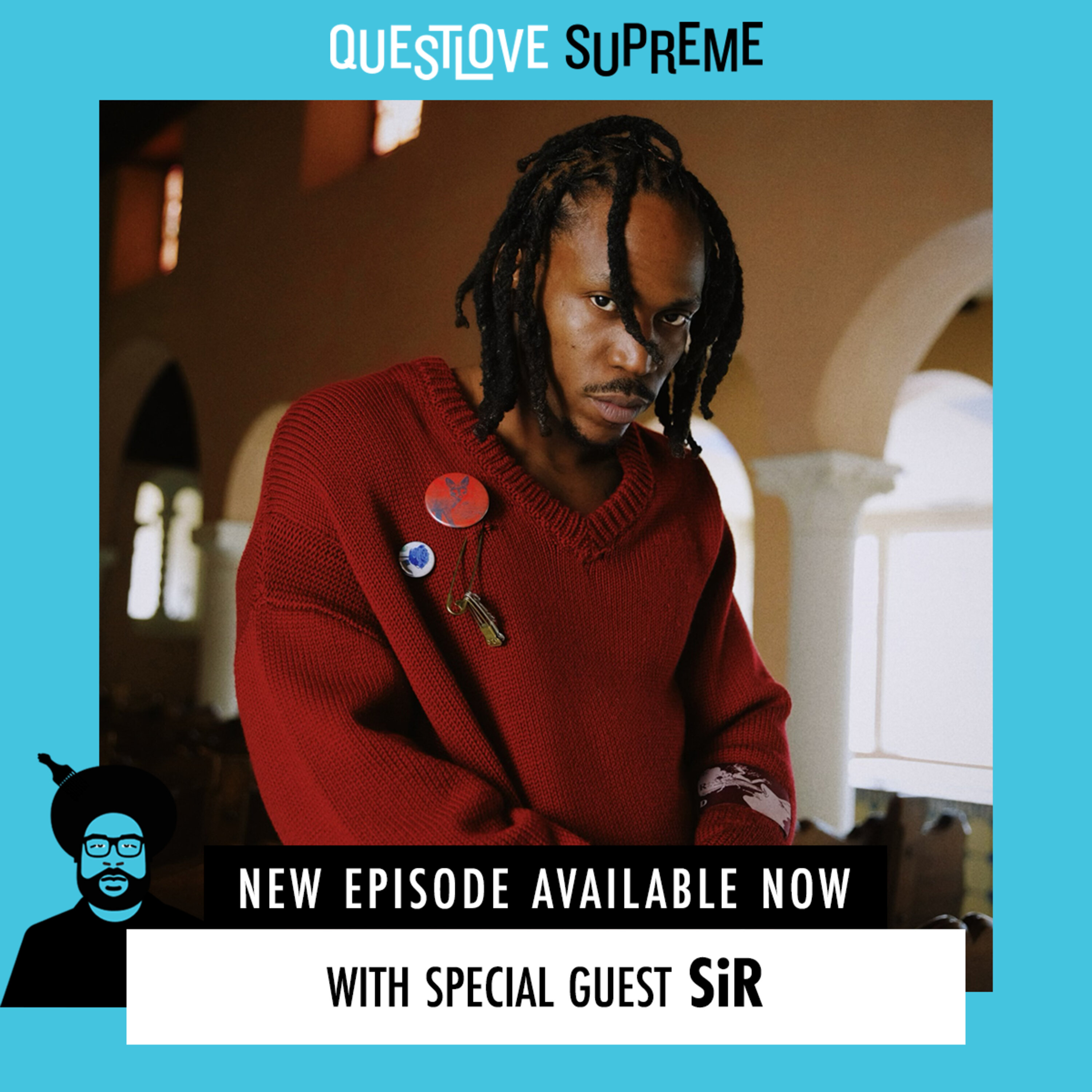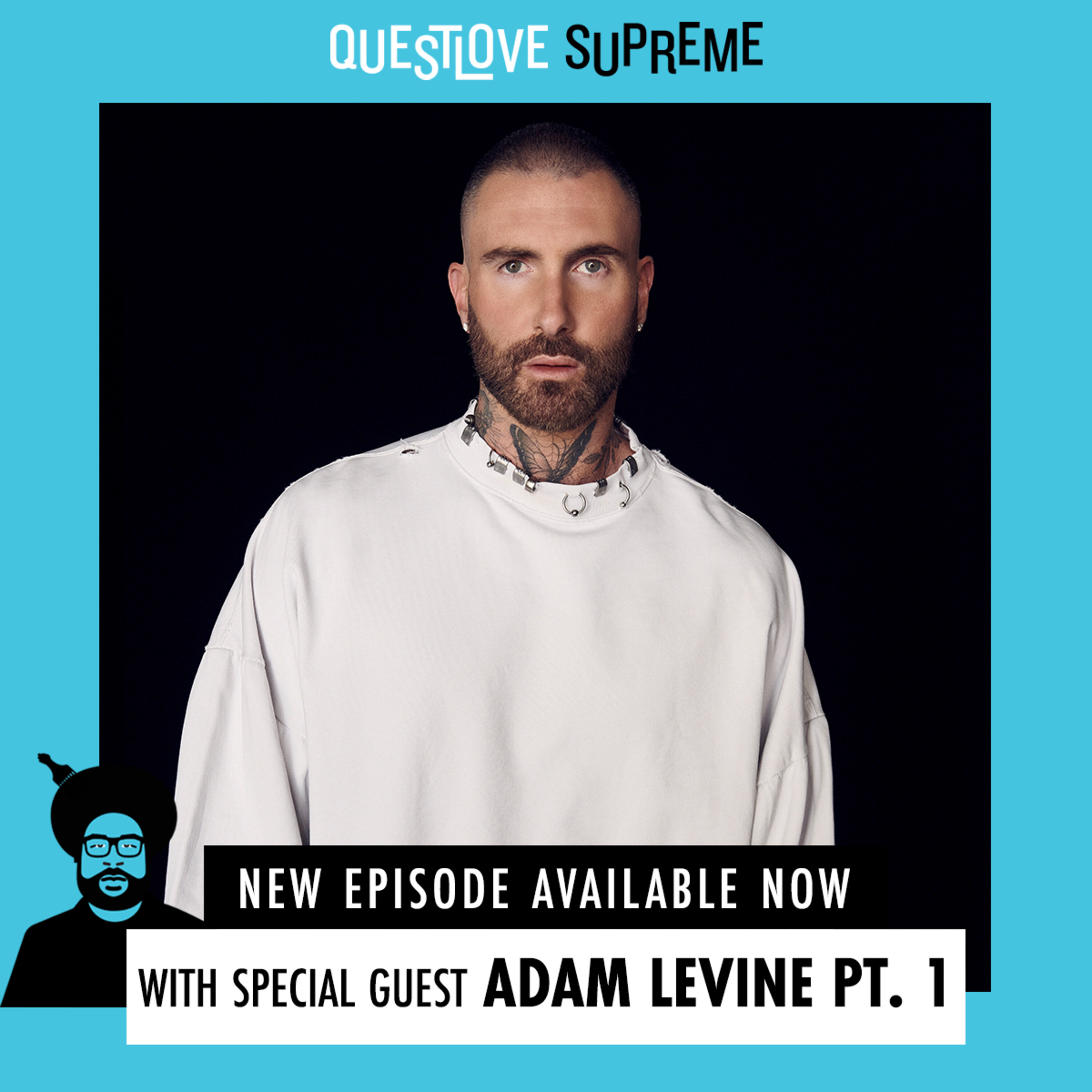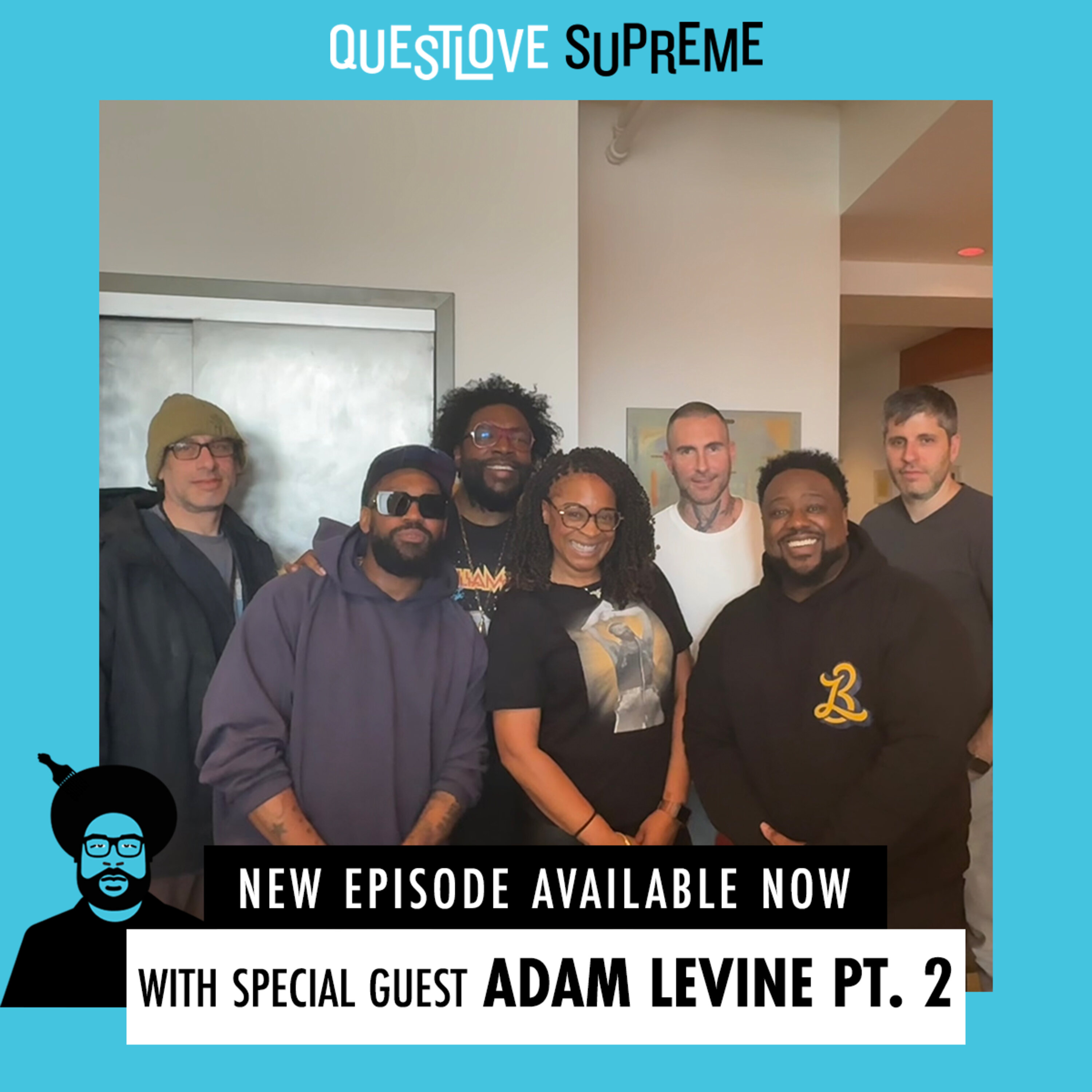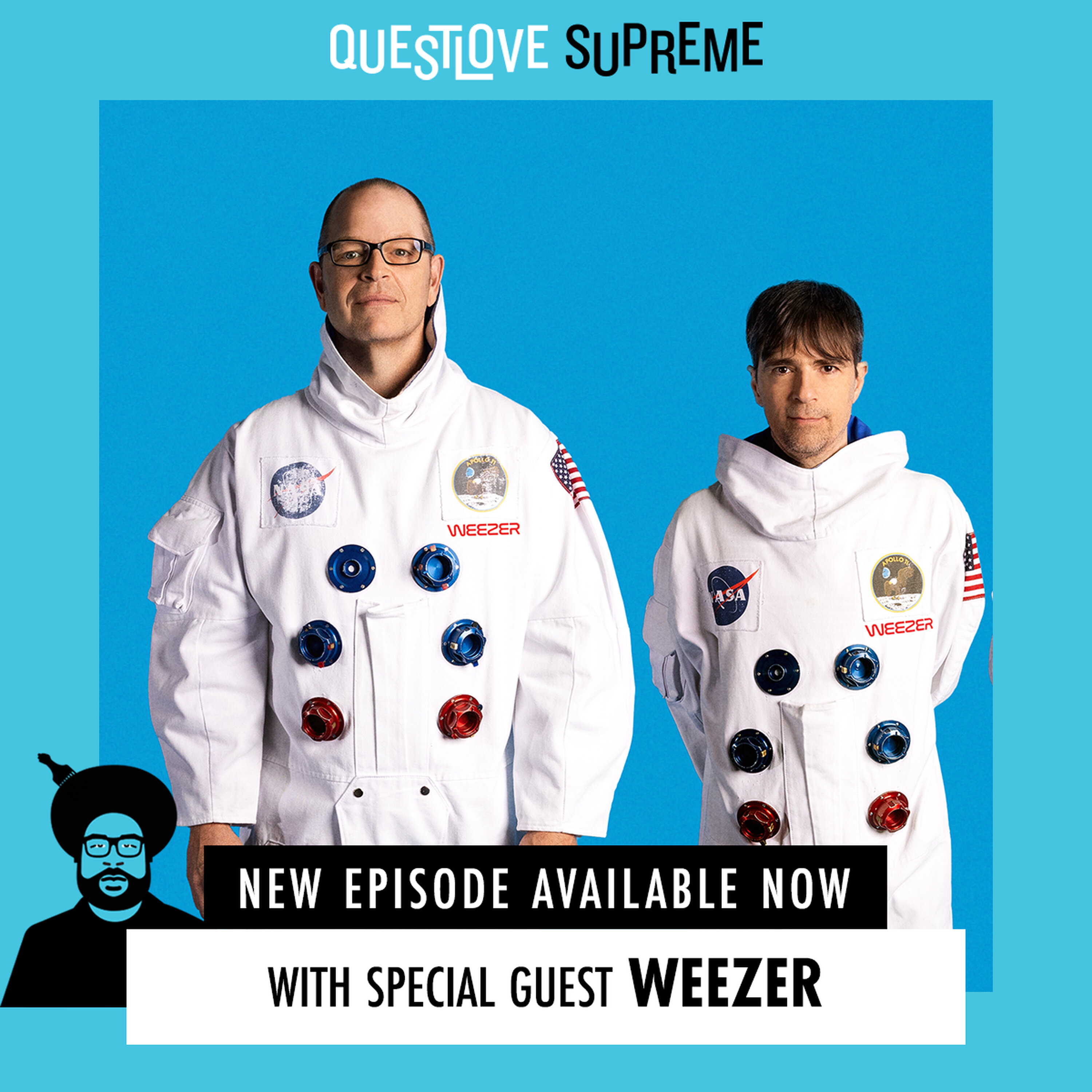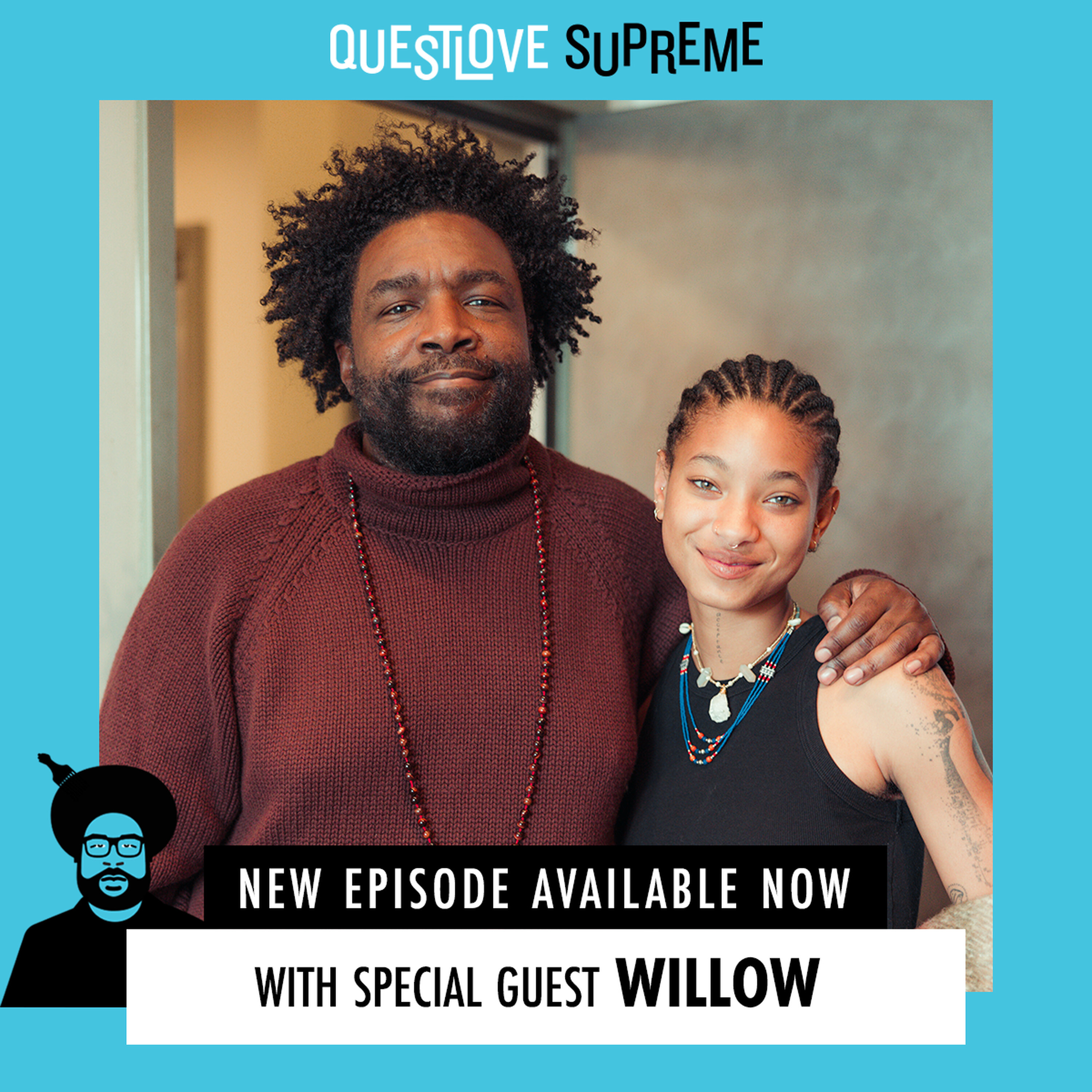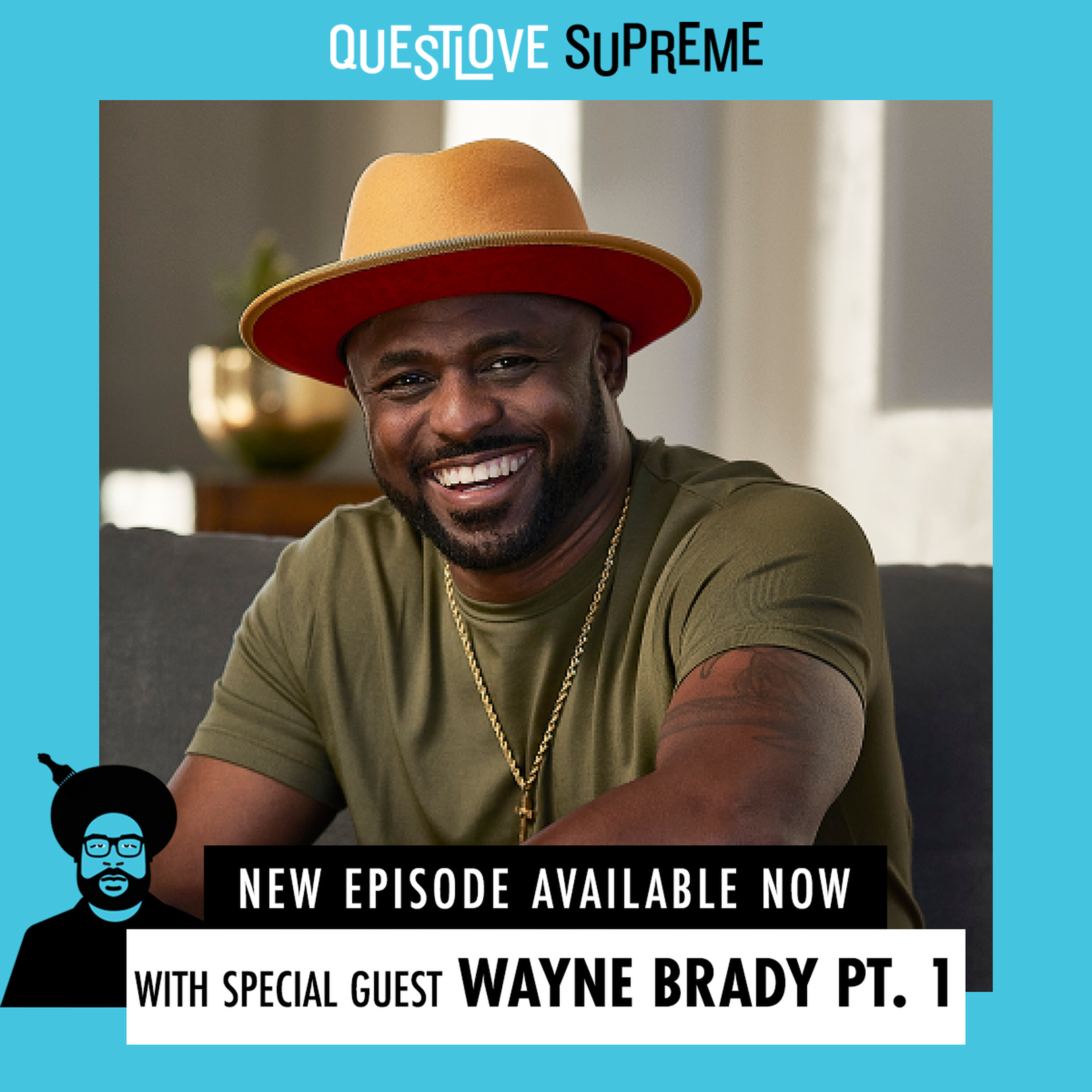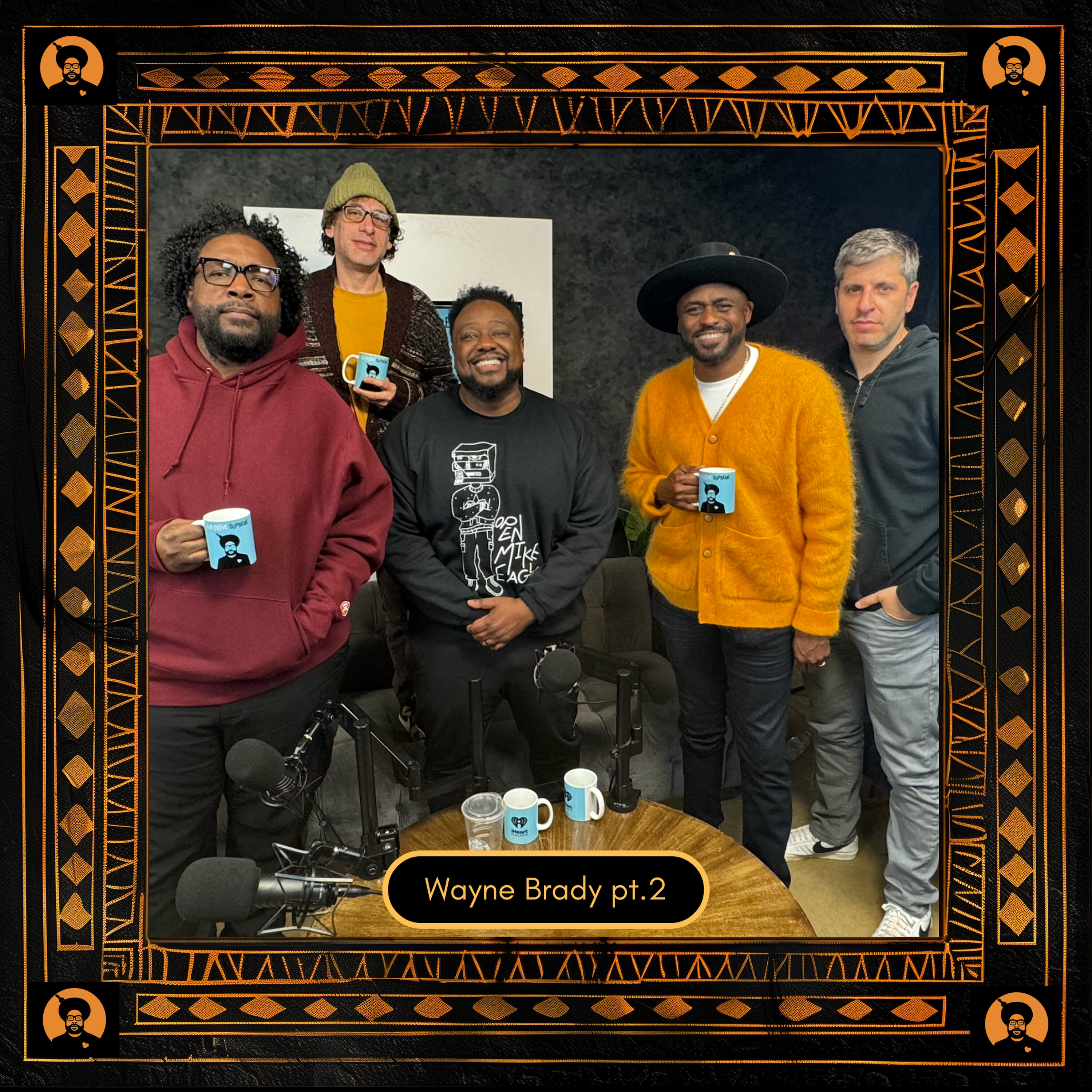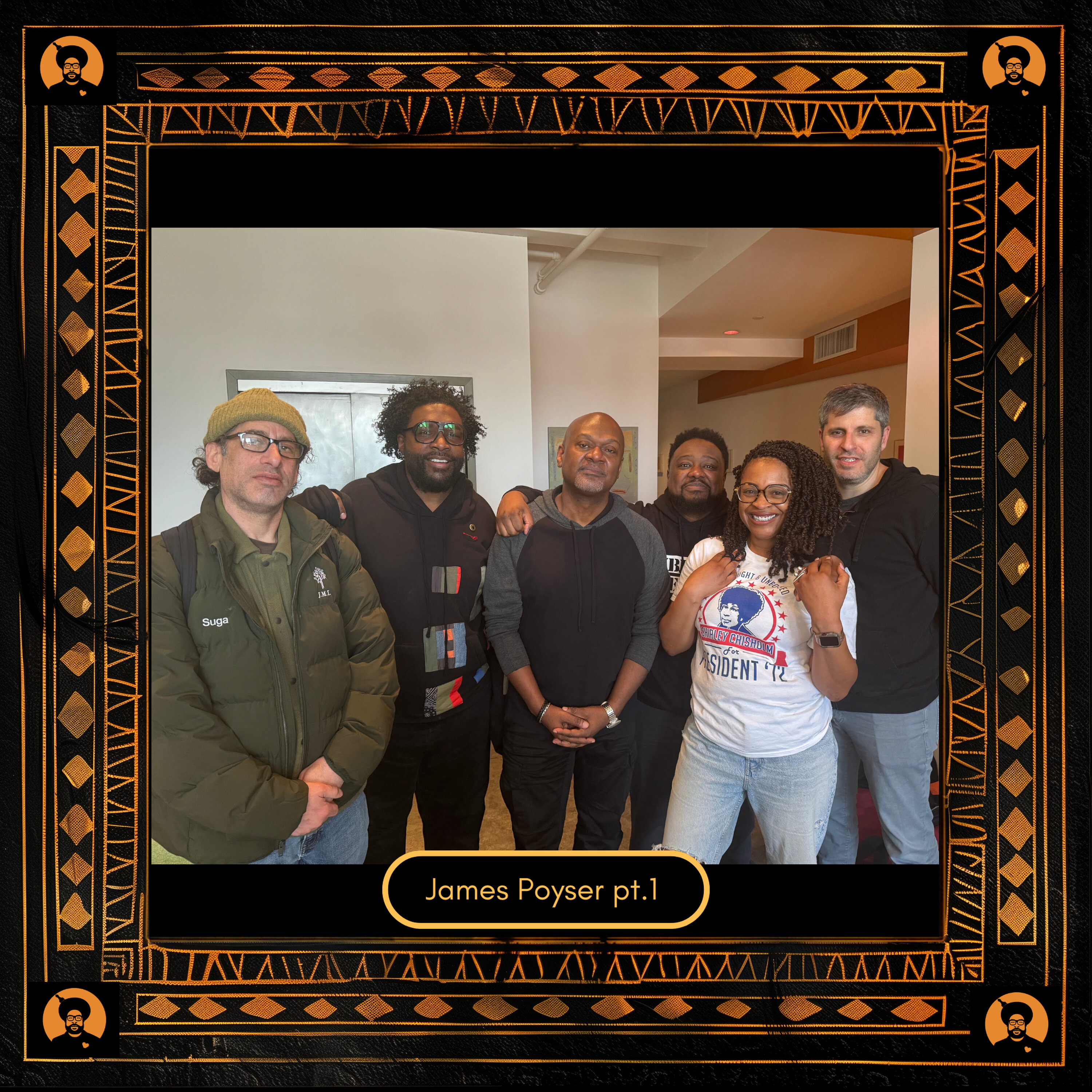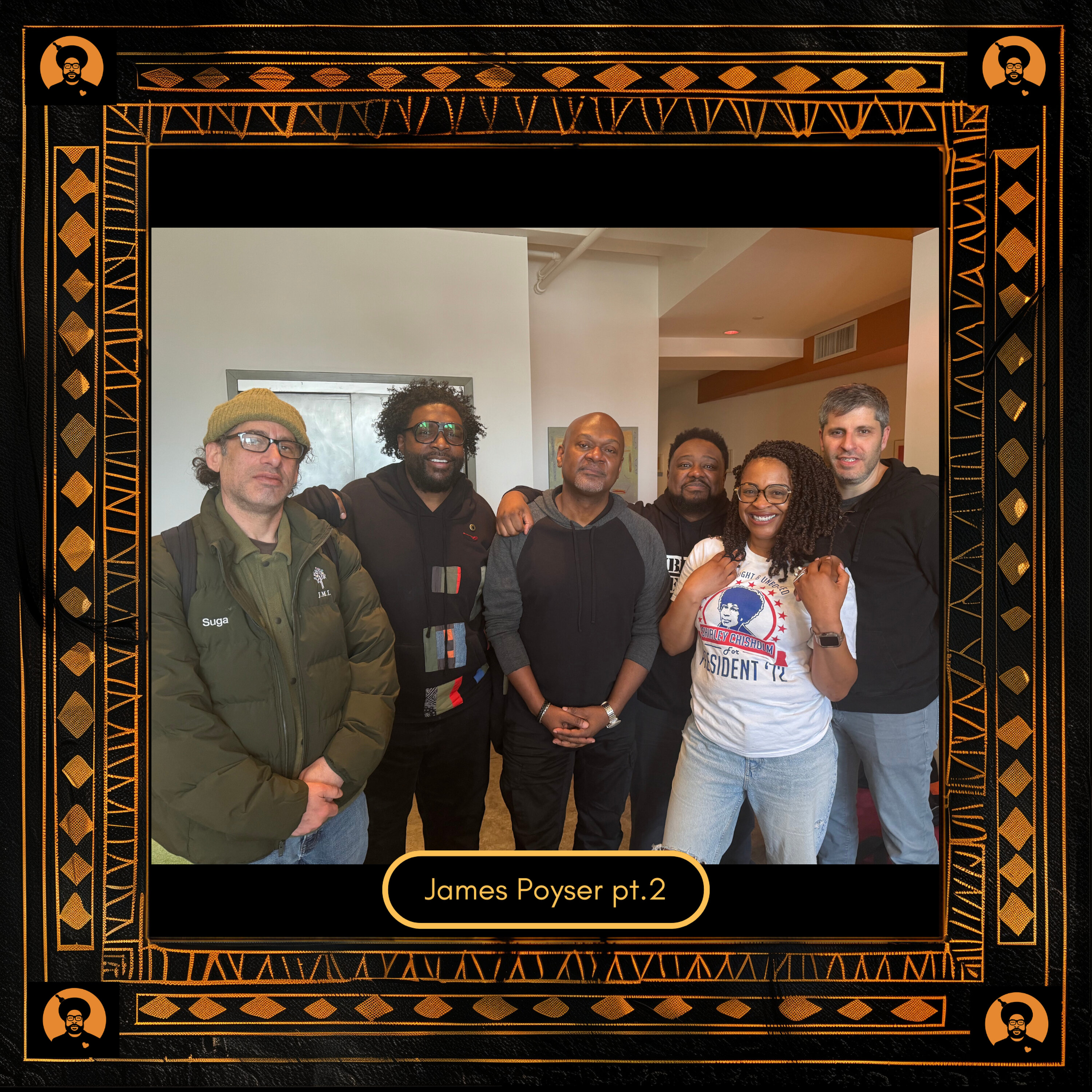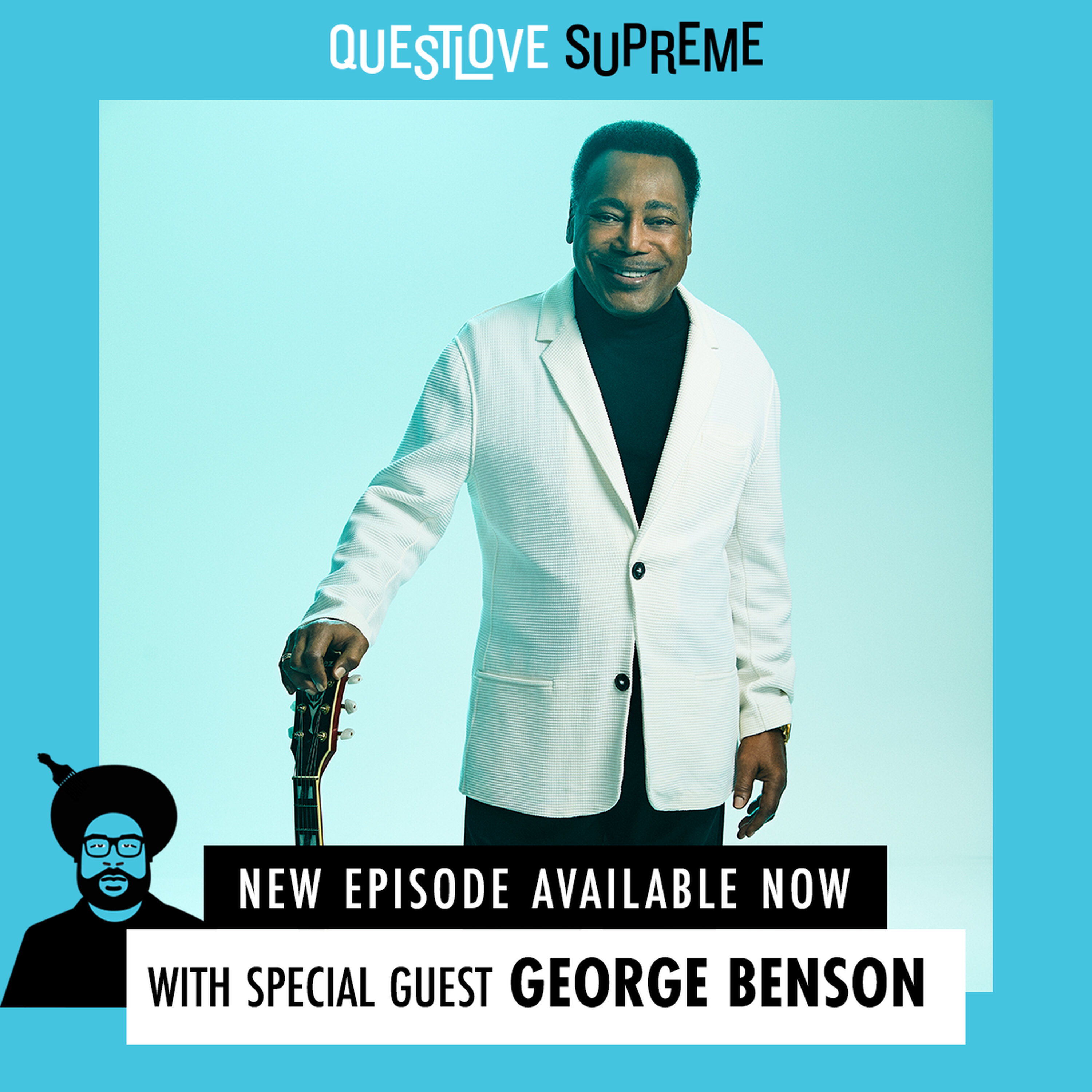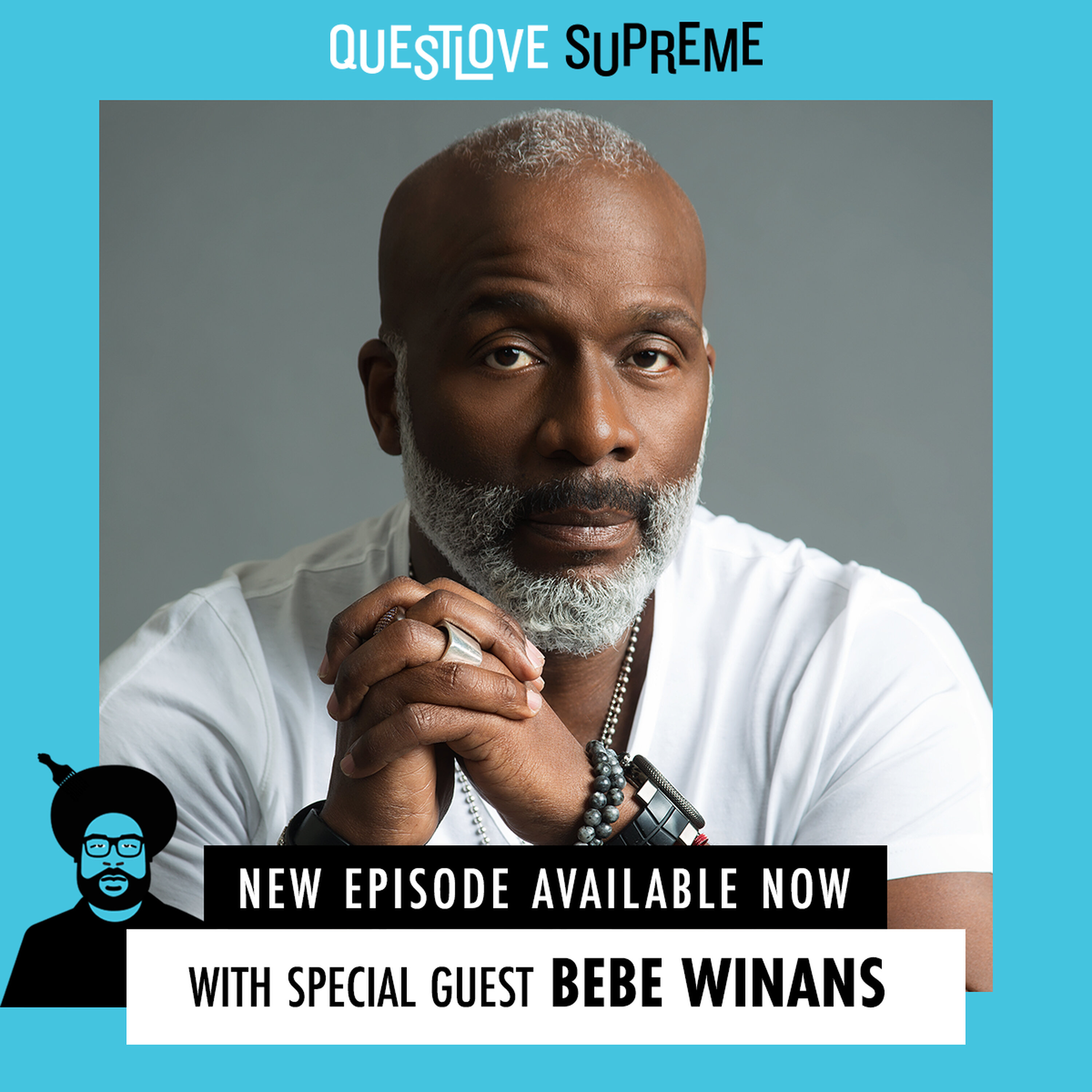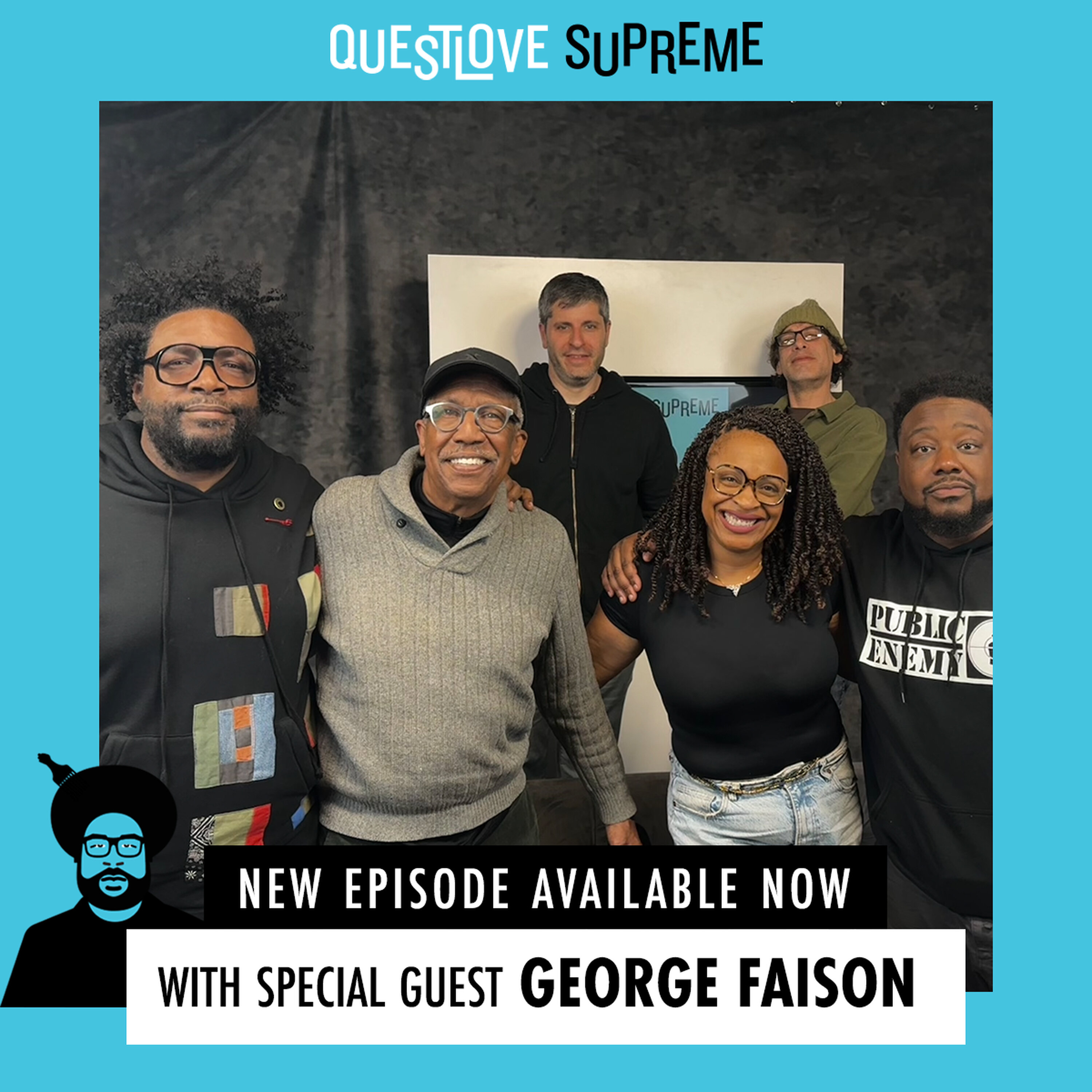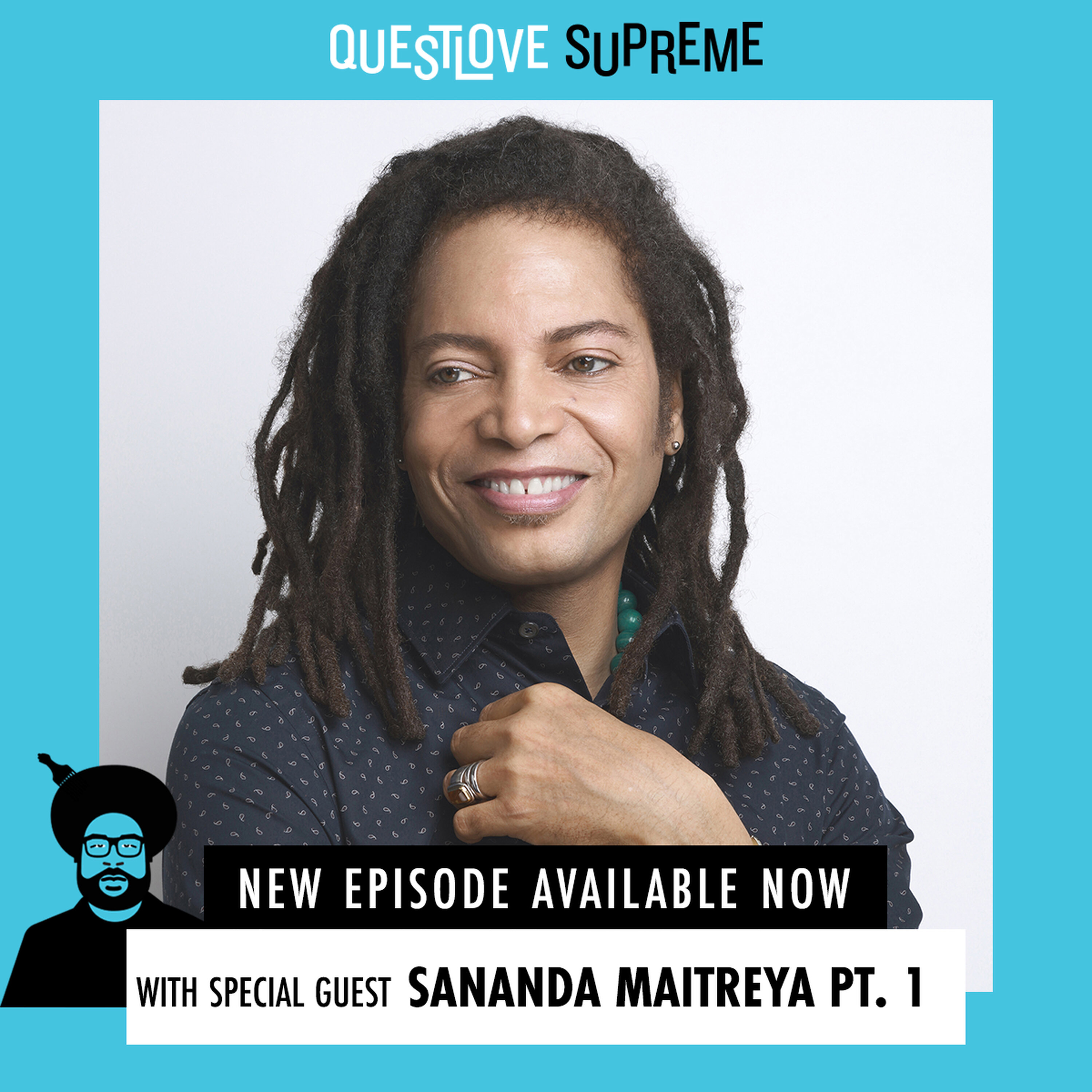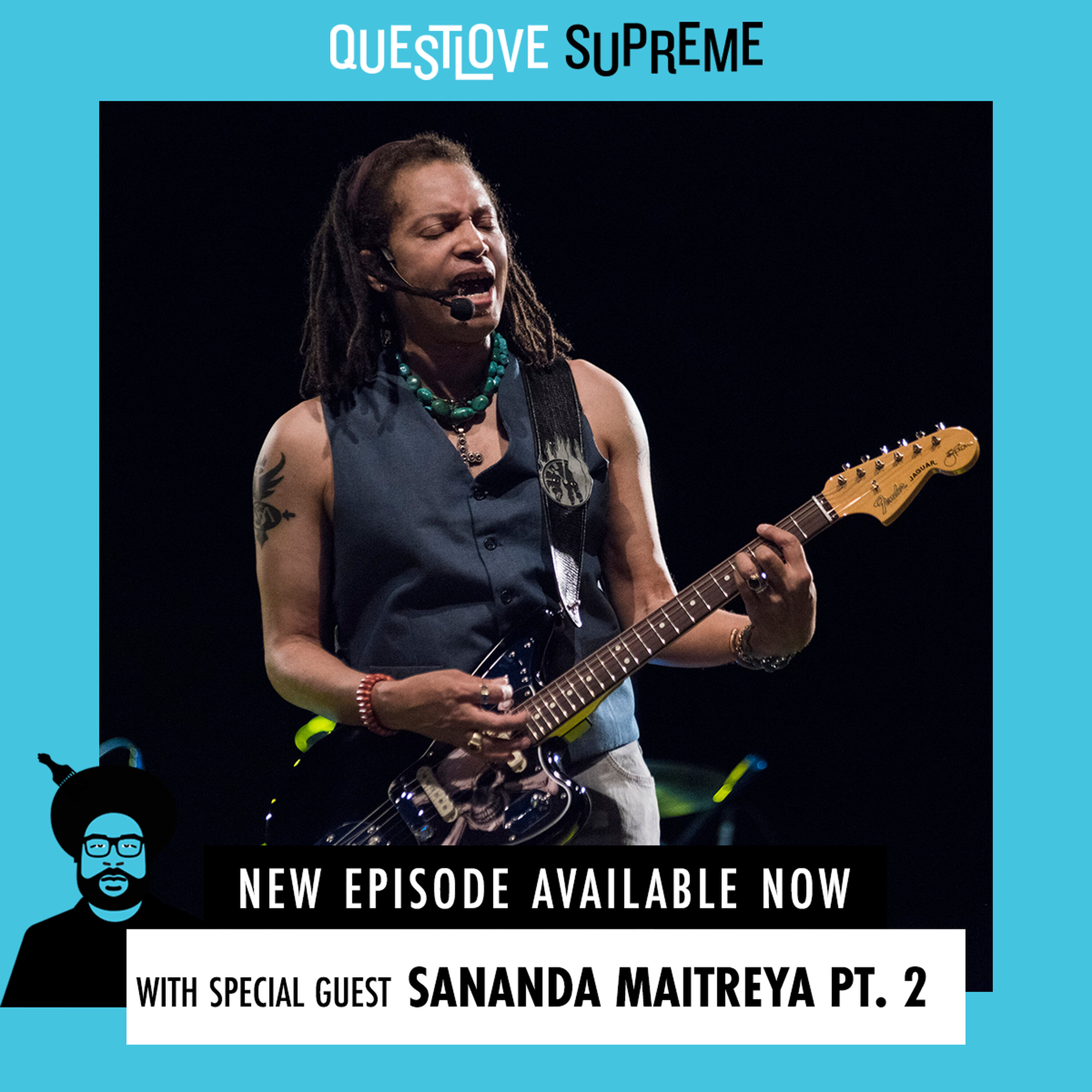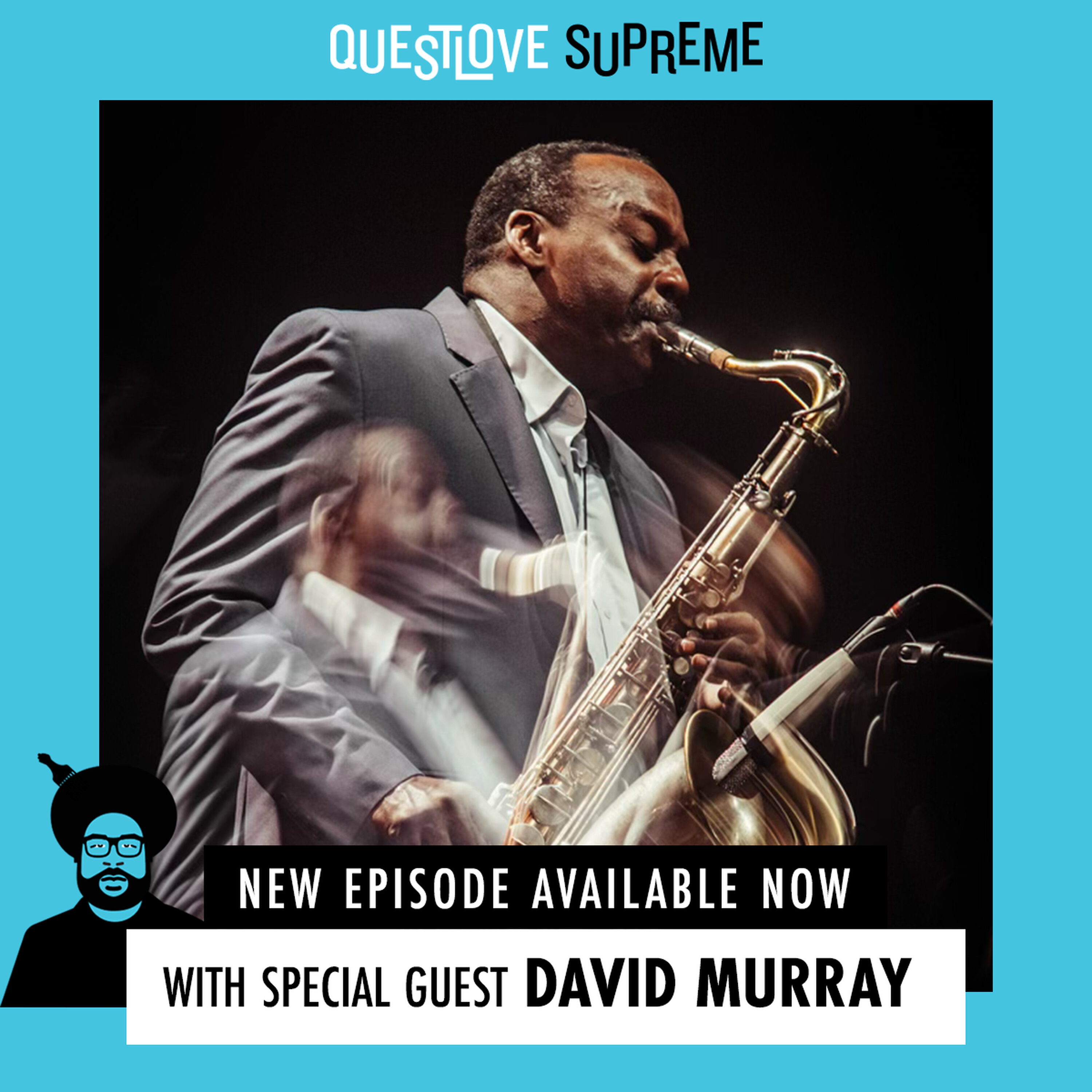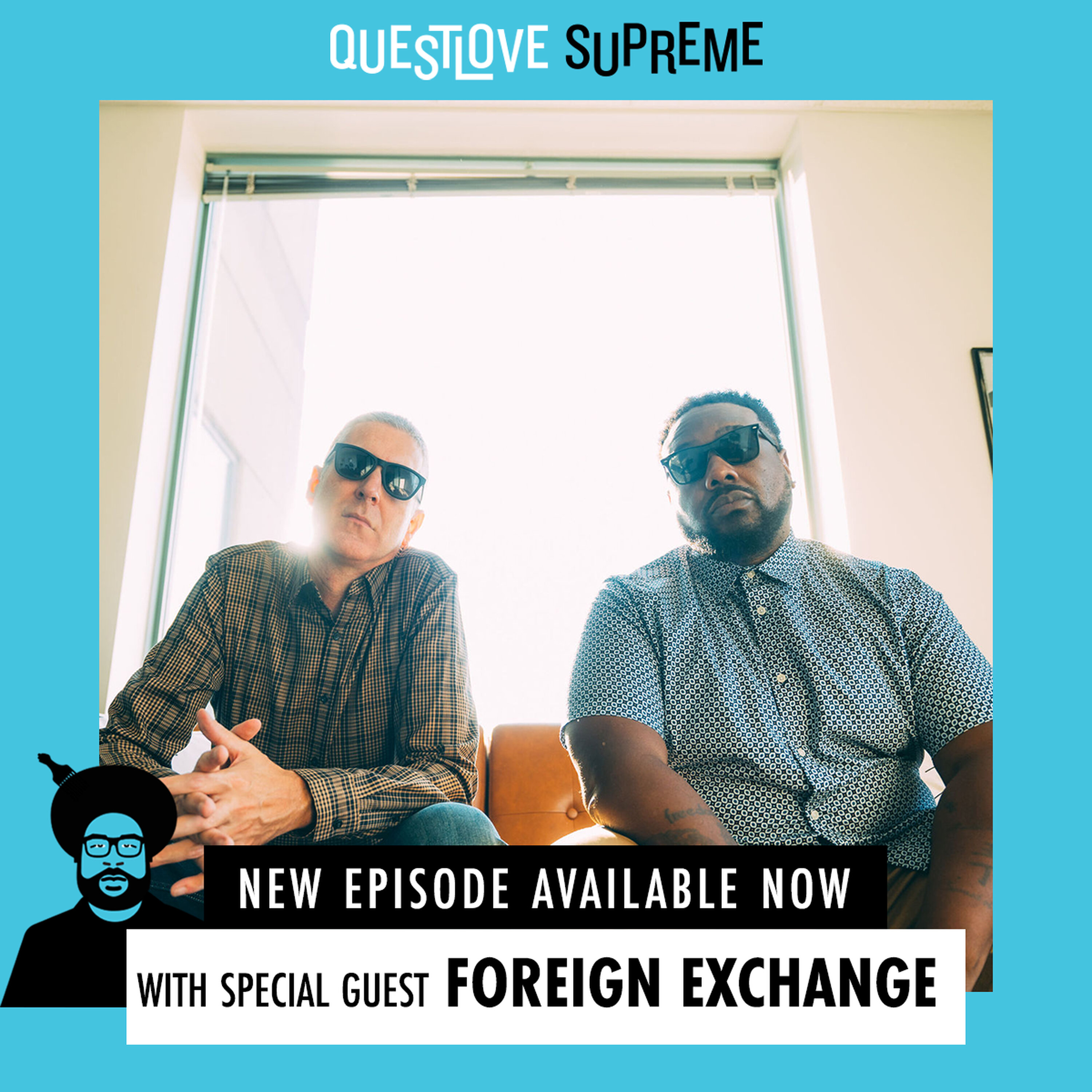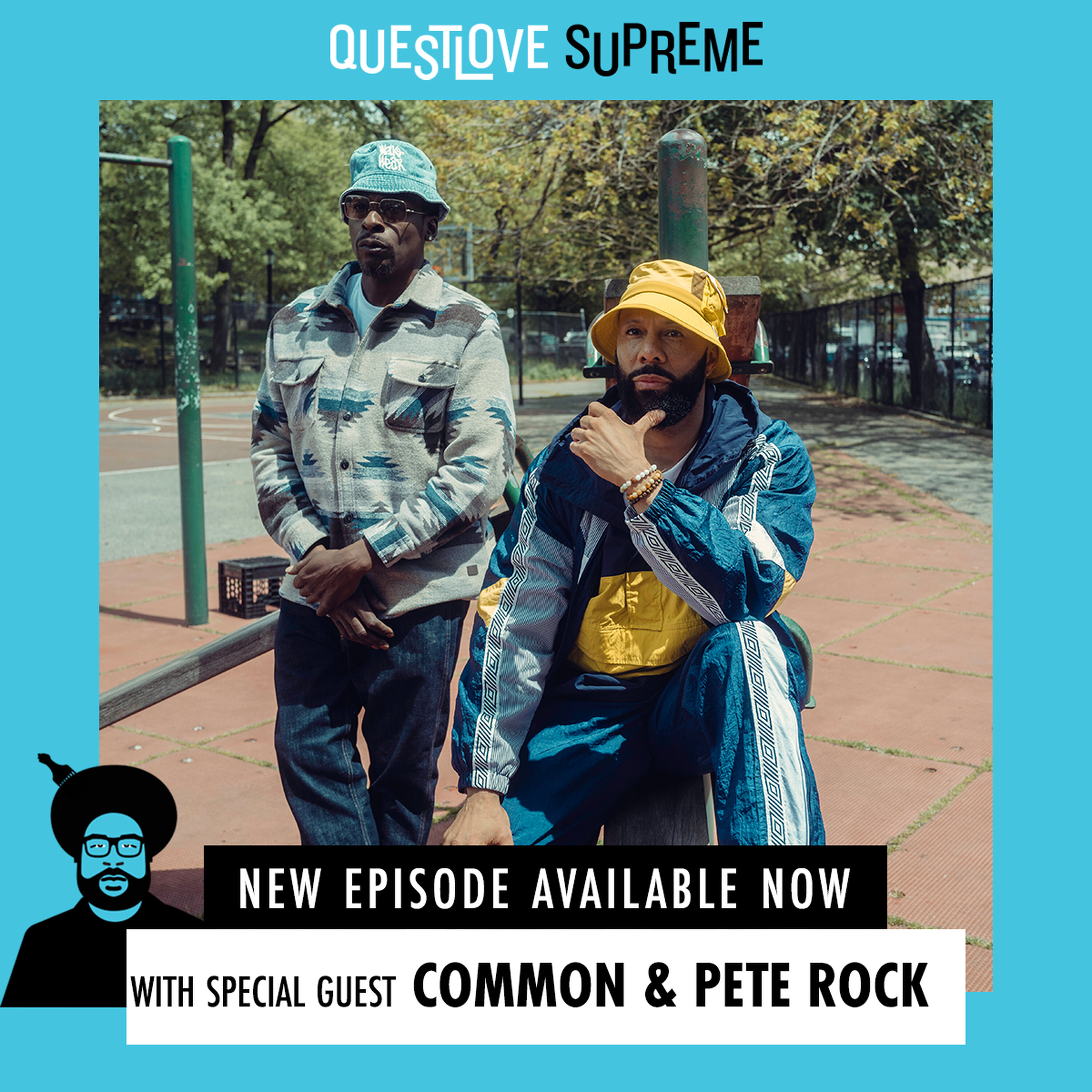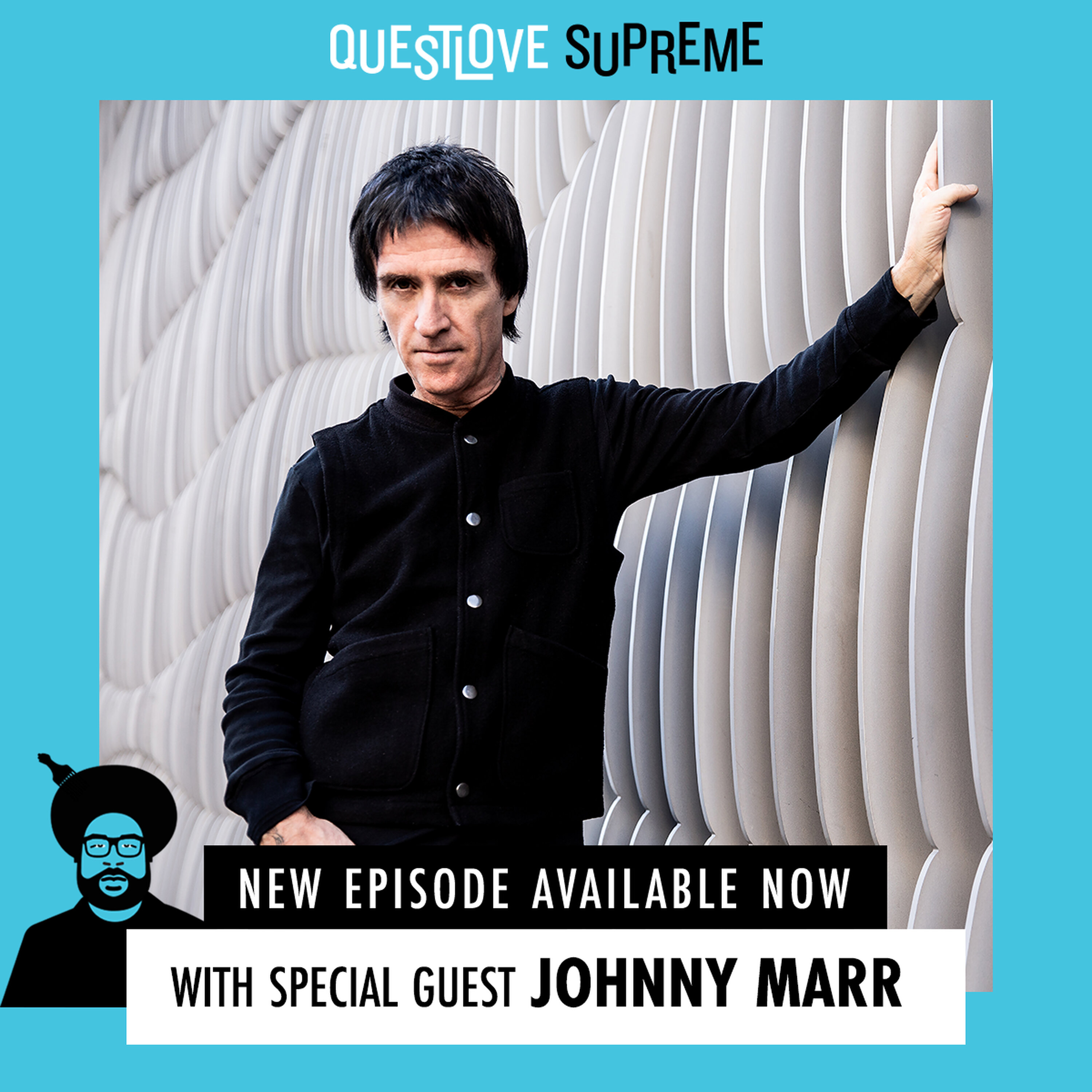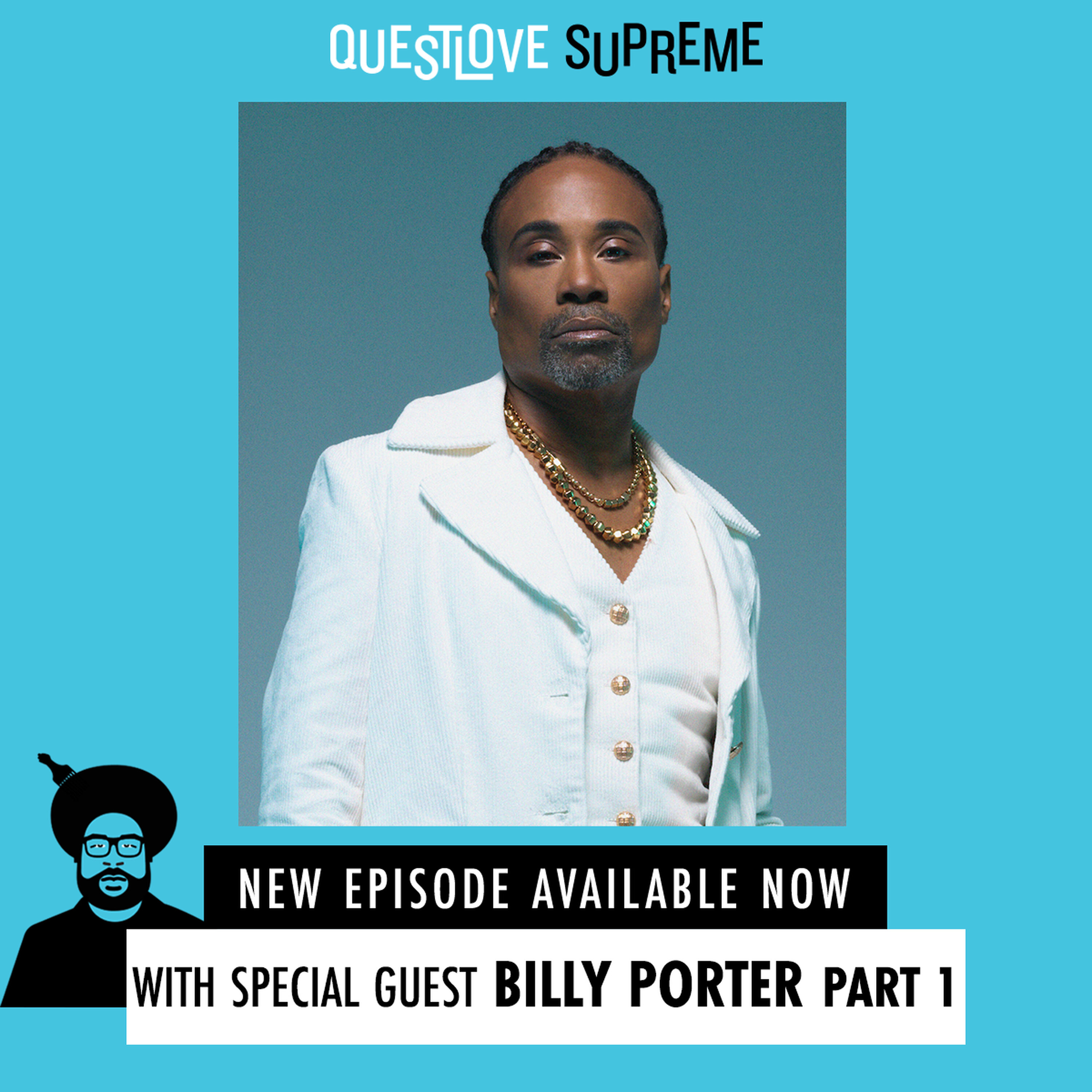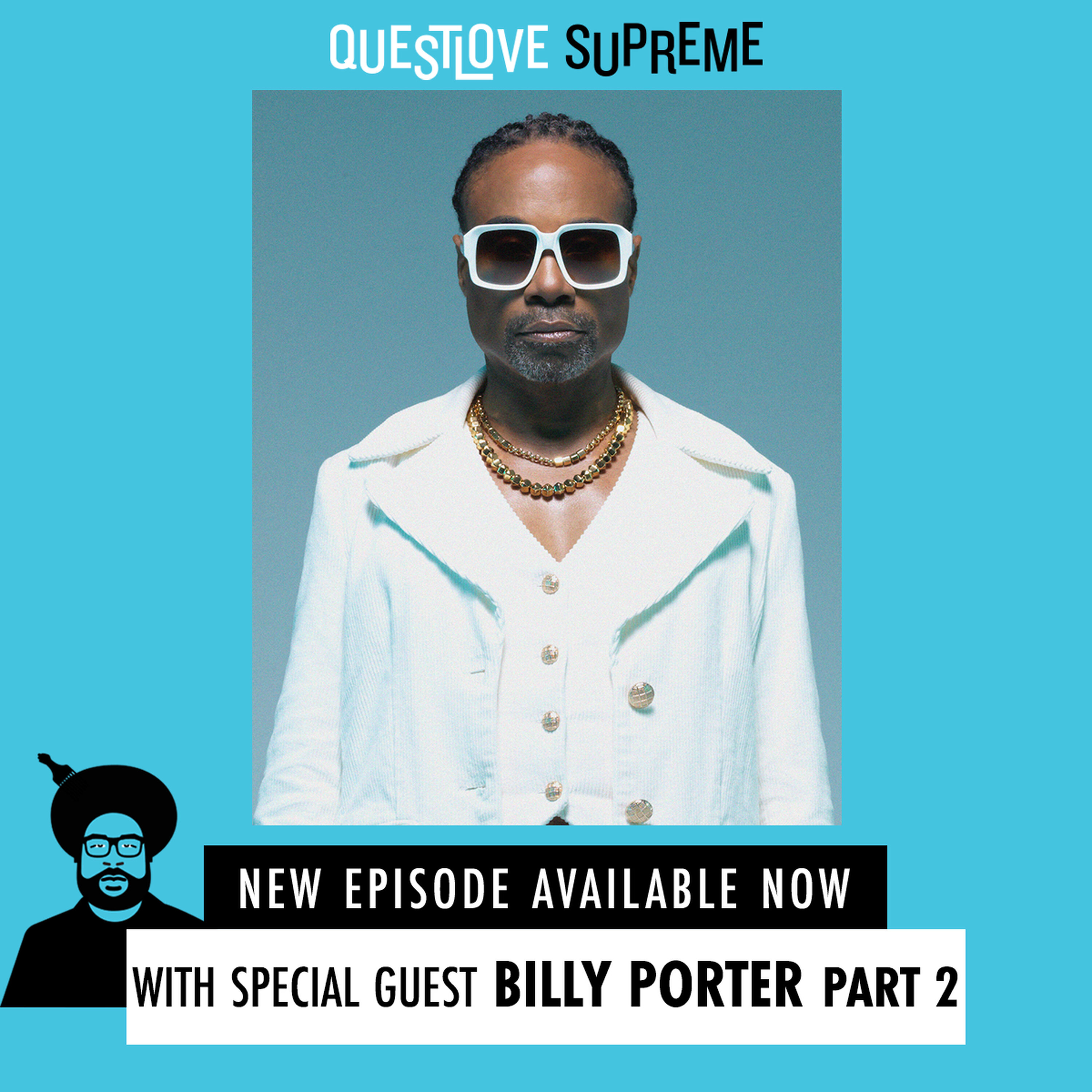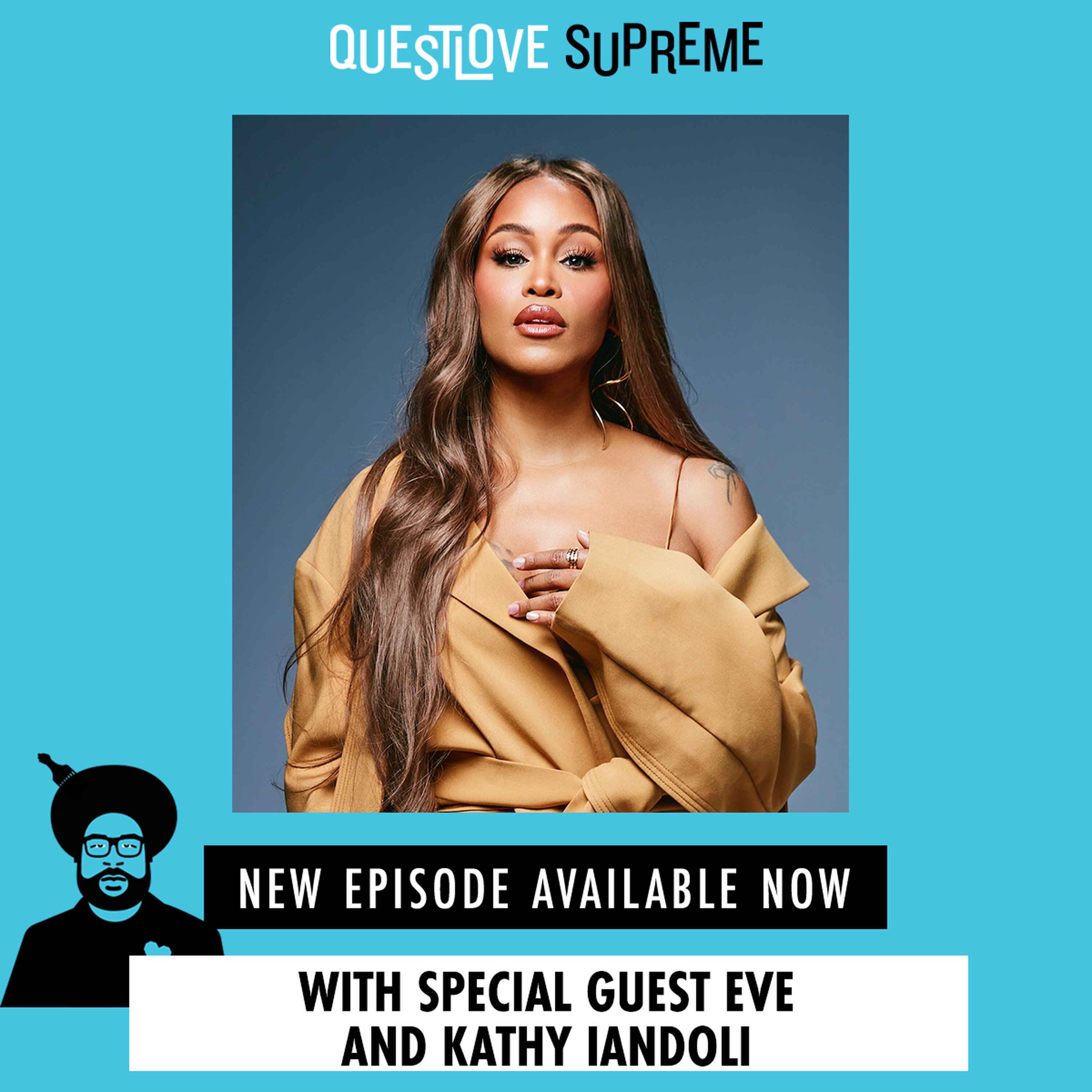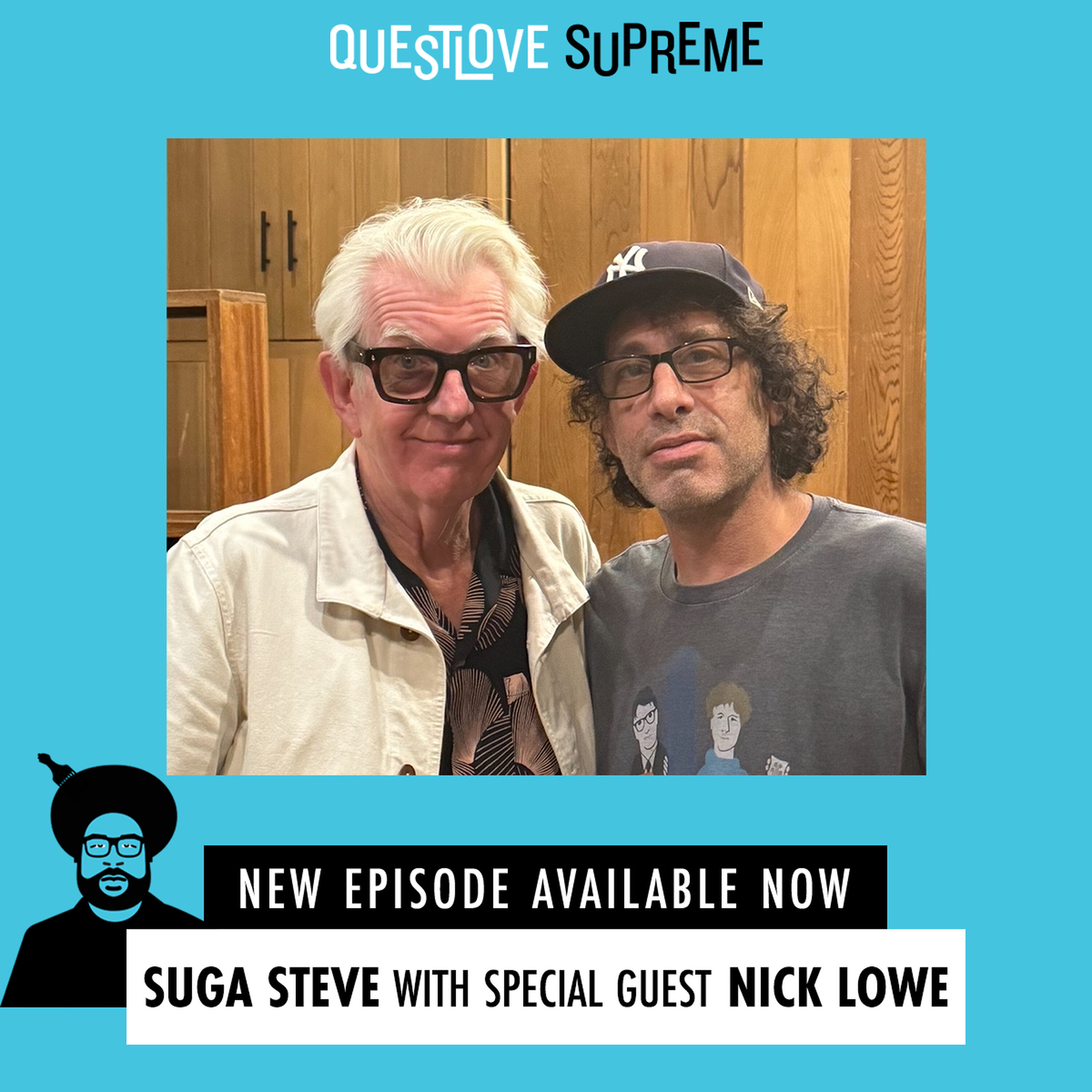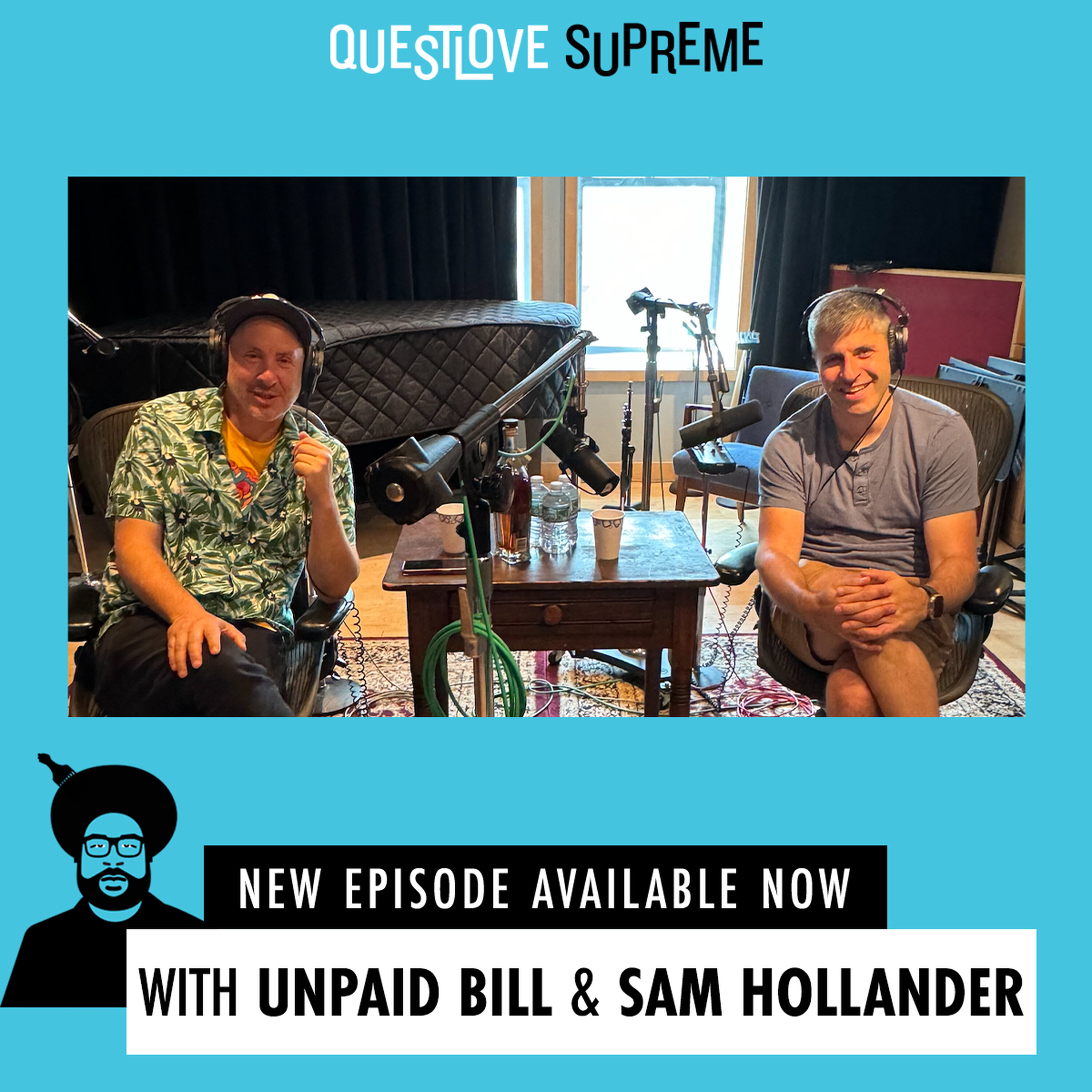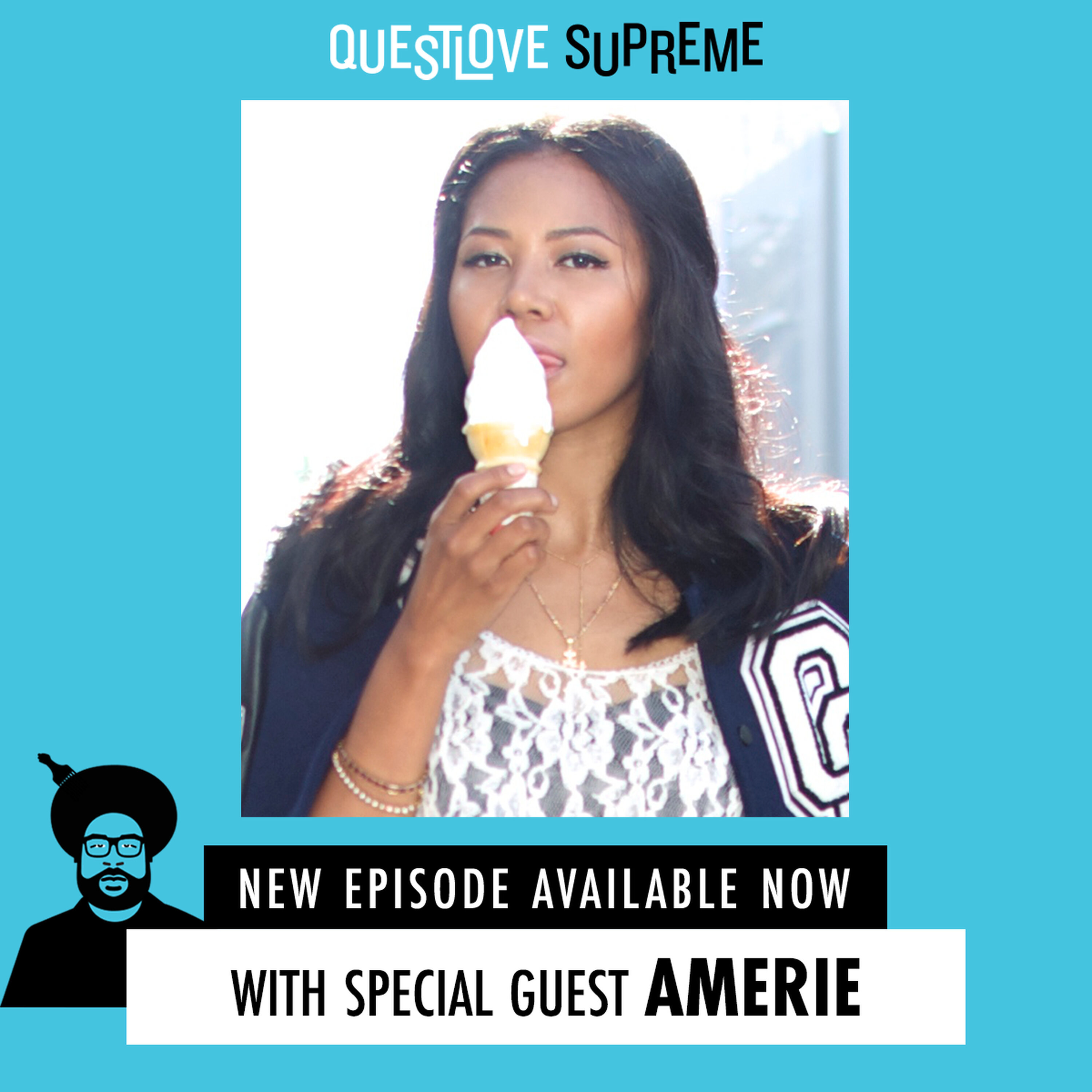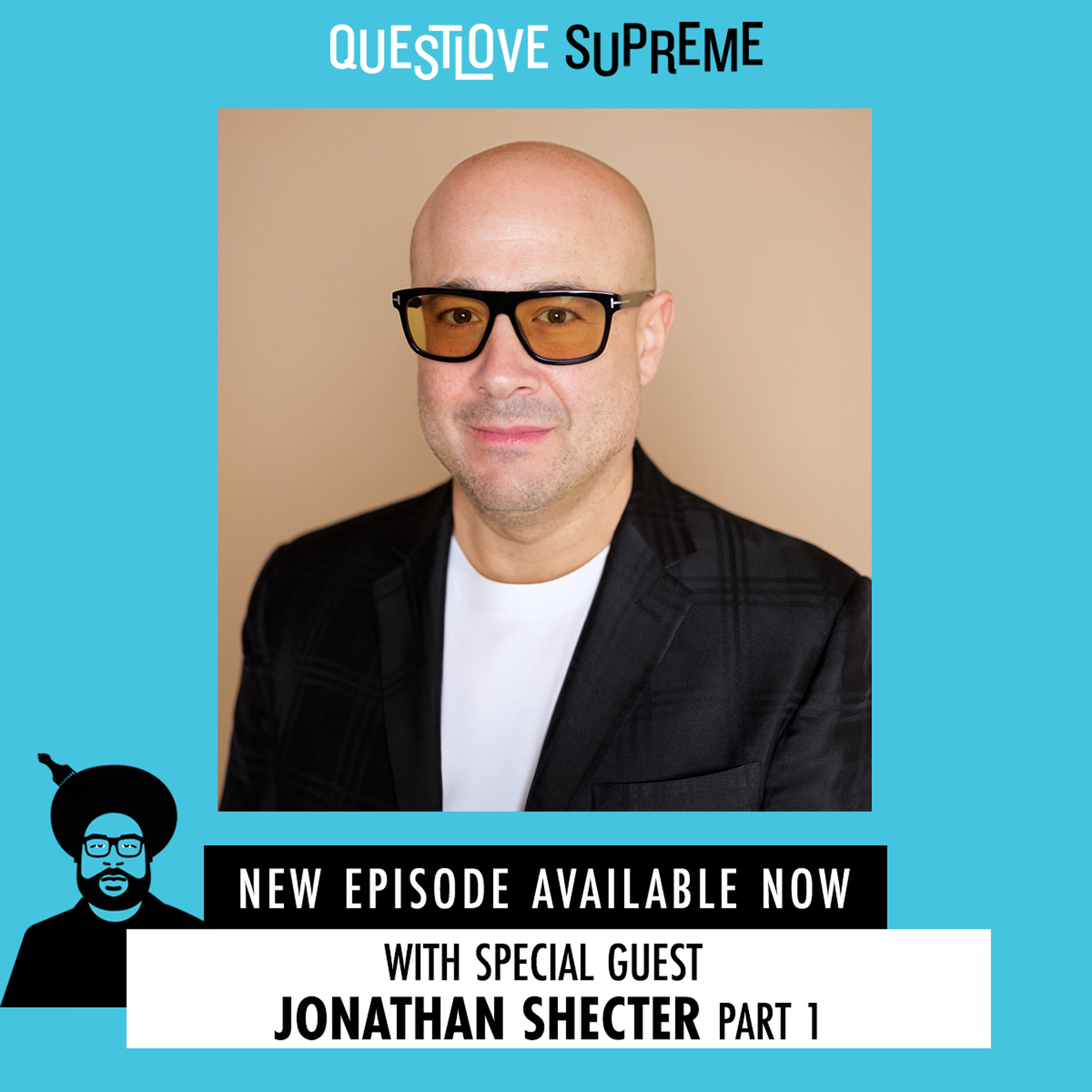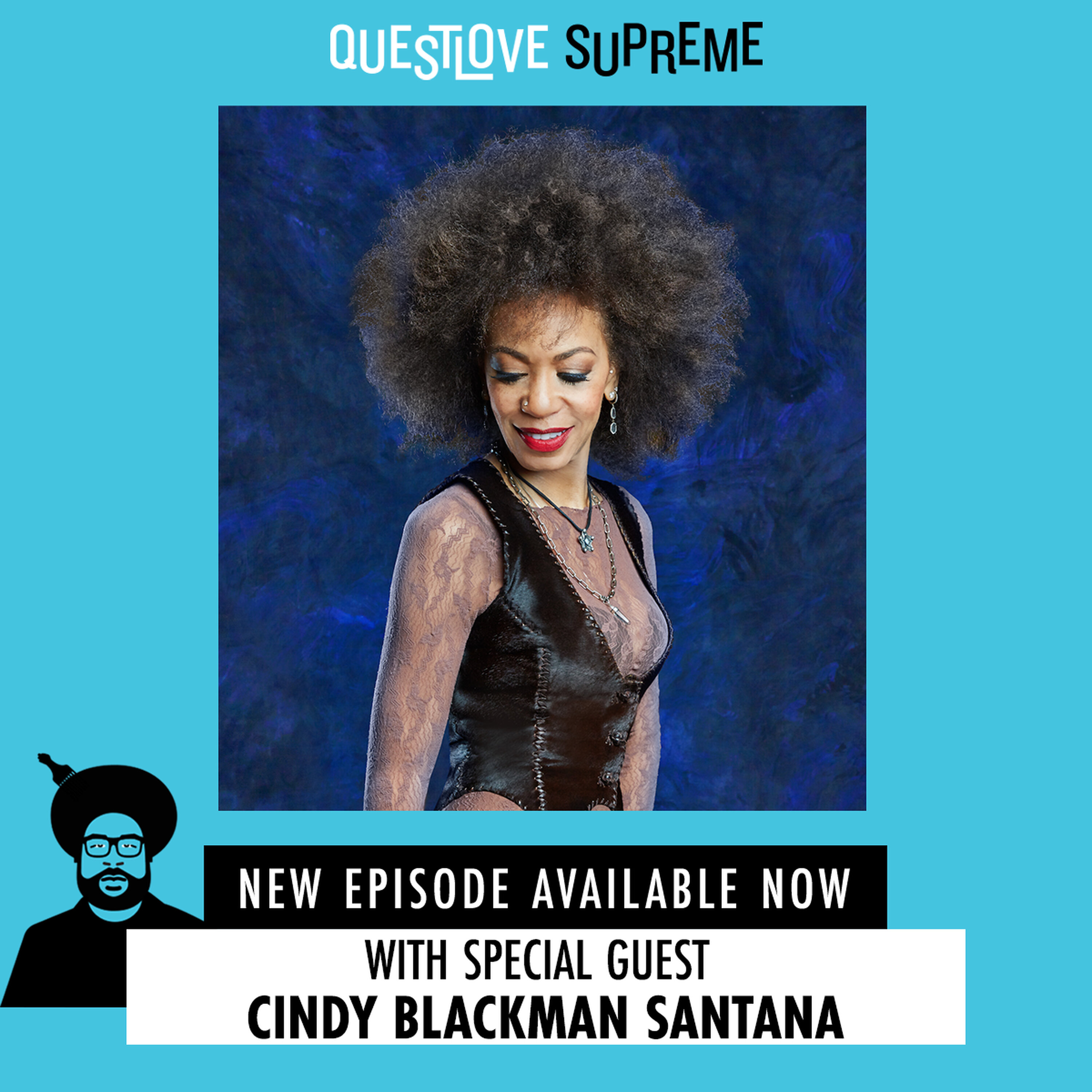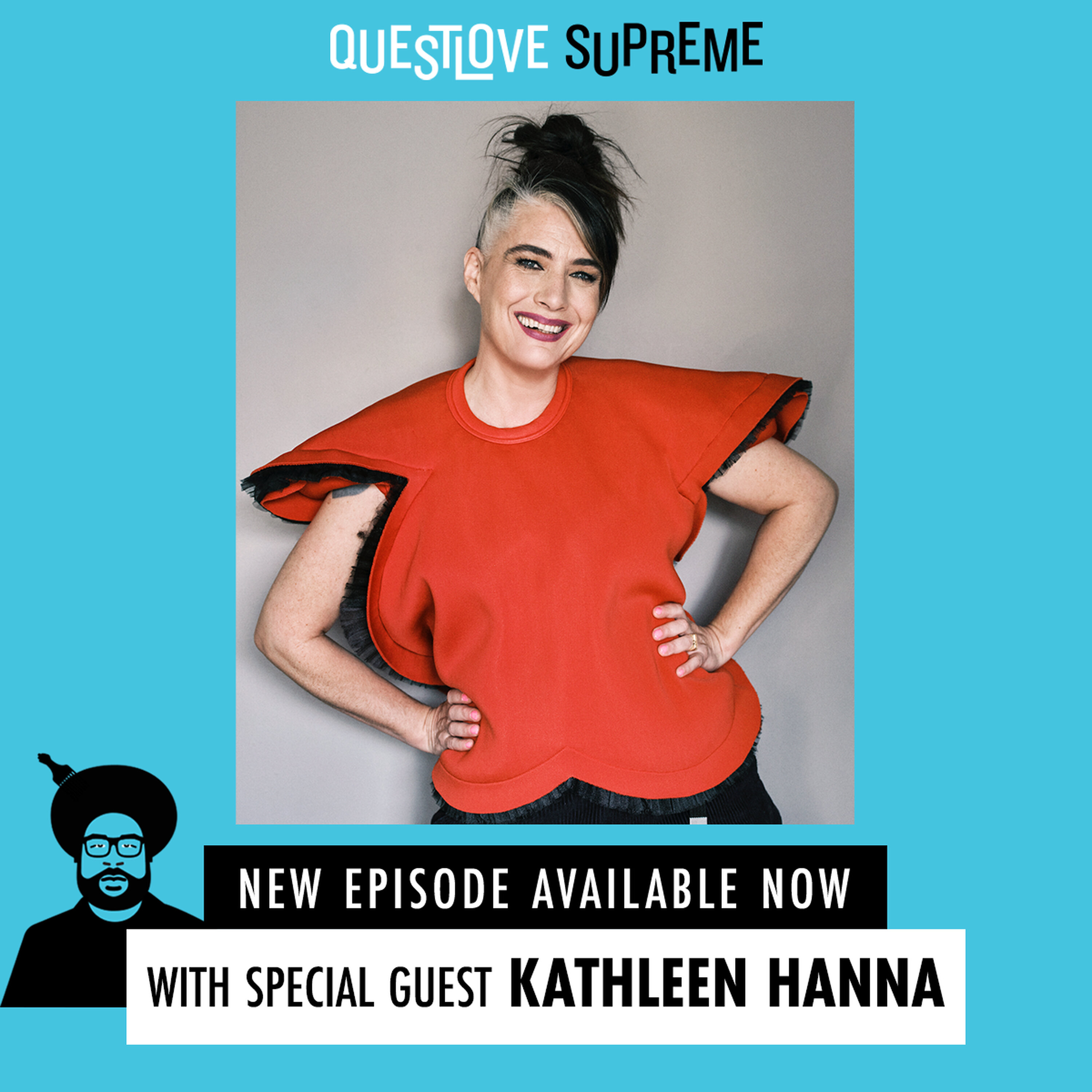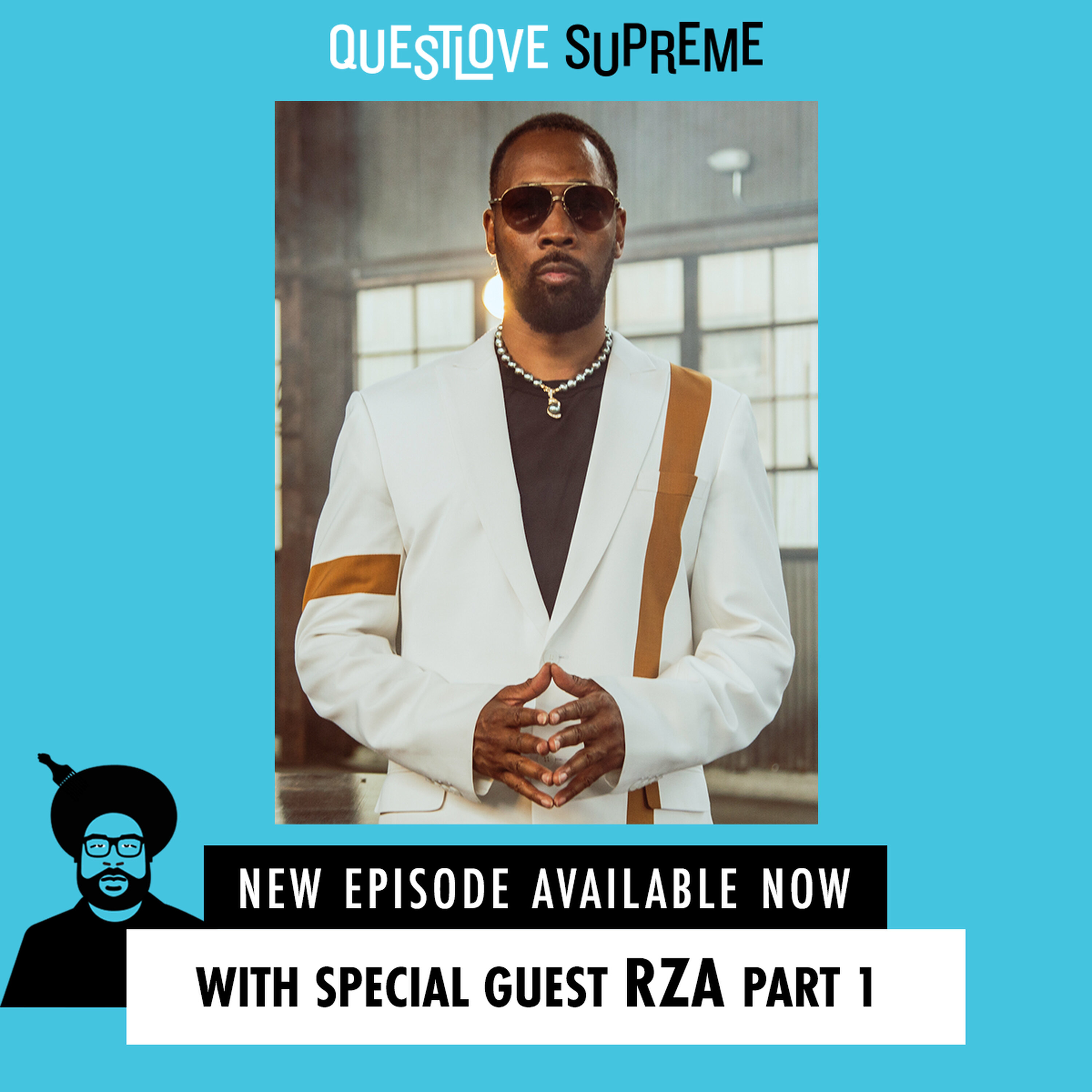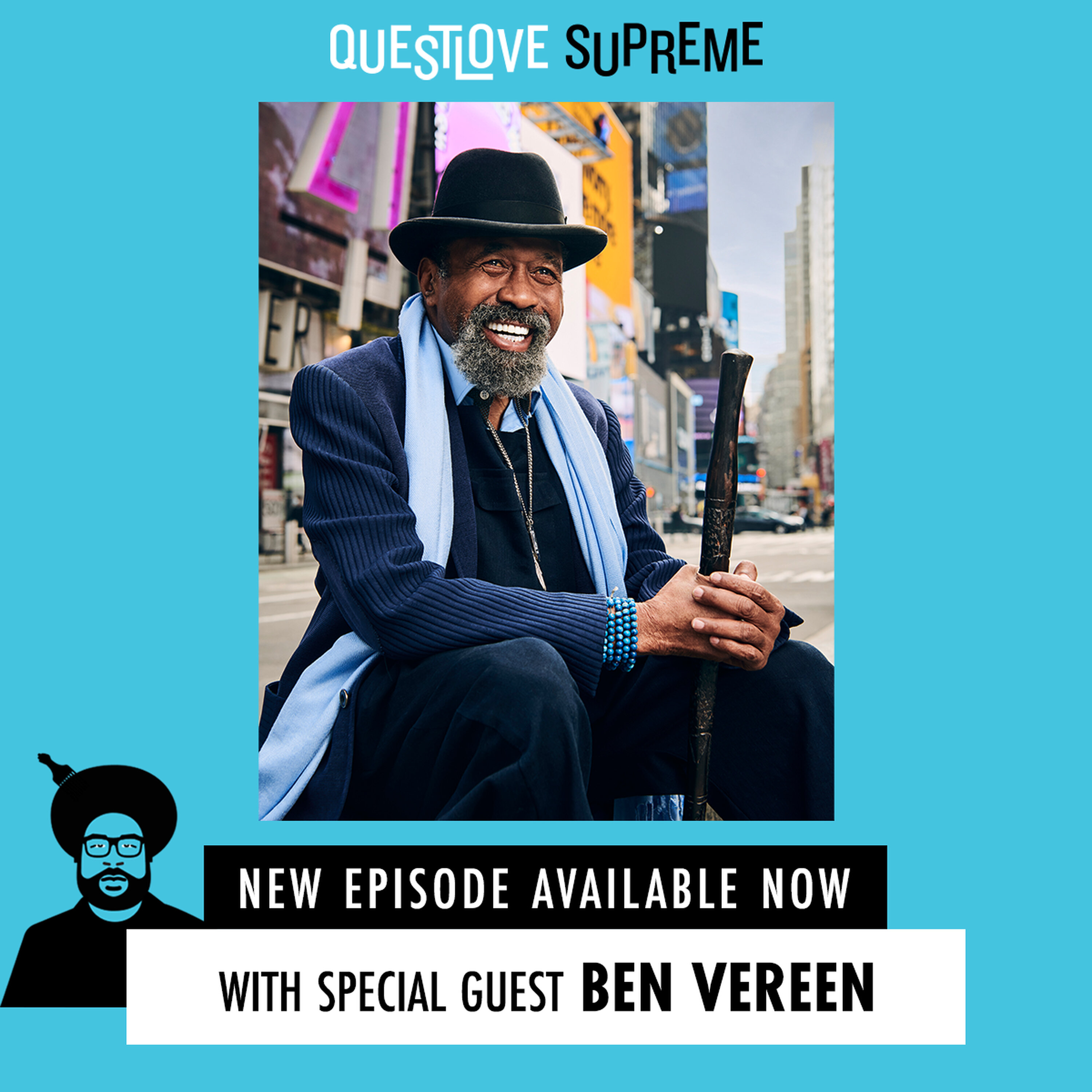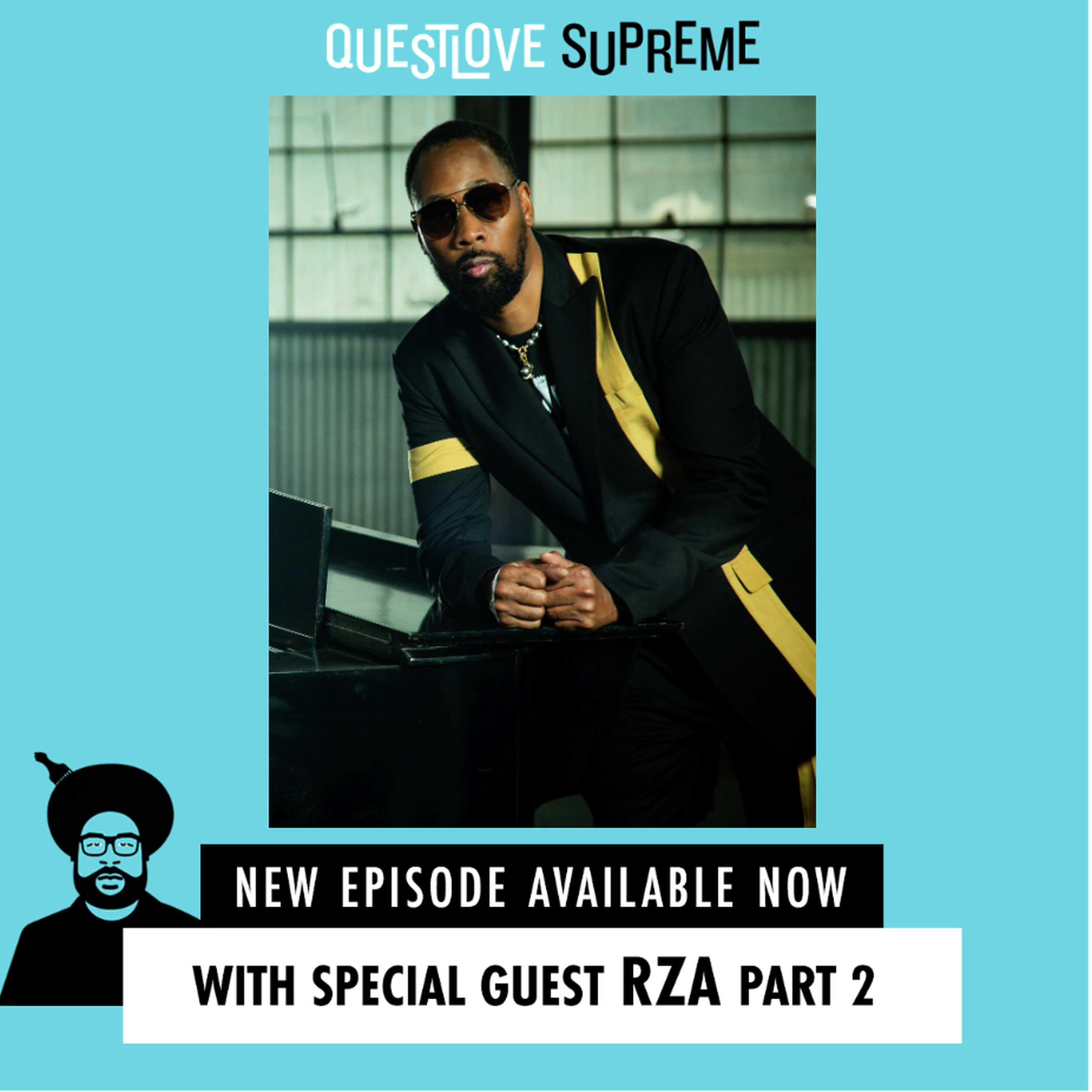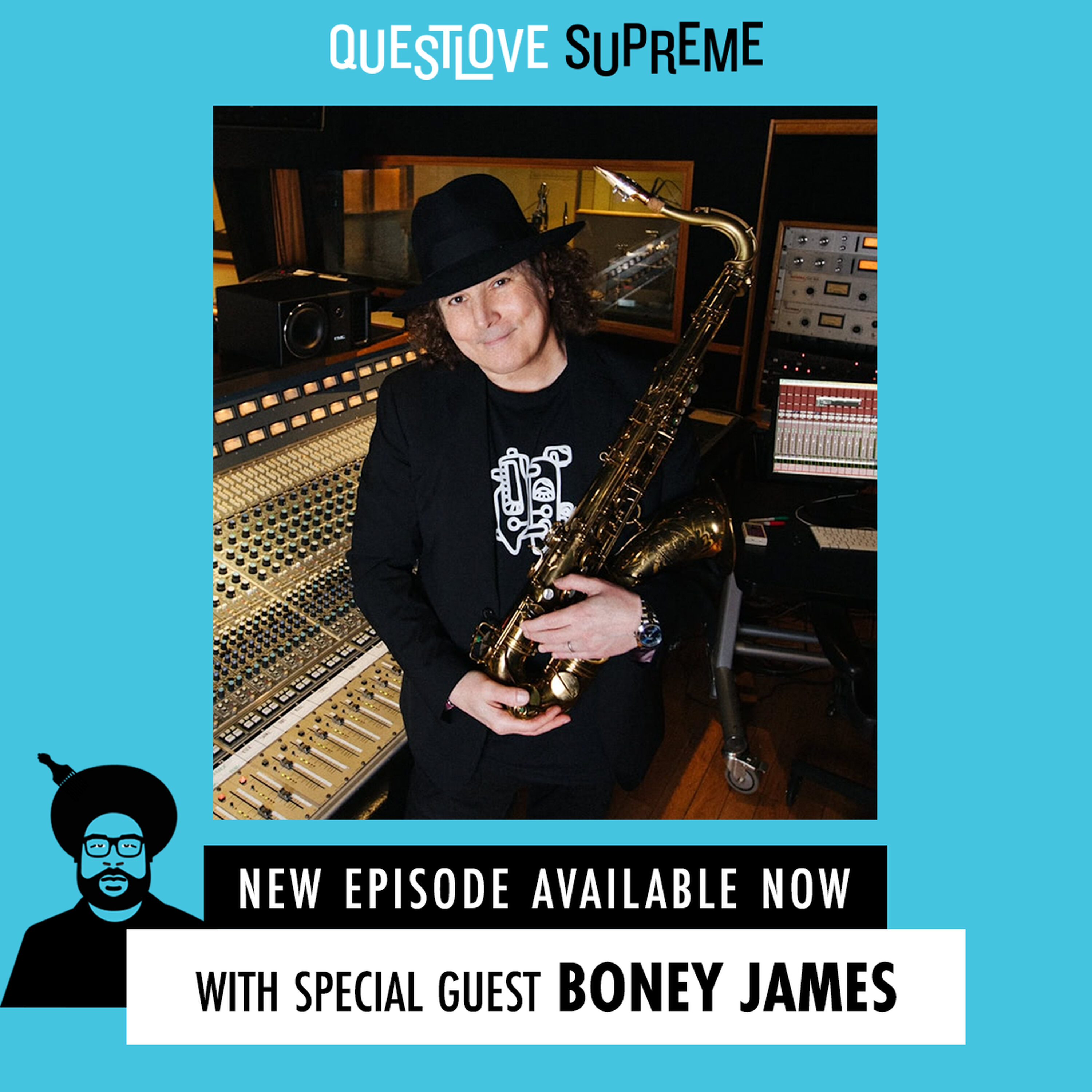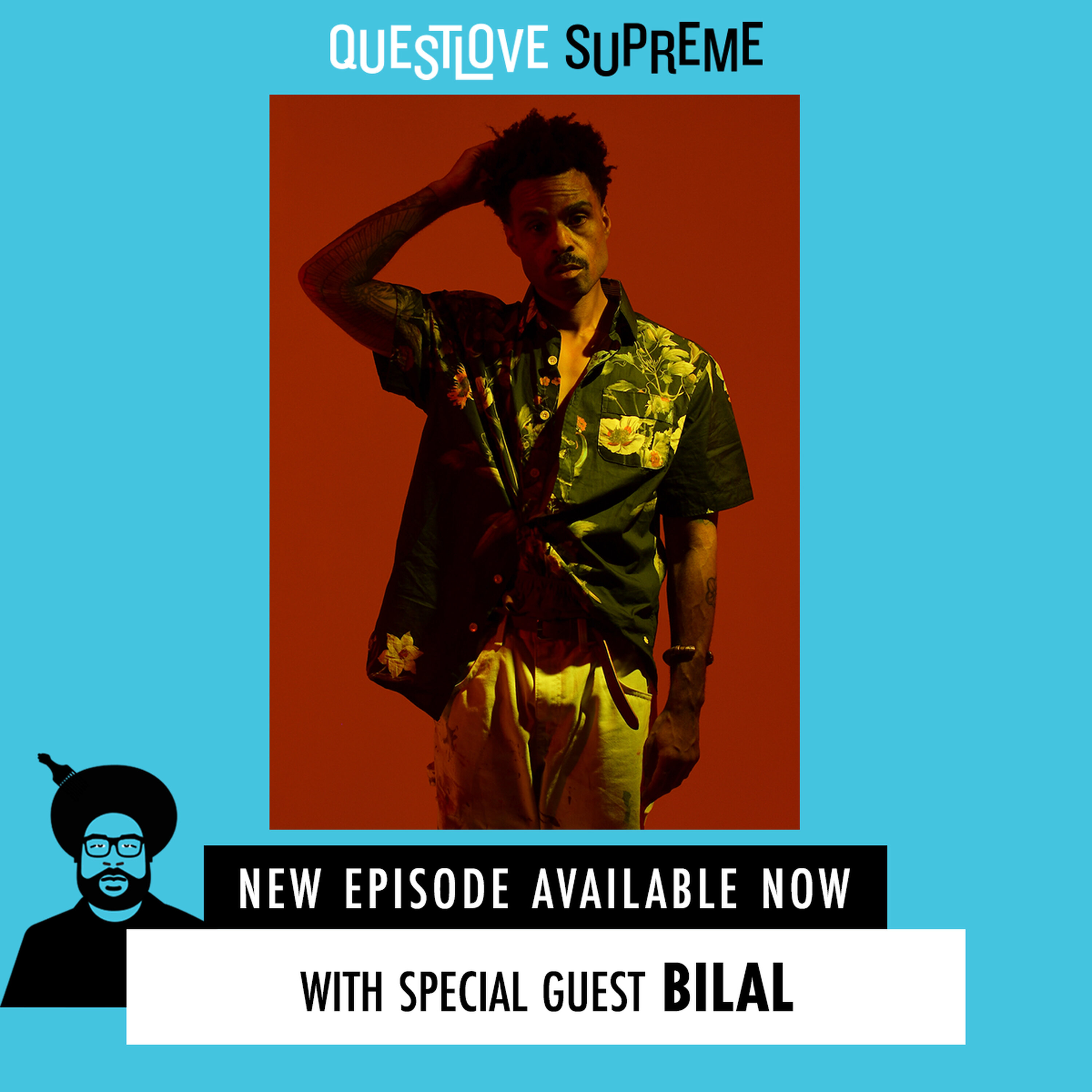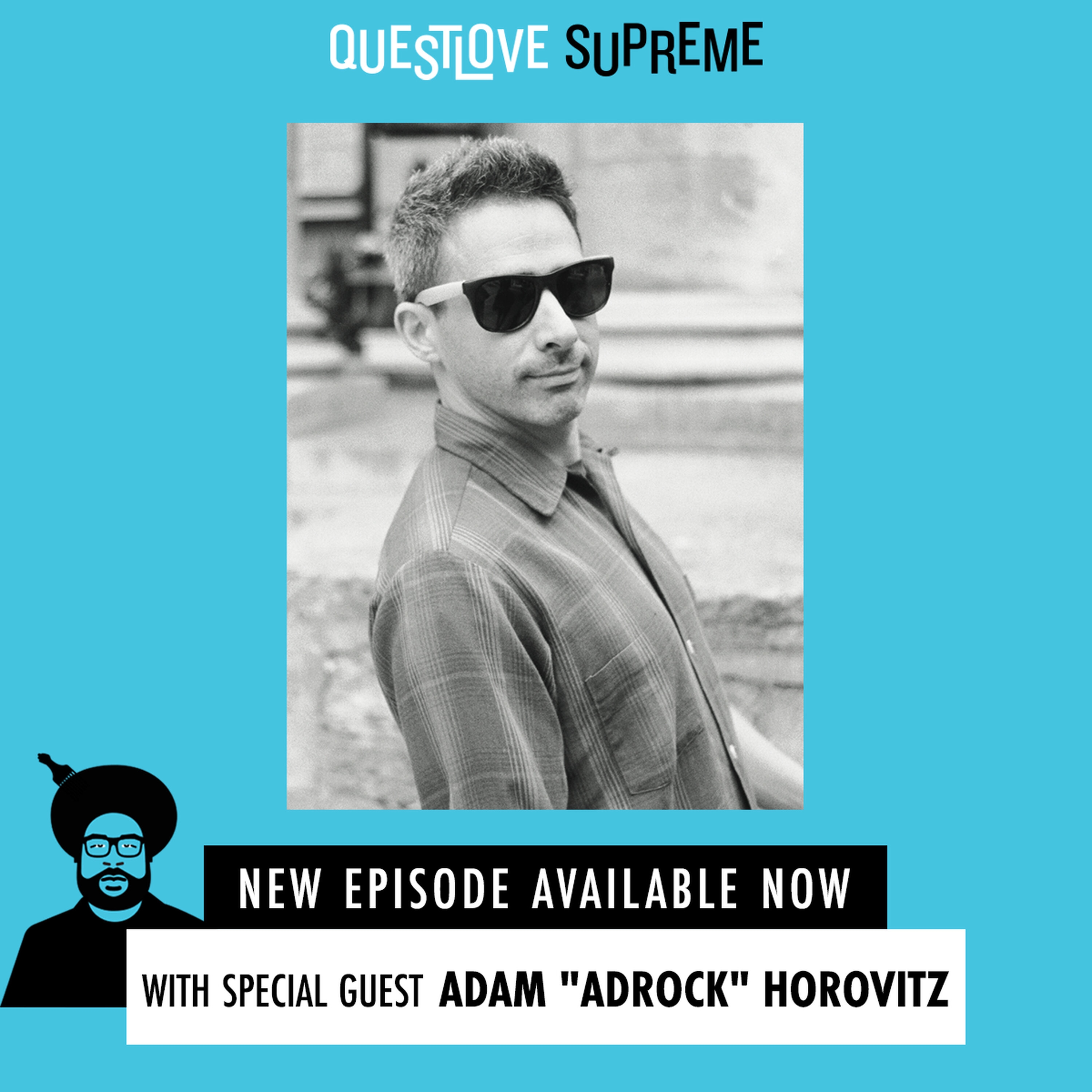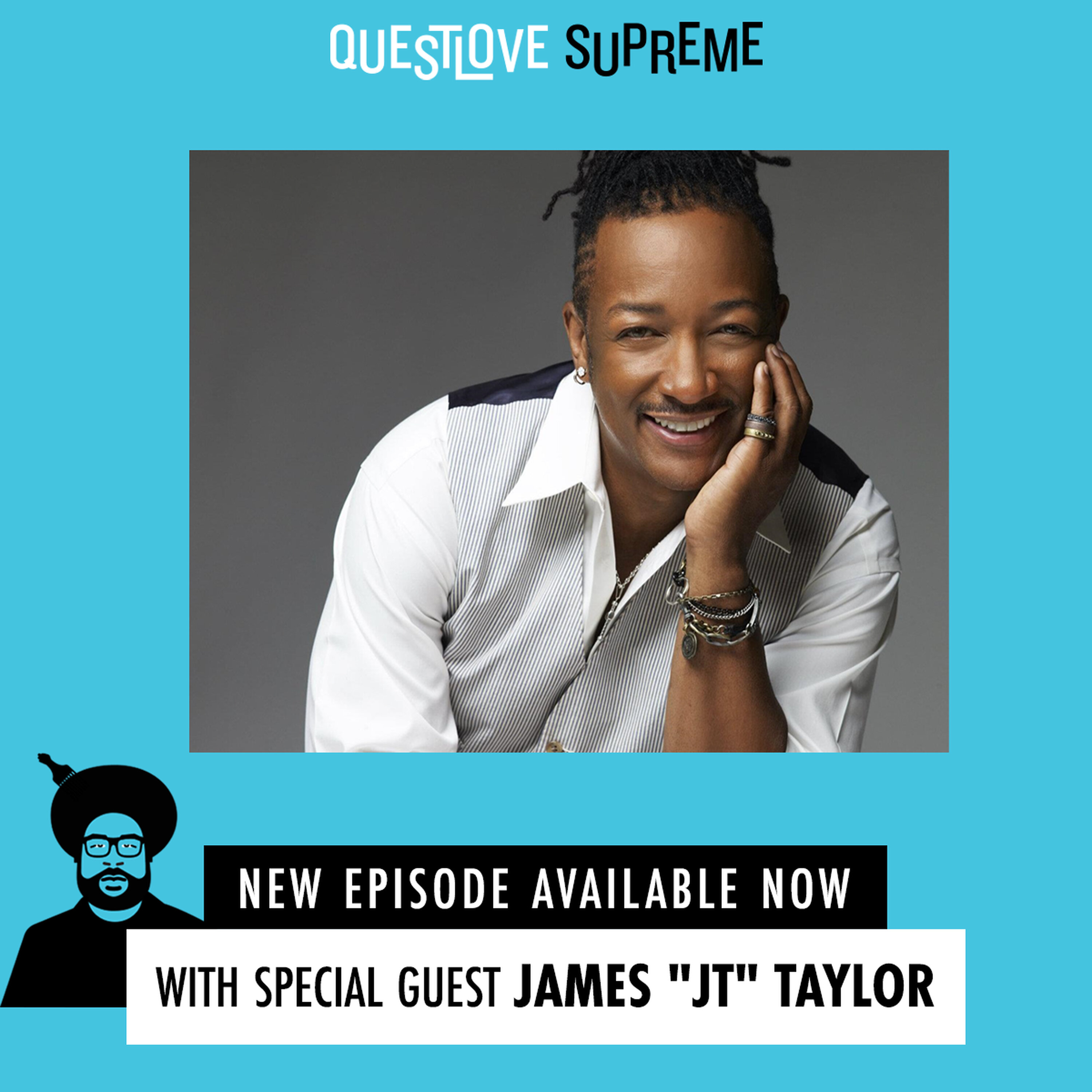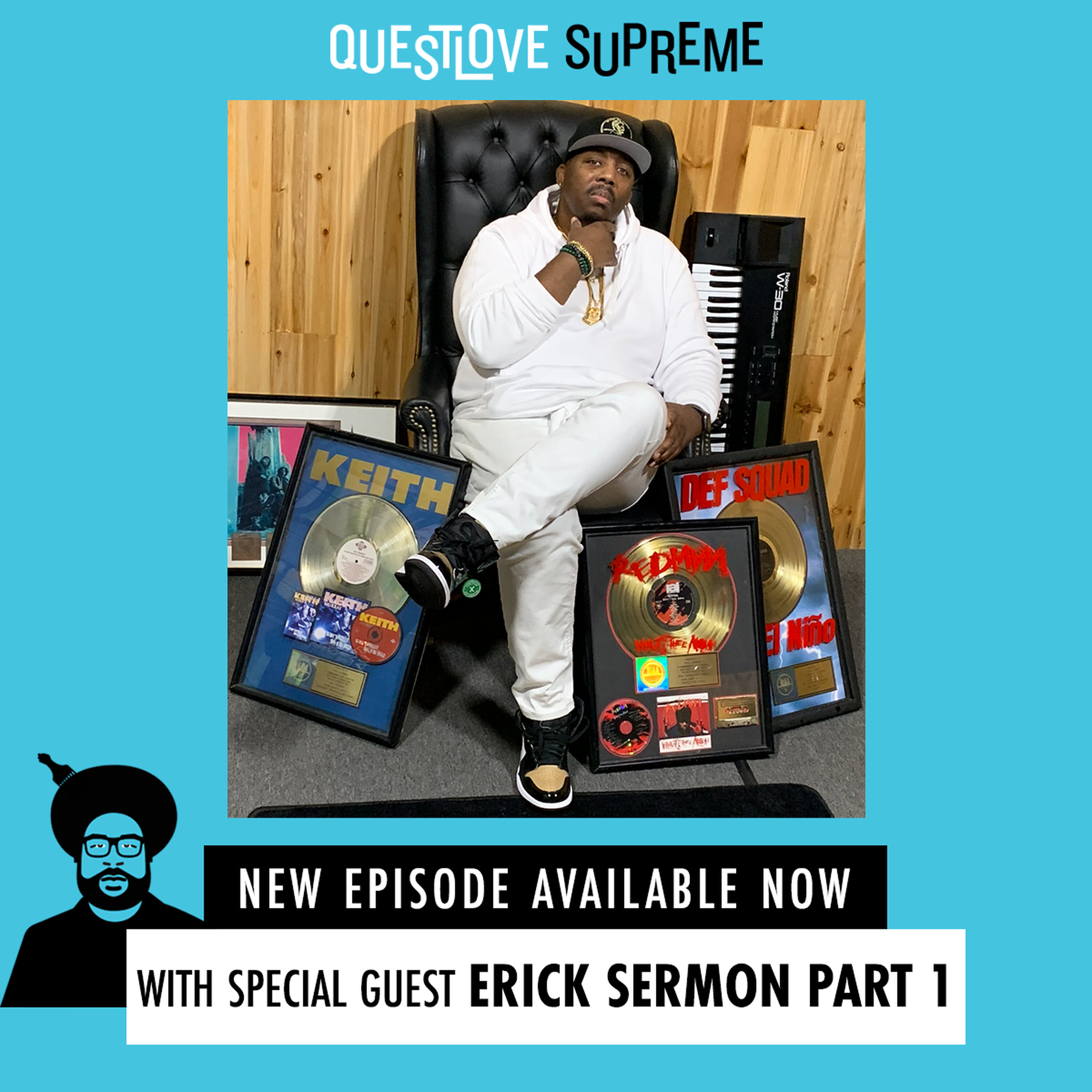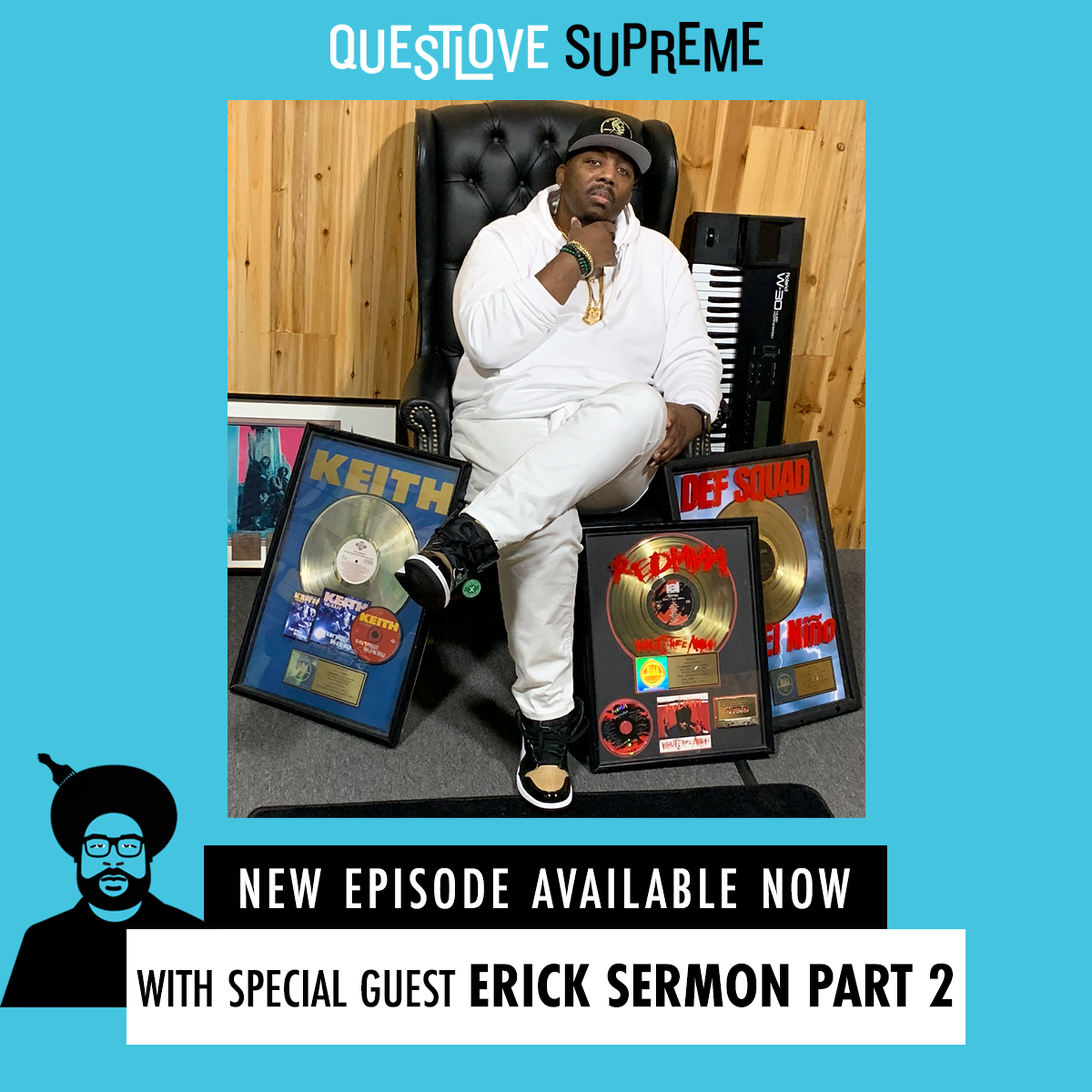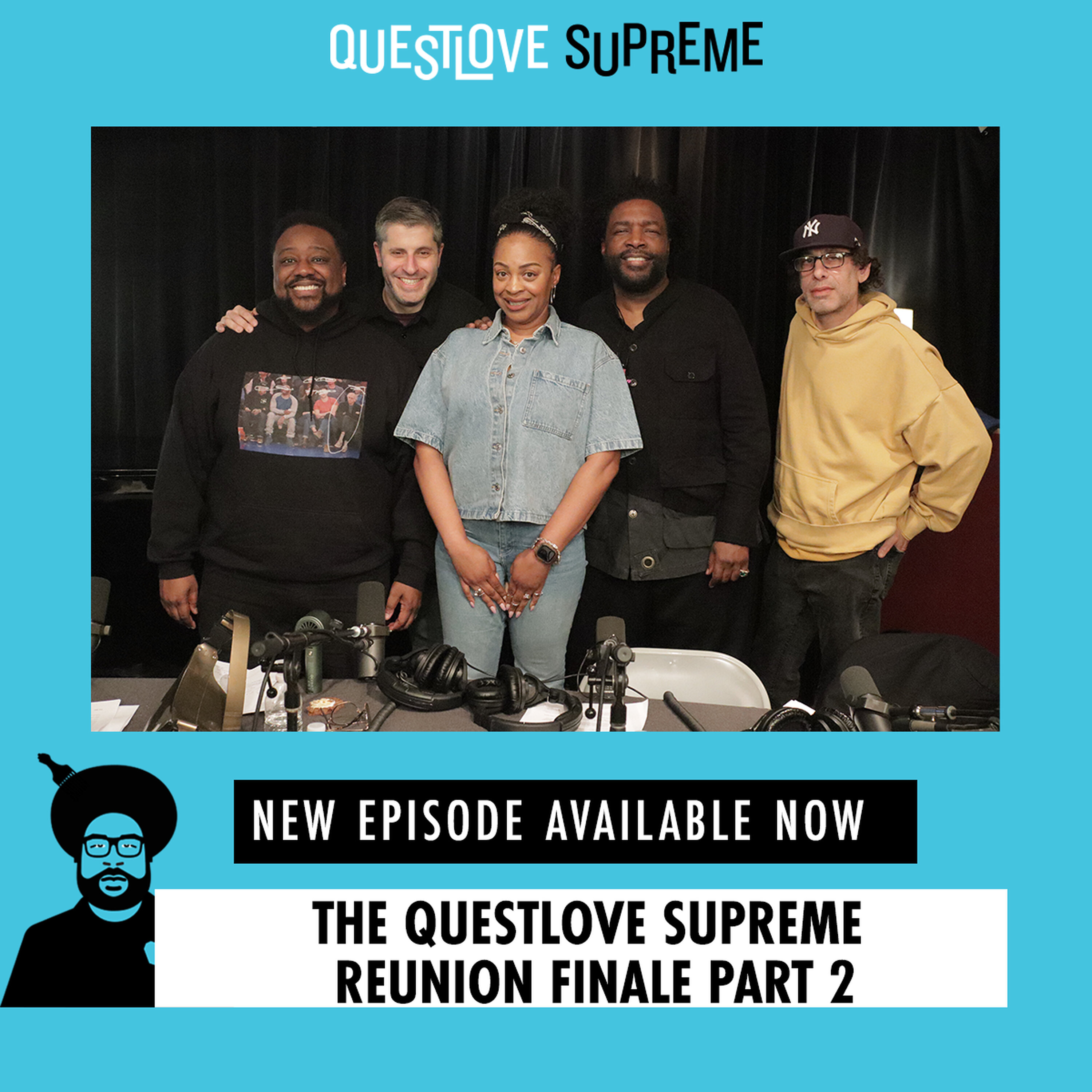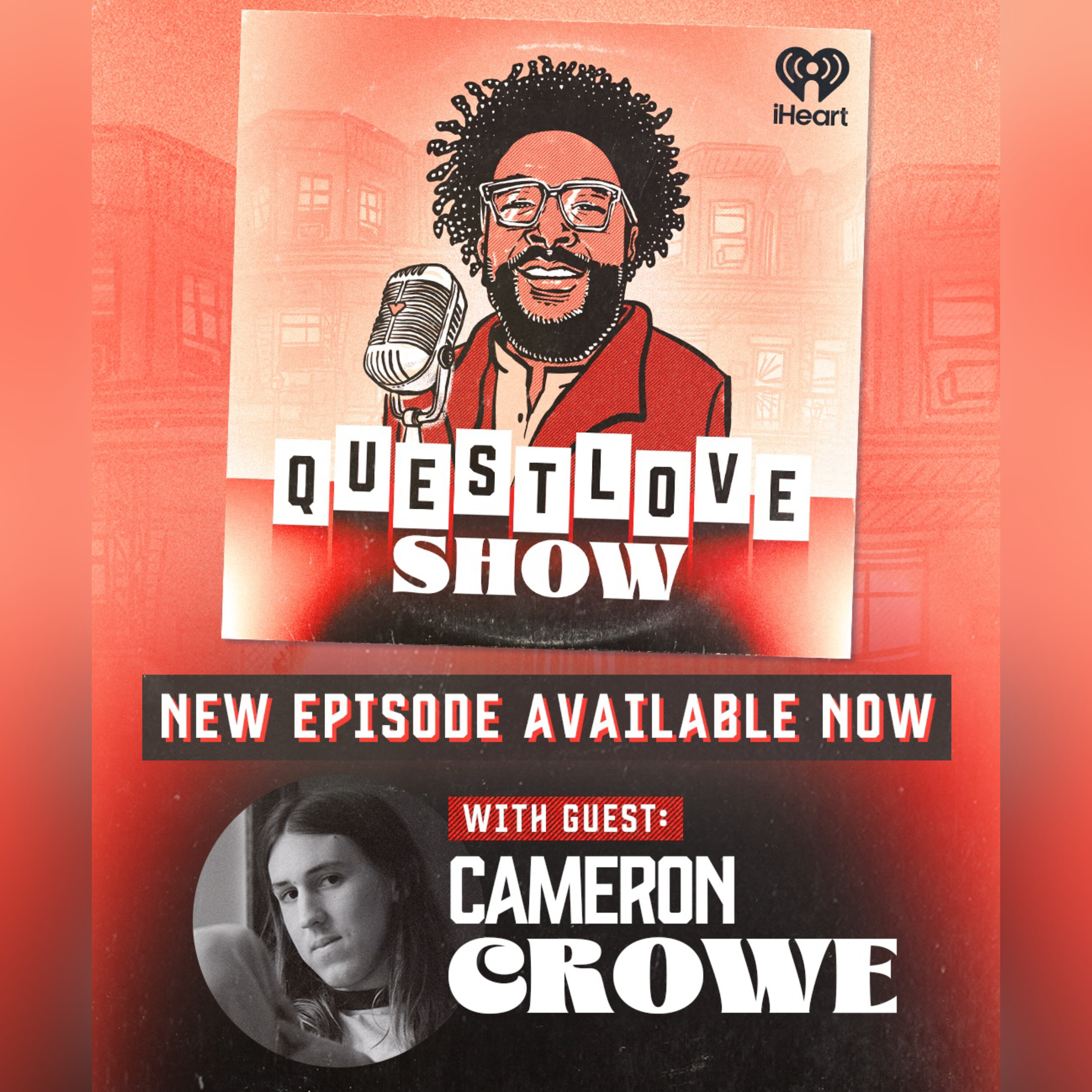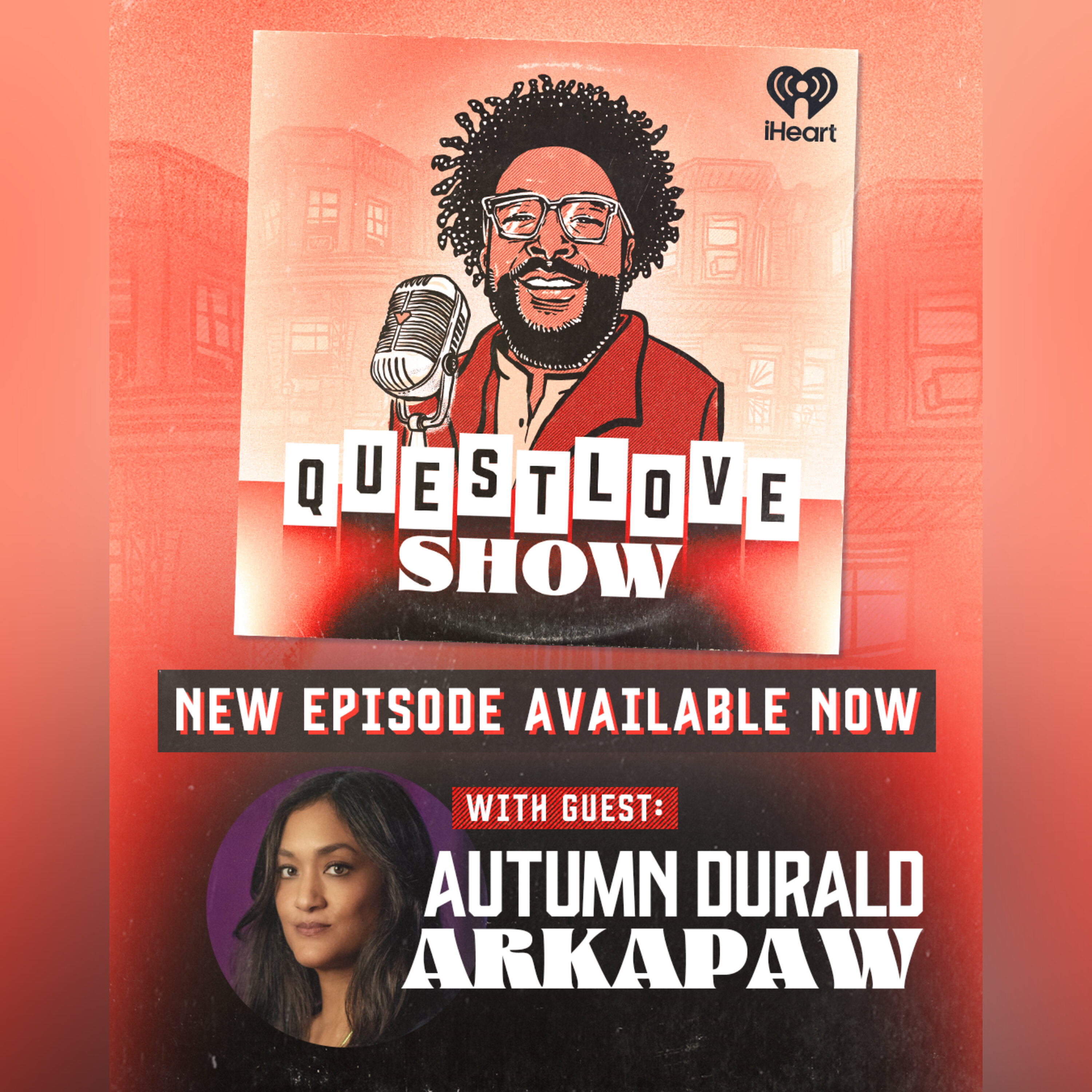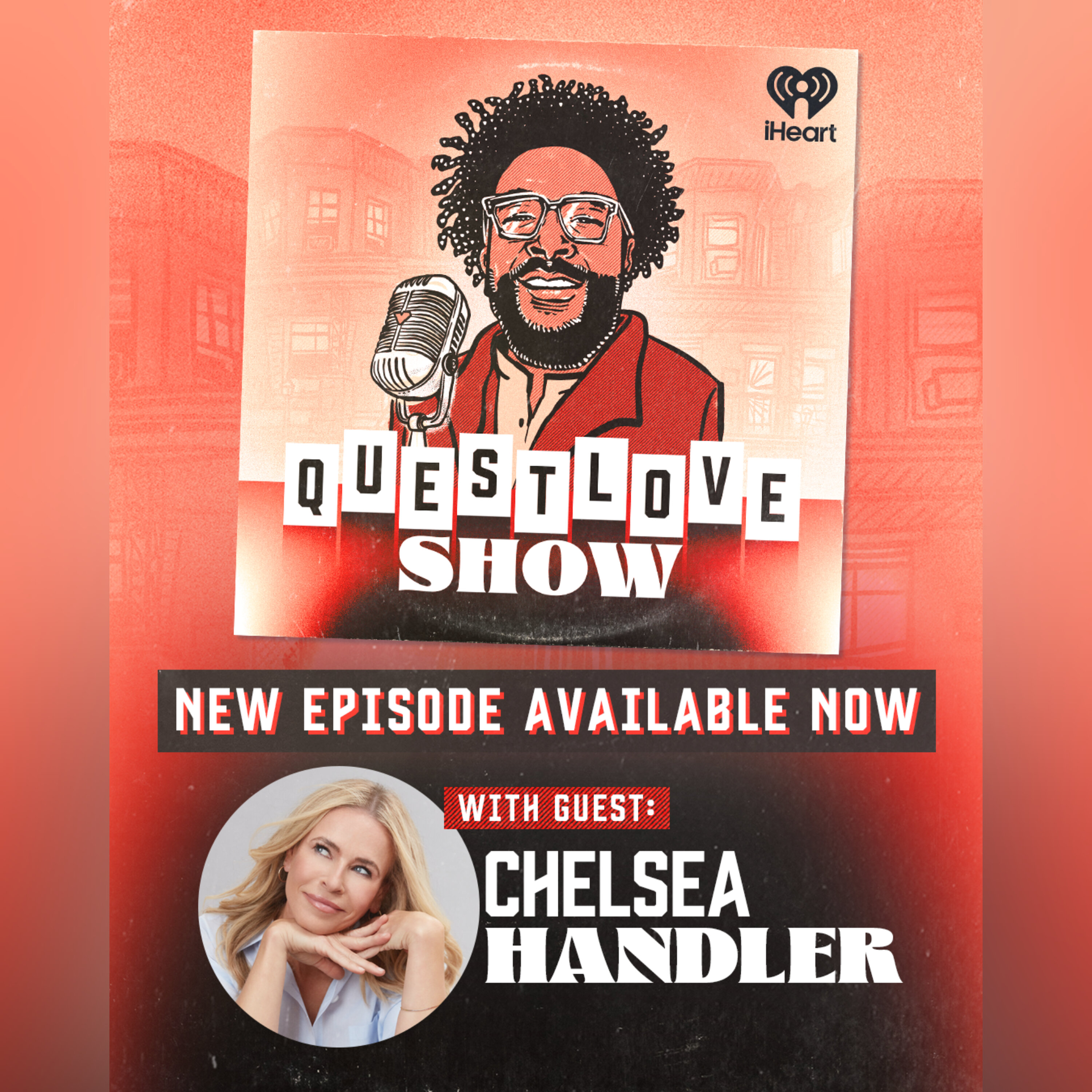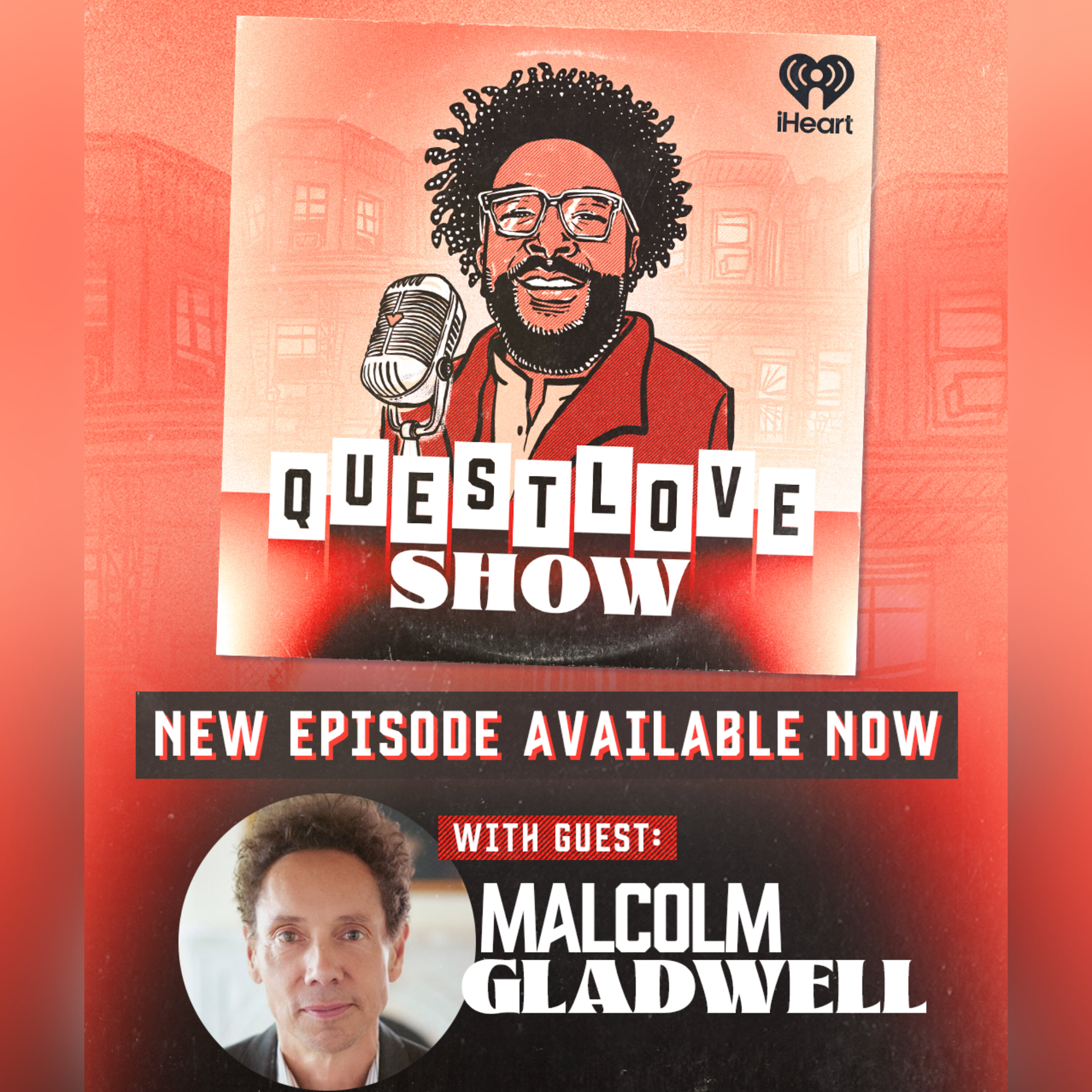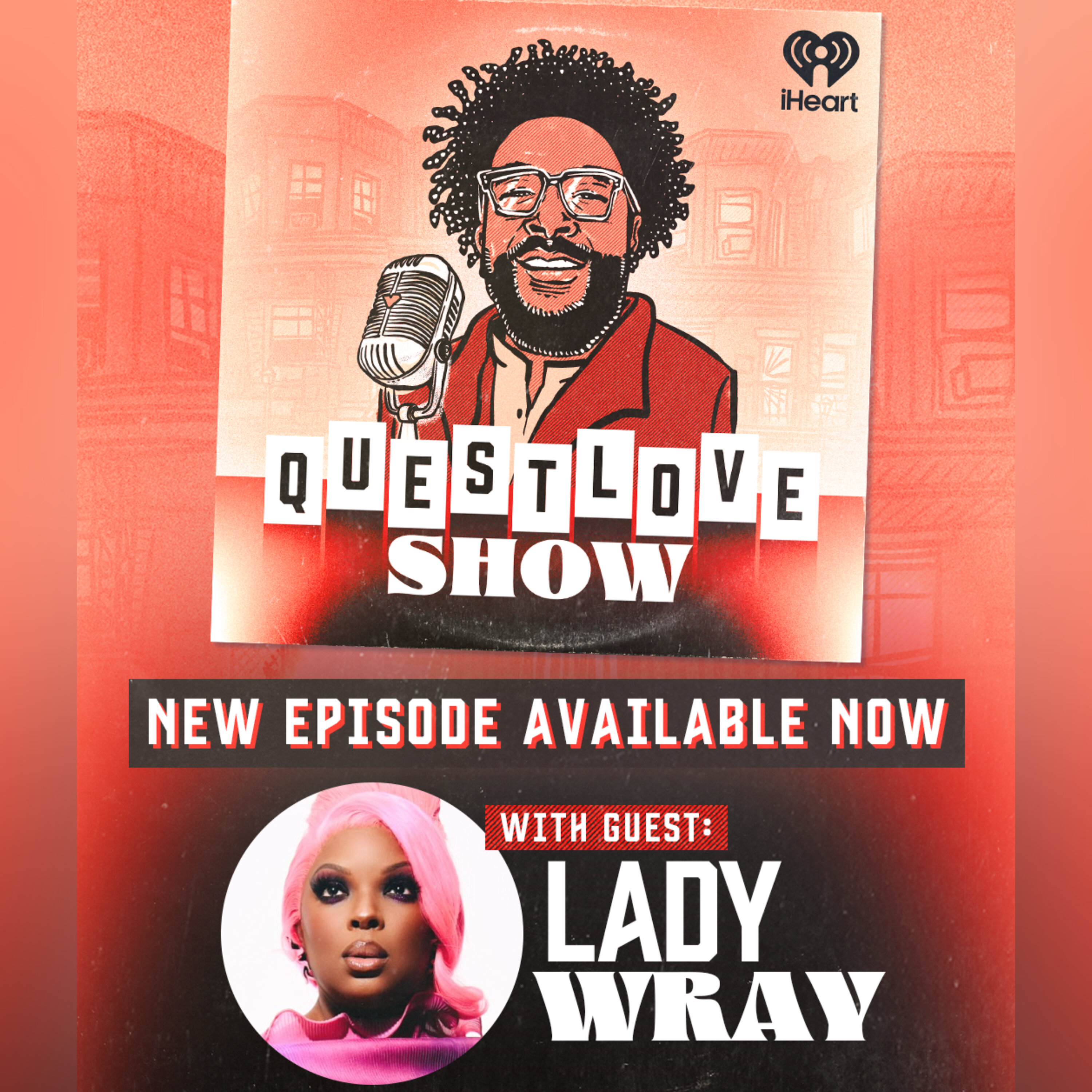Jonathan Shecter Part 1
Jonathan Shecter, aka Shecky Green, is the founding Editor-in-Chief of The Source magazine and its co-creator. In part 1 of this special interview, Jonathan recalls his 1980s Philadelphia childhood, Rap dreams, and working at radio staple Power 99. Shecky details The Source's early years and how the magazine began as support for a Harvard University radio show and expanded to "The Bible of Hip-Hop." This episode is packed with history, passion, and insight into the music that is now considered classic material.
00:00:00
Speaker 1: Quest Love Supreme is a production of iHeartRadio.
00:00:09
Speaker 2: Ladies and gentlemen, Welcome to another episode of Quest Love Supreme.
00:00:13
Speaker 3: Whatever I'm being built.
00:00:15
Speaker 4: Man, it's a good day. It's Philly day.
00:00:16
Speaker 3: I'm excited.
00:00:17
Speaker 2: Whenever you're quiet, I feel like you're working on something monstrous.
00:00:20
Speaker 3: What are you working on?
00:00:22
Speaker 4: I feel like you think that, because I have all this gear behind me, that I do a lot of cool shit. But I don't. None of it works. It's just for looks, just looks good.
00:00:28
Speaker 3: It's just for show.
00:00:30
Speaker 4: Yeah.
00:00:31
Speaker 2: No, there's no potential movie or or Broadway project coming up.
00:00:37
Speaker 3: Not the moment.
00:00:38
Speaker 4: I'm too busy watching boy band scam documentaries about lou what's his name?
00:00:43
Speaker 5: That guy?
00:00:43
Speaker 4: Anyway, That's what I've been doing today.
00:00:45
Speaker 3: There's a new documentary.
00:00:47
Speaker 4: Yeah, it's on Netflix. It's called Dirty Pop.
00:00:49
Speaker 3: That's pretty nice.
00:00:50
Speaker 4: I recommend it.
00:00:51
Speaker 3: I'm in it. Say no more, Steve, whatever, bro, Good morning. How's it going? It's am so I don't know what's going.
00:01:00
Speaker 4: Steve doesn't do morning.
00:01:01
Speaker 3: You know that? That sounds about right? All right?
00:01:03
Speaker 2: That sounds about right? What can I say? As a podcast host? As a writer of several books, Liner Note obsessive author of many a nineteen twenty paragraph Instagram post.
00:01:23
Speaker 3: That's understating it.
00:01:26
Speaker 2: Even as the world record holder for podcasts show intros lengthy intros, it's an understatement to say that I have an obsession with journalism, And of course the answer to that is duh.
00:01:39
Speaker 3: Of course.
00:01:39
Speaker 2: You know, I'm probably one of the few casts to sees the journalists of the person that brings the story as just as important as the artist making the story.
00:01:50
Speaker 3: In my childhood, they were.
00:01:51
Speaker 2: Equally influential music periodicals that took up space just like the records did. So I just didn't grow up with records, but you know, I grew up in a house with a goad jillion serious music periodicals. And then I think in my senior year of high school something clicked in kind of in the summer of eighty eight, I ran across a magazine with Llo cool J on the front cover, and not knowing what it was, sort of like a last minute purchase. I purchased a bunch of records and there's magazines at the at the register.
00:02:28
Speaker 3: On my way home.
00:02:29
Speaker 2: Reading that periodical, I got admit that the writing style was a little bit different than when I was used to because there was no Internet in eighty eight, so pretty much I had to rely on the words of anyone working at those magazines like Ride On or Black Beat or Word Up, you know, and there'd be an occasional blurb in mainstream media, but it was always just one degree of you know, either run DMC's cover story for Rolling Stone, like see not all Rapid is Violent, you know, that sort of thing. But for me, I always saw that the hip hop coverage in the late eighties in very early nineties almost the equivalent of letting a vegan judge a Texas barbecue contest. And the aforementioned periodical comes along and starts treating the music that I love and that we all love is high art, and I went from casual reader to obsessive in about twenty minutes. And so the friendships I've cultivated, and the name of that magazine, the business partners I've chosen because of that magazine, my art direction in life, the art I've created, even though those actual participants of that magazine become lifelong friends of mine. For me, the story of the Source magazine, which you know, I still refer to as hip Hop's bible.
00:03:57
Speaker 3: You know, our guest today was.
00:03:59
Speaker 2: Very, very instrumental in bringing that periodical, that religion, that culture, that way of life, and all those writers and all those artists and all those photographers in our world.
00:04:12
Speaker 3: And you know, it's rare to read any in depth interviews.
00:04:19
Speaker 2: I've yet to hear his side of the story of his stint there between eighty seven and eighty eight there until nineteen ninety four, not to mention his other ventures as well. And he's given us the honor to pick his brain for this episode. John Check, finally you come to Cout's Love Supreme.
00:04:46
Speaker 5: It's my pleasure. It's my pleasure. Thank you, Thank you, Mair. I really appreciate that.
00:04:50
Speaker 3: Sorry, I hope I embarrass.
00:04:52
Speaker 5: You, not at all. I'm a big fan of the podcast. I was getting my rap ready. I guess we're not going to do that today. He got a wrap ready. But I can let it. I can hold it till the future. It's all good.
00:05:04
Speaker 2: Got you, got you okay, I see you're NS ten's behind you. Where are you broadcasting from?
00:05:10
Speaker 5: I am in my office in Las Vegas, where we work with a lot of DJs, because one of my partners is a guy named Eddie Mack, who has a DJ agency here, So we have this is kind of our office headquarters here in Las Vegas. It's very close to the Las Vegas Strip. And yeah, there's a lot of DJs here, a lot of hip hop here, a lot of vinyl here, all that good stuff it is.
00:05:34
Speaker 3: Yeah, you're the first person to tell me.
00:05:36
Speaker 2: I think maybe in I went to what was the convention that used to come out there, the fashion convention, like Magic. Yeah, I went to the Magic Convention once and you told me like, yeah, I'm living in Vegas, and I'm like Vegas.
00:05:49
Speaker 3: Who lives in Vegas?
00:05:51
Speaker 2: You know, like where we only see Vegas as a five cent slot machine and nothing else.
00:05:57
Speaker 5: Yeah, most people come and go in like three days is the That's like kind of the typical experience, like seventy two hours or like get me the hell out of here. I ended up staying for like twenty five years.
00:06:08
Speaker 2: But you were the one that told me that not only Vegas is the future, but you you predicted even then. I think this was maybe ninety eight, ninety nine, definitely wasn't in two thousand and yet you told me, like yo, like I predict that Vegas is going to be the epicenter taken away from Los Angeles. Like I guarantee you in the first something. I don't know about all that, but you actually turned out to.
00:06:35
Speaker 3: Be right man.
00:06:36
Speaker 2: Like, practically my entire community of friends that I'm used to running into in Los Angeles have moved to Vegas and made Vegas their home.
00:06:45
Speaker 3: Like what was it about?
00:06:46
Speaker 2: Because you were like one of the earliest people saw the potential in it. Like I'll say, for a lot of us, Vegas just got cool. You know, even in music terms, when I tell the band like Las Vegas, it's always like a cheesy term, like you know, like New York Studies jazz version of shaving a haircut. Yeah, you know, that's sort of But like, what was it about Vegas that told you, especially twenty years before the fact, that you know this, this will be the new spot?
00:07:21
Speaker 5: You know, I found a lot of things about Vegas appealing. What we do best out here is music, food, the weather for those who can take the heat, and it's actually a pretty good, easy lifestyle if you can, you know, find your niche out here. But when it comes to music, I mean, obviously that was sort of my you know, one of my main reasons for being here. I saw a lot of opportunity. I saw I got here right as the sort of nightlife wave was beginning with a lot of DJs, and I kind of jumped right in and started like bringing a bunch of my friends out here, like djam Mark, Ronson Stretch, Armstrong, DJ Premier, people like that. But yeah, yeah, Vegas is you know, has come a long way in the time I've been here, and now I think it really is one of the best music cities in the world for sure. I mean, there's so much here whatever you're into, whatever genre you're into, if you want to see live acts, if you want to see DJs, if you want to just have a nice meal and listen to some good music, we got it all covered.
00:08:22
Speaker 2: The idea of what happens in Vegas stays in Vegas?
00:08:26
Speaker 3: Is that truly a myth?
00:08:29
Speaker 2: Or is the idea of that whole what happens in Vegas stays in Vegas thing?
00:08:34
Speaker 3: Is that real or not?
00:08:35
Speaker 5: Everyone finds their own Vegas. That's a phrase I like to say, meaning pretty much early on when you first visit, you have that all out wild experience where you you know someone they go to extreme in one direction or another, and then over time, whether you're a visitor or whether you're a resident here, you begin to assimilate into a newer kind of environment and in the sense that nothing really shocks you anymore, nothing really surprises you, and you can kind of just take it all in stride. And I think I hit that a while back, you know, like and for people who are frequent visitors, the same thing happens. You stop having those extreme moments and you kind of just settle into like a good experience and you kind of find your niche. You know, you find the places you like to go, or you're here for particular music events or something like that. So yeah, I mean there's some truth to that, but I think that usually refers to people who are more beginners in Las Vegas and on you once you become more experience, you take it all in stride.
00:09:39
Speaker 2: Basically for your taste, Like what's your restaurant of choice.
00:09:43
Speaker 5: Well, I'm pescatarian leaning vegan vegetarian, so you know, I look for those kind of spots. There's so much you know, what I will say is that if I'm going to give one restaurant recommendation, I'm just going to recommend a whole block which is Spring Mountain Road, which which is very close to the Strip. It's Vegas is Asia Town, and there's literally hundreds of amazing restaurants there, and most tourists never see it because it's not in a casino.
00:10:10
Speaker 3: You know.
00:10:11
Speaker 5: The typical experience is most people will come to Vegas and they'll check into one of the casinos. They'll literally never leave that one building because every casino has like fifteen restaurants and three nightclubs and the pool and the gym and everything else. So but what I recommend to people is you go, like literally five minutes away from the wind is a street called Spring Mountain Road, and on that street is literally hundreds of amazing restaurants. And among those hundreds, there's about a couple dots in that are world class Japanese, Thie, Vietnamese, Korean, et cetera. So that's my recommendation.
00:10:48
Speaker 2: So you're saying that, you know, for us to stay on the Strip is the equivalent of people visiting New York and just staying in Times Square and really not.
00:10:57
Speaker 5: Yeah, it's like kind of like staying in Times Square, but to some extent, I mean listen, I'm not going to say that I work with a lot of casinos. I work with a lot of restaurants. I go to a lot of restaurants. So you know, I'm not going to say that there's there's nothing to be found there, because there's a ton of amazing places. But you know, over time, most locals tend to avoid the Strip unless absolutely necessary. That's kind of the process that every local goes through, is eventually weaning yourself away from the Strip and towards like the regular Las Vegas city, which is, you know, pretty significant city. But yeah, I mean, obviously I get why most people come here and they just kind of check into one of these places and stay there because it's that's what you're you know, that's what they expect you to do. And it's nothing wrong with that, right, But as time goes on, you start to see sort of a wider a wider frame.
00:11:44
Speaker 3: All right, next time, I'm you're my tour guide.
00:11:47
Speaker 5: So let me take you off the strip. I'd be happy to do it, man, happy to do it.
00:11:51
Speaker 2: Okay, awesome, all right, So I want to get into your story because you know, I've heard practically anyone that is cross paths of that institution known as The Source magazine. I've spoken to in great detail, but I've never ever really picked your brain just about the whole modus operandi of the place and whatnot.
00:12:16
Speaker 5: So let it be known that we've known each other for quite a long time, but we've actually yeah, we've never really had like a deep talk about it, which is great. Exactly do it here, this is a time to do it. Yeah.
00:12:25
Speaker 2: Well, for starters, you and I have something in common. We're both from the city of Philadelphia, so oh yeah, absolutely talk to me about your beginnings before you start the magazine, Like what was your life basically before in the first half of the eighties.
00:12:40
Speaker 5: Okay, So I grew up in Center City Philadelphia, which is you know, literally like where the downtown part of Philia is for those who don't know. And I went to school a place called Friends Select, which is a Quaker school on seventeenth in the Parkway. I was there in my whole childhood, from kindergarten through twelfth grade. So every single day in my life, yes, I would, I would. I would walk you know, through the city, past Chestnut Market JFK and then to the school, you know, being a young kid who was drawn to music at a very young age. You know, I used to listen to the radio all the stations, from the pop stations, to the rock stations, to the to the urban slash black music stations, and I would walk through the city and you just, you know, you can't help, especially in the eighties in Philly, you can't help but soak up culture, you know, just walking around. I'm talking about fashion, music, you know, just just sort of energy. I mean, we talk about music. I mean there I was in the city that was creating all this music. I didn't even realize what was happening around me. In other words, like some of my earliest memories about music are like hearing like wake Up Everybody in like a pizza place in like nineteen seventies, Evan, I guess, And you know, I didn't realize it was made in Philly. I had no idea, but I just knew that it was something. You know, when you hear a song like that with that much you know, emotional depth, it kind of rewires your brain a little bit. I think, you know, not just that song, all the Philly soul that was that was around us. So basically I was drawn to music at a young age, but it wasn't until I was about in eleventh grade at friend select that I decided to do something about it. I had been spending a lot of time prior to that listening to records. I was really into disco, you know, Disco was kind of my first love of music. First record I ever bought was a chic Yaoza Yasa Yasa dance Dance dance fun fact.
00:14:52
Speaker 2: Yes, according to Nile Rogers, Yes, the voice of ya ya Yaza is Luther Vandros Wow.
00:15:02
Speaker 5: I did not know that. That's awesome fun fact. Yes, I love it. I remember I bought the forty five on Atlantic Records. It was like a red label and I would listen to it constantly. I will confess that I loved all disco, including the Beg's, the Village People, everything else. You know, we all did, We all did, Yeah, I mean, it was just great music and the thing is for me though, I also loved rock, so like you know, back when they used to be disco versus rock, there was a huge conflict in like the late seventies where you had to pick a side and I could never pick a side. It was weird. Like there was like half the kids were like, you know, Pink, Floyd, led Zeppelin, Queen. You know, some of those groups ended up doing disco records too. But you know, but basically there was this big conflict. I could never pick aside. I always liked both, and I just like wrote it out that way. But then when I got to eleventh grade, I was so into hip hop. At that point, it's like nineteen eighty four and you know, Run, DMC, the Fat Boys, Houdini, LLL cool J, Curtis Blow. You know. I was loved all those groups, and I decided that I wanted to work in radio, so I forced my way into the building at Power ninety nine FM WUSL.
00:16:20
Speaker 3: He used to work for Dave what's his name? At Power ninety.
00:16:22
Speaker 5: Nine, there was a yeah, that was the I think he was the PD yeah when when I was. But but when I walked in, it was a there was a newly hired MD and his name was Tony Gray, and he called his on air name, and this is kind of silly now, his on air name was Mike Jackson. Mike Jackson, Remember Mike Jackson, the man who invented the Power nine At nine that's correct. That is correct, Mike Jackson. So Mike Jackson, he had a hold like that's an alias. Yeah, Like can you imagine picking that as your alias? I mean it kind of doesn't make sense, but that's what he did.
00:16:59
Speaker 3: Smart, Okay.
00:17:00
Speaker 5: So I walked in. It was kind of like one of those remember in Wayne's World, when what's the guy's name, like handsome George or something like that, a gorgeous George and they walk in and there it's he has this huge voice and they walk in. There's like a very kind of little guy and he doesn't like it looks kind of nerdy. It was very similar to that. It was very similar. He had this looked like yo, yeah, he had this like very powerful like voice. He was doing the Evening Drive, so he was on from I think like six to ten.
00:17:28
Speaker 3: Mike on the Power nine at nine, Oh my.
00:17:30
Speaker 5: God, exactly exactly.
00:17:32
Speaker 3: So wow.
00:17:34
Speaker 5: Yeah, And so he was like, you know, he was kind of like a hero of mine. But he had just started, like I think a few months before I got there, and it just so happened when I walked in and I wanted to be an intern and he was. He saw me, and he was kind of like a slim kind of you know, smaller dude. He had hair almost like a a perm, but it was like a gumby perm if you can imagine those two things going together. And anyway, he was very friendly to me at a very I was. I was totally nervous and and and like he took me in and he started talking to me, and you know, basically we hit it off like that first night and I started working for him, like literally immediately. And back then it was like the radio station was, uh you know they use carts which looked like eight track tapes. Yes, yes, and you would like put the So the first job was there was like a pile of carts like on the floor with like two hundred of them, and I had to like sort through them and organize them and stuff like that.
00:18:32
Speaker 2: Can you explain something to me, because okay, so I am from the era. I mean I've seen every era of radio, but first doing the radio I do remember those a track carts like one, What was the purpose of it to like who would do those edits?
00:18:48
Speaker 3: Like?
00:18:48
Speaker 2: Was the purpose to store as much music as you can on that particular cart?
00:18:53
Speaker 5: Or like the purpose there was a combination when I was there. They were still playing records for the most part, but some songs when they made into heavy rotation would be on a cart. I think the main purpose of it. Also, all ads and all drops, all announcements, all bumpers, all that kind of stuff was on the cart. But I believe the reason they used them was because when it finished, it would end up right on cue, so it automatically, like you hit play, it would play whatever was on there, and then it would stop and it would be immediately cued up again. So I think it was just the convenience of having you pop it in and you know it's going to be right on cue, I believe.
00:19:31
Speaker 3: So you don't need to look for the spot where right.
00:19:35
Speaker 5: Yeah, so they're like, we have to play a song, so you just hit play and you know it's like it's immediately it's always on cue. So I'm pretty sure that was the reason that they used them, or that was the purpose of the invention. But that was also a time and then we can talk about this maybe as we get into it, but that was when DJs were doing edits on reel to reel, so I actually witnessed some of the most amazing artistry you've ever imagined with a razor blade and like a real to real tape.
00:20:03
Speaker 3: With those days, You're gonna ask you something.
00:20:05
Speaker 2: Yes, yes, yes, Do you know who Yaman super mixes?
00:20:11
Speaker 5: Oh man, I'm so glad you said that name. He was the king of the tape edit. He was our Latin rascals, Latin rascals, he was Latin rascals.
00:20:21
Speaker 3: Oh my god.
00:20:23
Speaker 5: And I witnessed him making edits. I saw him in person making edits and I saw exactly and he's totally forgotten. Nobody remembers he was and where is he? As I recall, he was like an Arabic gentleman, kind of coming up in the same exact style as Latin rascals in New York City, and he would make these phenomenal I mean like I would walk into that room and there would be like all the segments of tape would be hanging on the wall because he would be he would remember like, oh, yeah, this is the chorus over here, this is the bridge, this is the whatever, you know, and you know, he would go in with that blade and there would be like that little piece of metal that you would put the tape in and you'd slice, and then you'd like put like a white piece of like masking tape like together, right, uh and uh, And the tape would go all the way through the tape machine and then all the way back around the pole and back again so that you could get the right length for the tape, you know. So yeah, and then as you watch it go by, you'd see all the little white strips, like all the edits, you know, and it was amazing. Yeah, that was like a crazy artistry that I totally forgotten art form.
00:21:31
Speaker 2: Yeah, I'm in supermix. Was was like pro tools before pro tools. Like he would do a mix, then I'd get on, like we would have like three h JBC ghetto blasters at the crib, and I would try to emulate whatever I heard him doing because that's how I thought people made remixes and shit.
00:21:52
Speaker 5: So I mean with the set you would use, you'd make a pause tape to try to make it like like an edit. Yes, we all did.
00:21:59
Speaker 3: That, do anything to hear any of that stuff?
00:22:02
Speaker 5: Again, Man, he was absolutely brilliant. There was also a Philly DJ named Jeff Mills. Yeah, just Sayef Mill.
00:22:10
Speaker 6: Jeff Mills moves moves, yes, exactly, So that's the world I walked into when I was just like, you know, a high school.
00:22:24
Speaker 5: Kid, and it was sort of the aftermath of when Howard ninety nine had become a black station already, but they still had a lot of remnants of sort of their chr yeah, like kind of like dance music, you know, all those people exactly exactly, Yes, Jeff Jeff Wyatt is another name that was back then. But anyway, so Tony Gray aka Mike Jackson and we hit it off and I started working for him, and I was also very close friends with Jojo Davis, who was the nighttime night Flight ninety nine. It was the overnight kind of the Philly version of the Quiet Well there was a quiet storm. The way you would work is Mike Jackson would play from six to ten, then there was a quiet storm and then night Flight ninety nine will come on, and that was like the overnight shift.
00:23:11
Speaker 4: Yeah.
00:23:12
Speaker 5: And Jojo was actually a relative of Miles Davis. I think it was his nephew. I never knew that he was the one that, you know, it was like when I was with Tony Gray, he was he was a very serious dude. He was a hard working, kind of not partying type guy. You know, he would show up for work, he carried about the business. He was straight laced. Then I would leave for the Quiet Storm because that was actually no DJ. It was just like they were just playing like records and that would be you'd hear like you know, like Shirley Murdoch and stuff like that, and then.
00:23:47
Speaker 3: Well there's like pre taped or like done live.
00:23:51
Speaker 5: I think there was someone in the studio playing records, but they had a list. I think they had like a playlist they had to follow, and they had the great sound effects with like the rainstorm if you remember it, and it was it would put you in the mood. But then I would come back. So I would leave with Tony Gray and he would leave and I would leave and go to a friend's house. And then midnight I would come back to the station and it was Jojo Davis and that was when the party was on. So we would like hang out and that was where we could get loose. And you know, that was where I met all its people and talked about music and the whole nine yards.
00:24:25
Speaker 2: Wow man, So how influential as the intern, like even where I work now at thirty or Rock, It's the interns here that keep me hip to what's next, you know what I mean.
00:24:39
Speaker 3: Like, I'm in my.
00:24:39
Speaker 2: Fifties, but my interns here in the twenties. They're the first ones to yo question you up on this, yup on this, yump on this. So there's always the intern that knows what tomorrow is. Were you that voice for them.
00:24:53
Speaker 5: To some extent? I think I was because I was very into hip hop. So at that moment in time, hip hop not really become the main programming. It was still the programming was great. I mean, listen, it was the eighties. It was the best era of music I think of all time. But what was great about the programming was that it was very diverse and very funky and very you know, and I loved it. But there wasn't enough hip hop for my taste. So I was in there pushing. I was in there pushing low key on the hip hop side.
00:25:26
Speaker 3: This is what happened.
00:25:27
Speaker 2: So the Spring of eighty five, my mother's side of the family is from California. Spring of eighty five, we do our pilgrimage to Los Angeles and we'll stay out there for like three to four weeks, so say like a month or so, and.
00:25:43
Speaker 3: You know, it's very different.
00:25:46
Speaker 2: Eighty five Los Angeles was night and Day from eighty five Philadelphia and Greg Mack and Katie A.
00:25:54
Speaker 3: Why was you know?
00:25:56
Speaker 2: AM was the first twenty four hour hip hop radio stage. They're playing a lot of their Malaco records, like a lot of the West Coast stuff like Rodney what's his name?
00:26:06
Speaker 3: California and those.
00:26:07
Speaker 2: Out of Party like basically like post Electro that sort of stuff, and.
00:26:13
Speaker 5: La Dream Team stuff like yeah, all that.
00:26:15
Speaker 3: Stuff, Doctor Dre shit.
00:26:17
Speaker 2: And so that's the summer of Toddy T's batter Ram, right, Yeah, And they're playing it constantly, constantly, playing it constant, constantly. So in August when we get back to Philadelphia and I get on the block where all my friends are and we're sort of just trade and comparing notes. You know, something happened in the summer of eighty five and which suddenly hip hop was allowed in the evening And I don't know what a lot of do you know, how how stupid you one has to feel when everyone's like, what do you mean you don't know Lotty Dotty in the show, and I'm like, no, yo, it's about batter Ram.
00:27:03
Speaker 3: Now.
00:27:04
Speaker 2: The way that La people were acting to Totty T's batter ram I put it on for them and they looked at me like like this was the first time I witnessed like a cultural region.
00:27:14
Speaker 5: Regional difference is regional difference.
00:27:17
Speaker 2: And I played my song first and they weren't impressed at all, and then they played me Lotty Dotty and you know they're taping off the radio. So this is how I know what a Power nine at nine is. You know, Mike Jackson is number one song is Lottie Dotty. But you remember when the show and Lottie Dotty were like number one for like alls nine months.
00:27:38
Speaker 3: So how does a record like that crack.
00:27:42
Speaker 2: The mainstream in a way that pre Spring of eighty five, I'm only used to, you know, Lady b Show on Sunday for three hours and nothing else. Maybe Drexel will have like an hour of it. But talk to me about like the inside of the machine, like how are they penetrate that unpenetrable system.
00:28:02
Speaker 5: So you know you're right on the time, because that was literally when I was getting involved there eighty five, and I as time went on, I actually took over that Power nine and nine. I was the person that was compiling that that was supposed to be based on requests, so there was kind of like a there was a there's a balance there, so that I ask.
00:28:22
Speaker 3: You the discobobblated, boobulated question.
00:28:24
Speaker 5: Next we'll talk about mc breeze. No problem, that's my buddy, okay. But yeah, so I would make I would make a charge, and you know, in the beginning, they didn't really trust me to do it, but after I'd been there for you know, a number of months, they saw that I kind of knew what I was doing, so they would let me literally make the whole top nine. And it was always it was kind of like a little bit of science, a little bit of creativity kind of mixed together, you know, like it would be. The science part is they did have requests, and they did have a system for logging these requests, so you did see what was like actually the most requested. But as you know, those kind of move, it's kind of a backwards looking stat you know, like requests kind of can be almost like what's already a hit usually, you know what I mean. And so I had to also kind of bring in a little bit of the newness. And I'm not saying it was all me. There was a lot of forces in play. The biggest force is just the you know, it was a combination of run DMC breaking down those big barriers. You know, I think they were the biggest reason why hip hop broke through. But there was a lot of other records, you know, force M d's, I mean, like you know, Dougie Fresh, and so it was like, yeah, it was just kind of you know, it just slowly happened, and so they would at some point along the line. But you're dead on correct in that the regular station rotation would not include these records. But during the Power nine at nine, we were allowed to put in what the streets really wanted to hear. And then of course on Sundays with Lady B that was an all out you know, that was like the center of hip hop and Philly basically, you know, that was most important show. But the big songs would break through and they would end up hanging around on the chart, on that Power nine chart for a long time. And you know, one of the biggest gotta be deat for me. What I think is, you could argue one of the greatest twelve and singles of all time is the show in Loddie Dottie. I mean that's like, you know, you can't beat that. You know, it became a religion, and it did. It was huge in Philly, huge as big as can be. But you know what else was huge in Philly, And I'm curious to hear if you see, if you remember shout by Tears for Fears was massive in like like, oh the Craig g I was that came up the other day. I was actually there the day that one of the good men showed up from Pop Art Records and dropped off that Craigg shout record. I remember, actually I was in the studios. Yeah it was.
00:30:49
Speaker 3: You got pop art stories.
00:30:50
Speaker 5: I got pop Art stories stories, yo.
00:30:54
Speaker 3: Yeah, I forget the source.
00:30:55
Speaker 2: We can just talk about the first two years at ninety nine.
00:31:00
Speaker 5: Yeah, I'm sorry, I mean interrupt, but I was just going to say. The point I do want to make though about those days was that and this is something that has followed me in my whole life. When the station brass was deciding like what to program, there was this very open attitude. Anything funky was okay. So that was a time when you could turn on a black radio station. Here Tears for Fears. You could hear the Tom Tom Club and Talking Heads. You could hear Holland Oates and many other examples of stuff like that, which that has always been my kind of like DNA guiding philosophy is like, if it's funky, it doesn't matter who's making it. And somewhere along the lines it got more segregated, I think, like music, you know, but back then the eighties, you know, those records were as big as like you know, Alexander O'Neill or Sorel or something like that. You know, they were just side by side.
00:31:56
Speaker 2: Fun fact, the first time I heard is weird trivia moment, the first time I heard shout on Power ninety nine. I lived on Osage Avenue. Wow, I lived on fifty second in Osage Avenue, Okay, And every Philadelphia my age knows what happens or May thirteenth, nineteen eighty five on Osage Avenue of course the bombings. So the thing was because this drama has been brewing all week, you know. Jack Jones was like, it's almost like being live at Vietnam, like you'd be behind the cars.
00:32:35
Speaker 3: Like reporting, and it seemed contained.
00:32:39
Speaker 2: I mean, back then it was just about like, okay, there's gun exchange between the move organization and the police, so we may.
00:32:47
Speaker 3: Drop the bomb on top of the house. You know.
00:32:51
Speaker 2: For like three hours, it seemed like it was contained, but then when it spread to another block, then we started getting concerned like, okay, well we live here and this scene seems to be spreading, Like how late will it be until it comes to our block? And there was a moment where our block captain around like eleven PM kind of just gave the warning like, look, you know, I'm in contact with the other block captains and whatnot. If they don't contain that fire, maybe at three four in the morning, we might have to vacate our cribs. So it was almost like a pack a pack, what's important that sort of thing.
00:33:33
Speaker 3: And I remember having the.
00:33:35
Speaker 2: Radio on while we were packing, like in case we had to go to my grandmam's house or whatever, and I.
00:33:40
Speaker 3: Looked at the radio.
00:33:41
Speaker 2: I was like, wait, what the hell's Tears Fears doing on Power ninety nine, Like it.
00:33:45
Speaker 5: Was just you remember hearing that song during the move crisis You're saying, right, yeah, yeah, I remember. Of course, that was a major moment for Philly. We were all like, you know, it was on the it was live, it was covered live, you know there's like live shots. Yeah, that was crazy. That was a moment.
00:34:01
Speaker 2: So what was your Philly nightlife experience? Like, like, like, were you ever an attendee of about to call it the spaghetti Warehouse?
00:34:10
Speaker 3: After Midnight?
00:34:12
Speaker 5: The mid they used to call it the mid h. Yeah, the mid was like the abbreviation. I was too young to get into after Midnight, but I would. I'm now I'm too old for almost everything, but back then I was too young to get into after Midnight. But I remember hanging outside and I met all the people involved, and there was actually a white guy that was like I think running after Midnight. I can't remember his name. And if you remember, there was this the most incredible ll cool J freestyle came out of After Midnight and it's like he's rhyming over Tee La Rocket's yours, It's yours yeah, and it's it's like magic. That shit was so powerful and so amazing.
00:34:54
Speaker 2: Last year when we tour with LLL the amount of begging we had to do to get him, he only did it once, like that was going to be his encore before we did Rock the bells together. Wow, like he has zero clue or how much of a spiritual experience that was for most of the Tri state area and the amount of tape trading and that sort of thing.
00:35:17
Speaker 5: Oh, forget it, listen. And I figured this is going to come up later. But I saw the Force Tour when you guys came to Vegas, and oh, man, you guys. I mean I've seen so I've seen literally probably you know, hundreds of rap shows in my life, but I'm serious, that was the greatest rap concert I've ever seen in my life. And that includes the Fresh Fest one, Fresh Fest two, all the classic Public Enemy concerts, all that. The reason is it's you deserve it because it was so well choreographed, so well run. There was no downtime. It was like constant action on the stage and with those three Frilly guys in the middle, it was flawless. And I think like you really raised the bar for what around conser it can be.
00:36:01
Speaker 2: You know what, yo, dude, it's hitting me right now as we speak. One of the key pivotal moments in Roots history. You came to the Tracadero and witnessed your first Roots performance, and you gave me real constructive criticism. I took it to heart and applied it. He's like, hey, it was dope, but listen, you got to figure out a way to engage your audience and grab them in.
00:36:32
Speaker 3: And you taught me about formatting.
00:36:35
Speaker 2: You said, you guys are going to heavy on the on the dazz, drum solo and all that stuff. But you know, I think a dope thing you all should consider is occasionally in your song like pepper it like condiments with hip hop references that people would know. We did that while we were a busking group, but then we decided, you know, when you're busting and you're playing for like three.
00:37:01
Speaker 3: To four hours on the corner, you're gonna run out of shit.
00:37:04
Speaker 2: So you know, it was easy to tell your upright bass player, all right, start with discoursions, all right, let's go to bugging out. Okay, let's go to wrapping promoter, all right, let's go to.
00:37:13
Speaker 3: It like you. We would literally go through the.
00:37:15
Speaker 2: Entire tribe discography because there's this drum and upright bass. But once we got like, okay, we're not playing on the streets no more.
00:37:24
Speaker 3: Let's do all original material.
00:37:26
Speaker 2: And you told me it's like yo, man, like y'all got to bring back and you said hip hop one on one And I had a meeting the next day with the dudes and they were like, all right, well let's see what happened. And that single handedly, like I totally forgot that you kind of were the spark that started that moment of me figuring out the show as in format terms and how to how.
00:37:52
Speaker 4: To pace things and all that stuff. I totally forgot that. I mere, how Coen do you call audibles during the during the show? Do you do that ever? Like in the middle of a show, like you feel the crowd, you feel a thing like if all of a sudden LL is like, let's do this. Do you ever audible? I've never seen you do that, but I know you talk all the time to the band.
00:38:07
Speaker 3: You know.
00:38:07
Speaker 2: It's so weird, man, because I come from the Prince school of presentation. You know, George Clinton used to always joke that prints would rehearse spontaneity like and do I ever allow for a moment that requires that. This past weekend, in which of this taping, I will call it the Microsoft Gate domino effect. There was a Microsoft update effect that effected any business that uses Microsoft, including airports and hotels and whatnot.
00:38:42
Speaker 3: So as a result, this.
00:38:45
Speaker 2: Past weekend we were doing fragmentute root shows like you know, somehow we went from a trio to earth Wind and Fire like there's eleven of us now and.
00:38:56
Speaker 3: So we were kind of reduced.
00:38:58
Speaker 2: We were reduced to a seven man group, which you know, because I am a somewhat of a former creature of habit. If there's a monkey Wrinch store in my way, yes, I'm able to adjust. Do I like that? I hate it for me. I want the well oiled, well rehearsed version of perfection for everyone to see it. But I will say that in the last month or so, I'm purposely calling shit. While Rica's mid third verse, I'm like, yo, do you remember without a doubt from things fall apart?
00:39:39
Speaker 3: And he'll be ron and dad like.
00:39:40
Speaker 2: Treeka has the ability to communicate with me as he's still rhyme and shake his said yeah I know. Or he'll say like two verses like I know that much, and then you know, show download a Saturday night real quick by school. We d just take the drum baker from the beginning, like literally in the last month and a half or so I've been sort of in that place to see if I can leave my comfort zone because right now we have way too much material, and especially with these records that we have coming out in twenty twenty five, like I'm gonna have to literally throw this entire perfect show away and start all over again. So I'm this time, I'm looking forward to it. Previously I had dread like, man, we got to build it from the beginning. But you know, I feel as though that's that's my life lesson, like pivoting and that sort of thing.
00:40:32
Speaker 5: So that was why the Force Tour was so great. Was Tarique was the greatest hype man in the history of HEPP. I mean, yeah, there's nobody ever who can you know, he's a center MC, he's the star. But then when he's time for him to be the hype man, he's the greatest hype man of all time. And you know, you guys got so much out of like like a rock him, who's you know, not necessarily known for being a great live performer, but you guys certainly worked so you got the max you could get out of a lot of these people. And also the stro Elliot aspect was another thing because you had, you know, real eight oh eight and all that stuff on there, and like I mean, you figured it out. You figured out the formula. Whereas you know and other wrap shows of the past, it used to be long delays and you know, miscommunication, no choreography, you know, et cetera, et cetera.
00:41:21
Speaker 3: You know, So when did you leave Power ninety nine?
00:41:28
Speaker 5: When I graduated from high school in nineteen eighty six, that was the end of my Power ninety nine time.
00:41:35
Speaker 3: What year was it?
00:41:35
Speaker 5: When the end the story you just told about when we when I saw your show and made some comments, what year was that was that? Like nineteen ninety that was ninety three, ninety three?
00:41:46
Speaker 2: Okay, us at Master Ace were at the layup was kind of like of you from the Undergrounds, you know whatever, those cartoons whoever like seas and Tramp and all those.
00:41:58
Speaker 5: Jazz stations and see yeah yeah, good right, oh yeah.
00:42:01
Speaker 2: Philly guys, like they had one of the very first examples of what I call like your hip hop shop. Now every city has a hip hop shop where there's the T shirt in the gear, but you know, if you wanted to get fresh jive shirts or your skateboard gear, or you know what's supreme is now that's you know. So Keith McPhee are our longtime production manager, owned one of those hip hop shops and he used to work at Sound the Market and he organized the show and I think, yeah, it was us master Ace. I think Onyx made their debut in Philly at night, but you guys, you guys came and I was like excited, like yo, the guys from The Sorcerer or here, Oh my god, Like I think it's the first time we had like our first rehearsal.
00:42:50
Speaker 3: We never rehearsed. We would just like go off the top and whatever.
00:42:53
Speaker 2: And I think the nervousness of preparing something sort of took us off our game where we were little too serious about it and not And you told us like y'all didn't do the things that I heard about you guys doing. And I was like, yeah, you're right, Like I was over preparing and I learned to bring back hip hop one on.
00:43:14
Speaker 5: One so nice.
00:43:16
Speaker 3: Now, do you know?
00:43:17
Speaker 5: Before we leave Philly, I just want to just mention one more part of Philly, which is a did you ever hear of Rubber Park? Does that name of ring a bell at all?
00:43:26
Speaker 3: Rubber Park.
00:43:27
Speaker 5: Rubber Park was a park that, like as the name implies, was covered in like a rubber substance. It was down on It was down on Delaware Avenue kind of near South Street, like Bainbridge around like Bainbridge and Delaware Avenue back I'm talking about in like eighty five, nineteen eighty five, eighty four, eighty five. That was where I got my It was it was past South Street. You'd have to walk. It's right along the river, like when you remember how they used to be like parks and things right along the river there. And that was where I got my first dose of real hip hop culture. That was where you know, people would break, dance, graffiti, rap, all of it. Not DJ because but.
00:44:12
Speaker 3: Is this like Second Street or Delaware Avenue.
00:44:15
Speaker 5: Delaware Avenue like it was like facing the water, like right, you know, like close to the water.
00:44:20
Speaker 3: You know what. I'll be honest with you.
00:44:22
Speaker 2: Because of crack Era, like after that limb Bias story broke out, my dad and mom were like.
00:44:31
Speaker 3: Super visual, super vigilant, like.
00:44:35
Speaker 2: Before that Oprah theme comes on, Yeah, it's better be in this crib and da da da dah dah.
00:44:39
Speaker 5: So like when you're like four or five years younger than me, So I think that's probably why. You know, I wasn't that old either, but you know, I was making my way down there. But that was that The reason I mentioned is just because no one ever mentions it, and it's like that was one of the first places in downtown Philly that real hip hop culture emerged. It was because there's a proximity to South Philly. There's you know, there's a lot of neighborhoods in that area that where there was real hip hop culture and they kind of kids would gather in that park, and that was a time when I was like just consuming all the records, like you know, like it's sort of all the big names like Fat Boys, who Don't get who Don't Get enough love? By the way, You're right, I love the Fat Boys people. I was listening to can You Feel It yesterday, which is one of my favorite songs. I'm pretty sure Larry Smith produced that. I'm not exactly I think.
00:45:32
Speaker 2: So, but adjacent Curtis and Larry were adjacent who have told me that was his first record you ever purchased.
00:45:39
Speaker 5: Can You Feel It?
00:45:41
Speaker 3: The very first Fat Boys record was the first album that.
00:45:43
Speaker 5: Wow, the album, Yeah, yeah, Okay, anyway, so that was it. I was just curious if you if you had heard of that locale in Philly.
00:45:52
Speaker 2: Nah, Like really, I didn't start. I only hung with adults, like if I had free time. I was in the family business, traveling with my dad a lot during school time. I always came straight home, never allowed to hang out. And then kind of when I met Treek, that's when the sort of arrange were like lift it a little bit.
00:46:13
Speaker 3: Where maybe I can go to a movie or that sort of thing.
00:46:16
Speaker 2: But like my first real act of rebellion was, yo, let's go bust on South Street, you know, because even then the thing was like wait, take my drums on South Street, my dad will kill me.
00:46:30
Speaker 3: Like it was that type of that type of atmosphere.
00:46:34
Speaker 5: So for those who were from back in the eighties, South Street was it didn't have a lot of hip hop. When I first started hanging out there, it was all punk rock. It was a punk rock place, and they had that Zipperhead record clothing store and there was a record store right by there. I would go to Gym Staks. I lived very close to Gym Stakes, so I would go there. I would go to Gym Stakes like all the time, and and then you know, even just by being there on South Street. I wasn't really a punk rock guy, but I got into it because it was it was all around, and it was yeah, it was happening at the same time as hip hop, as we all know, so it was there was kind of a there was a pairing there, you know, there was some connection. So I was, you know, exposed to a lot of punk rock at that at that stage. But it wasn't until later that it became more of like a hip hop street, you know. But in the beginning it was it started as a hippie place, you know, back in the day, and then it evolved into like, yeah, counterculture.
00:47:29
Speaker 2: My sister was slightly older, so she would hang on South Street with their girlfriends and there was like that that ice cream spot, once upon a porch or something like that, right right, right, yeah, Like I remember South Street when it was actual like the village like counterculture.
00:47:44
Speaker 7: And then totally in the gap and Tower Records came and then yes, exactly, the Starbucks and then right so, if you're friends elect and obviously of course this makes you ivy leak material.
00:47:58
Speaker 3: What were your other college options? Like why did you choose pin? Wait, what did you say? Harvard?
00:48:04
Speaker 7: No?
00:48:04
Speaker 4: Harvard? Why did you choose Harvard? Well, okay, I had what was your essay about?
00:48:10
Speaker 3: Where do you want to be?
00:48:12
Speaker 4: What were your KAT scores? I want to know all the ship checky, let's get it.
00:48:16
Speaker 5: Okay. So what happened was when I got to senior year. You know, I was kind of living this dual life because I would go and hang out with all the Power ninety nine people, and you know, I would still go to school every day. I was kind of doing both. I was burning the candle at both ends kind of thing, and I was able to be uh. I was a good student for the most part, and particularly with English. I was like, you know, I was a English major type guy.
00:48:48
Speaker 3: You know.
00:48:48
Speaker 5: I was reading and writing and focusing on books and stuff that kind of thing.
00:48:54
Speaker 3: You know.
00:48:54
Speaker 5: In addition to working at Power in nine, I also started writing about hip hop at a very like early stage, like in like eighty five, I was writing articles for not only my school newspaper, but also there was a newspaper on South Street. It was called the I can't even remember what it was called, maybe the South Street Star possibly, but.
00:49:14
Speaker 3: It was like a village voices.
00:49:16
Speaker 5: It was like a village voice type exactly. It was like a village voice. It didn't last probably that long, but so I was starting to write, like you know these what ended up being what I do with the source. I started at a you know, in Philly, writing about rap and I would attend. It's mainly because I was going to the concerts and I was, you know, writing about that. So like you know, Fresh Best one, Fresh Best two. There was a concert called the Philly versus New York Battle.
00:49:43
Speaker 3: I remember that.
00:49:45
Speaker 5: You remember that, Okay, I remember.
00:49:46
Speaker 2: Hearing about it, but I was, yeah, okay, wait, I'm one of those hip hop stages, elders.
00:49:54
Speaker 3: Whatever you want to call me that you don't say.
00:49:59
Speaker 2: There will be some time is where like I'll revisit something from thirty years ago that I swore. Basically the Mandela effect. Are you familiar with that term? The Mandela effect?
00:50:10
Speaker 3: No? What is that?
00:50:10
Speaker 4: But I like it when you refer to yourself as Mandela though here we go.
00:50:13
Speaker 3: Wait, wait, you guys don't know what the Mandela effect is. I've never heard of this of life.
00:50:17
Speaker 2: Okay, So so the Mandela effect is kind of like a good version of an urban legend. Like basically, I think the Mandel effects started with people thinking that the Mandela funeral was televised, Like I could have sworn that happen, and it didn't happen. You know, like six Degreees with Kevin Bacon was like a thing and pop culture. Yea, now the term the Mendela effect. Okay, So some common examples of the Mendel effect of logical explanations like mister Monopoly wearing a monocle because it complements his old fashioned satirical Like mister Monopoly doesn't wear a monocle, but we think he does.
00:50:58
Speaker 5: I understand. So it's like the mistake in memory that everyone shares that that is not necessarily a bad thing.
00:51:03
Speaker 3: Yeah.
00:51:04
Speaker 4: Yeah, it says widespread false memories that large number of people are groups believe got it right.
00:51:08
Speaker 2: And just like in my version of it is, you know, I will return to the storied summer of nineteen eighty eight in which everything was changing our lives. But then I'll go back and listen to it, and then I'll be like, Okay, was this sophomore album as good as I thought it was in terms of the folkal or whatnot? And let's just say that, like if you were to put a gun in my head and basically say, like, all right, was this really a classic record?
00:51:42
Speaker 3: Were you just in your moments?
00:51:44
Speaker 2: I talked to this with LL like you couldn't tell me shit about Walking with the Panther in eighty nine. But when I let five years ago by, I went back to it, I was like, Okay, I see where the ridicule came in. But I still hold that album precious to me, even though it's not as classic as my seventeen year old mind said it was. So I'm just asking you were rap shows back then as you remember it as legendary as we.
00:52:18
Speaker 3: Thought it was, or was it? Just like, Okay, shows are better now, even though the feeling is better than my.
00:52:25
Speaker 5: Take on it is. If you want to talk about nineteen eighty eight, I still believe to this day of the eighty eight was the most incredible year for hip hop. I will always believe that. I think eighty eight was the pinnacle of hip hop. However, when it came to the shows, as I said, a lot of them were problematic. I mean, you know, like, even though I was loving it, there was nothing for us to compare it to In the early days in Philly, I would witness crazy scenes of you know, at the door inside the venue. This is mostly out the spectrum. That was most of the shows I will go to. We're out the spectrum, you would see people being thrown off the balcony. I mean it would be crazy shit. Oh yeah, oh, crazy stuff. I mean throughout you know, most of those shows, there would be some crazy incidents. I mean, for the most part, they were fine. There was not a you know, nobody died, I don't think, but you know, there was, you know, there was. They weren't well put together shows, but I think it was we were so starved for you know. I mean back then there weren't very even videos really for most songs, so you were just kind of seeing the artists. All you saw was the record cover and then what was in the venue right there with you, you know, so there was I think the moment was so like, I mean, I saw all those shows, all those amazing and especially and you want to talk about eighty eight. Chuck de often refers to a certain show at the Philly Spectrum in nineteen eighty eight as the greatest hip hop concert of all time, and I agree it was. I mean, you know of that era anyway, It was right when Nation of Millions was red hot, and it was like perfect, perfect timing. Also on the bill was rock Him and Eric b. Ll Statsosnic I think Big Daddy Kane, like a whole bunch of great artists. But I just remember a Nation of Millions being at the pinnacle of that moment, and just like the energy was, you know, through the roof. I mean, obviously that record had captured the hip hop generation almost like no other that album.
00:54:21
Speaker 2: Yeah, so were any of your hip hop contemporaries, those of it, of age at least even thinking of traveling up north to the Latin Quarter to witness it?
00:54:33
Speaker 5: Or as you all know, if you guys grow up, if you grow up in Philly, there's always this sort of New York is like this big, imposing, like big brother, like next to you. You know what I mean. It's like we always admired it, respected it, maybe feared it, maybe didn't understand. You know, we wanted we were jealous of it, but then we acted like we weren't jealous of it. You know, there was this there was this whole sort of thing where New York was the big city and Philly was like you know, the sixth Borough of New York or something like that, you know, and we were, you know, always drawn to it. For sure. I was probably too young during the prime of the Latin Quarter era to go there, but I did end up going there later in like eighty eight, I think I went there. But there was, you know, there was always that sort of love hate relationship. You remember when Double D n Steinsky had a record that was the you know, that great mashup record.
00:55:29
Speaker 3: Yeah it was.
00:55:30
Speaker 5: That was such a great song, right, it was one of the first mashups ever. And you remember at one part that used to go New York is red hot, New York is read right, and everyone in Philly used to go New York ain't shit, New York ain't shit. And then around that same time you brought up mc breeze Discombobulated Boobulator, right, and then the flip side was a song called it Ain't New York because Philly is stepping in. You know that song.
00:55:57
Speaker 3: I know I have the twelvens.
00:55:59
Speaker 5: Yeah, the b side to Discombobulate or Boobulater, which was a song about you know, pro Philly anti New York kind of sentiments. So yeah, it was always there as kind of like this big, imposing place, and eventually all of us ended up making our way there one way or another.
00:56:15
Speaker 3: You know.
00:56:16
Speaker 2: Yeah, because I could have sworn that you were just straight up New Yorker, I didn't realize that you had Philly ties, and.
00:56:23
Speaker 3: I was shocked. I was like, oh shit, okay, I see. So yeah, like your time at Harvard, when you're graduating, what do you want to be? What are you aspiring to.
00:56:35
Speaker 5: Be graduating high school? Yeah, when I was graduating high school, I wanted to be I think I just wanted to be on the radio. I think that was kind of my main goal, or my main sort of I wanted. I knew I wanted to be around music, somewhere on the I guess on the business side of music or on the broadcasting side of music. And to answer your question, I got into Penn as well. And then they let you. Pen allowed you if you lived in Pennsylvania and you applied to Penn, you got in early, then you could still apply to other schools. So once I got into Penn, then all I I just went for the number one place, and and and and I got rejected from Yale and Princeton, but I got into Harvard. Yeah. But anyway, as I went there, I mean, I pretty much remember that my first real mission upon arriving at Harvard was radio station. So I went right down to w HRB, which was the school's radio station. It was primarily a classical station. It's Harvard. Yes, it was exactly as you would picture it, you know, exactly that music was playing exactly and so like. They had an urban music department, but it was only on the weekends, but I signed up for it. There was a time slot allotted on like Friday and Saturday night for urban music. It had a very unfortunate name, the Darker Side TDS. It had nothing to do with race. It was because it was at night, okay, but it was still a dumb name. Yes, right, Okay. Anyway, so I walk in and I'm like, listen, I came in with all and now I got all the power ninety nine experience under my belt. I feel like I know more than everyone else, you know. I walk in and they say, okay, I'm like, I'm filling out the form of like any past experience, and I write, like, you know, extra sentences like about all the stuff I've been doing with Power ninety nine and all this other stuff, and then they just put me in a room with all the other beginners and I have to just pay my dues and kind of like, you know, be an intern for them. You know, like when you're a freshman, you kind of have to just like in any any program in kylie Is, you have to like pay your dues and you know, show that you really you're really serious about working there and all that stuff. So I start to go through that process, and you know, they didn't have a raps show.
00:59:07
Speaker 3: It was.
00:59:07
Speaker 5: It was really just R and B, a straight R and B, straight R and B kind of thing, a little bit of dance music, I think, and Baker and Luther and yeah, yeah, yeah it was. It was at night, so more uptempo stuff, I guess. And but again this is now, So I graduated in eighty six, so now we're talking about, like, you know, we're entering one of the prime times of hip hop, Golden era time I consider golden era, and everyone has their own definition. I consider Golden era eighty four to ninety four. That's just my opinion. Everyone has their own opinion. But that's my personal opinion from run DMC too like the yeah to no, it's basically yeah exactly, but at any rate. So I'm in there and I'm starting to, like, you know, do all the things I'm supposed to do to get involved with this radio station. And I'm in my dorm room one day and I'm listening to Go See the Doctor by kolm o d. I remember, I had that twelve inch final and I hear a knock at my door. It's in the college dorm room, you know. And I opened the door and I see a white guy standing there with a red Felas sweatsuit and a mustache, and he's like, hey, I heard you playing that music. You're into that kind of music. And I was like yeah, and he's like, hey, I'm Dave. And it was Dave Mace, my future partner in the source. But that was the very beginning. He walks in and we start talking and we're two white guys who are there who both love black music. He was really into go go music in particular, which I knew very little about. I mean I knew like very little, like only like Chuck Brown and the Soul Searchers and the very basics.
01:00:53
Speaker 3: But what was he from the DNB.
01:00:55
Speaker 5: He's from DC. Yeah, yep, he's from Yeah, he's from DC, you know. And so we were kind of like sharing with each other, like, you know, showing each other, you know, records, and you know, I think my argument's a little bit more convincing if you're playing somebody wrap records and they're playing new Go Go records. I mean, there's way more records so you can play, you know. But we became friends. And in the beginning, he was working for the school paper selling ads, and he was he had a knack for selling ads, as we soon all learned, and he was selling ads for like the Harvard Crimson, which is like a famous school newspaper. And I was like, hey man, you didn't realize that. If you you don't, you might not know. But if you come down to the radio station you sell ads, they let you keep a commission. He's like a commission because when you were selling ads over there, they didn't let him keep a commission. He's like they really And I was like, yeah, come on down. So I brought him down to the station, and you know, he started doing the same thing I was doing, which is like go through the whole initiation process and so forth. But then pretty quickly, you know, to make a long story short, we kind of teamed up with a couple of other students, not famous people, just other students that were there at the time, and then you know, we started doing this like rap show. I mean it started very small.
01:02:18
Speaker 3: Did you have to get permission to do.
01:02:21
Speaker 5: This or yeah, we had to like go through the whole It took about a year. It took about a year for us from from from when I first went down there to us actually getting a rap show. It was it was probably a year later. It took like a whole year. It was probably sophomore year that I actually got the show. And what I did was I went back to Philly and went to Power ninety nine and walked in and saw some old friends, walked right into the studio the b room, like the the not the on air studio, but the production studio, and I took every single one of Lady Bees on air IDs and drops and recorded them so like you're listening to street beat, you know, that kind of stuff. And I went back down to I went back up to Cambridge and I was like Dave, I got it, and I had a cassette and it was we're gonna call our show street Beat, and so I basically got you know, there were other rap shows that Boston had, like only on college radio, but there was like she's.
01:03:22
Speaker 2: Saying, if it's like, yo, this is chuf Dan, you're checking out the sounds of street Beat.
01:03:26
Speaker 5: You took all the drops of like not artists, but more so like like official like the official radio guys.
01:03:34
Speaker 3: Do that guy? Who is that guy?
01:03:36
Speaker 5: There was some guy do a lot of work? Yeah, there was that guy was getting a ton of work. Back then. There's always somebody like that. But you know, it was like you know, cold Rock in the planet with street Beat, you know, all that kind of stuff. And so that gave us an edge because you know, now we have a more we have a very professional sounding like station radio show, you know, because we have these drops. So I came back. I remember, just by randomly that around the same time I had the twelve inch for Mantronics and just ice it was around that same time. Whatever. You know, there's a lot a lot of those kind of records. So I was bringing records back that no one in Boston had heard yet. You know, I was I was basically like you know, the connection to like getting records ahead of everybody just because of really just going to like Sounds of Market, funkal Mart, those kind of places.
01:04:27
Speaker 3: So you weren't getting serviced yet you still have to buy the station.
01:04:31
Speaker 5: Did get serviced, but but yeah, but most of the good ones I had to buy.
01:04:34
Speaker 2: Yes, So what was the general attitude or the atmosphere at Harvard for this music, Like were they open or was it.
01:04:45
Speaker 3: Just like a small two percent of y'all or really hip hop ds?
01:04:50
Speaker 5: That's a great question. I mean, I think it was pretty reflective of the general population at that time, whereas hip hop was still an underground form of music.
01:05:00
Speaker 2: Because you're in college, did you yourself see the license to Ill effect happen at rapid speed?
01:05:09
Speaker 5: License to Ill was an important inflection point. I think glad you brought that up, because that happened actually right in eighty six, late eighty six, right, so that was when I when I it was it was right around the time when I met Dave, honestly, and the beginnings of what would become the Source was happening. But License to Ill was a huge, huge influence on not just me, but I mean so many people, you know, were influenced by that record. I remember that I was. Actually I was so into it that I like even made it like a focus of one of my freshman year classes, like you got to write a paper about whatever you want, and I wrote about license to Ill And that was an important record for me also being a white Jewish guy from the city, you know, kind of identifying. But the thing is that you know and you later that's about this. I was about to say that exact thing. Everyone in Philly thought they were Puerto Rican.
01:06:10
Speaker 2: I don't just festing man out of there, because the Beastie Groove Mike d sound like he was Puerto Rican. You just festing man when you want to hear.
01:06:17
Speaker 5: You right, exactly. And for some reason, everyone that you you heard that they were Puerto Rican too, right, because everyone in Philly. Everyone in Philly is like, no, nah, they Puerto Rican, they perto Rican. And I'm like, uh, I guess I didn't know. You know, nobody knew because all we had was those Crimson def cham labels with no picture on it.
01:06:32
Speaker 3: You know, my science teacher is the one.
01:06:35
Speaker 2: He saw the photo and he's like hmm, because we brought the album to school, and we were we were obsessed with the whole the backwards eat me thing on the airplay wing.
01:06:46
Speaker 3: Yes, the wing of the album covered.
01:06:49
Speaker 2: And so when he looks at it and he saw the name Horowitz, he's like, oh, okay, some of my Jewish brothers.
01:06:55
Speaker 3: I was like, Jewish like white. He's like yeah. I was like, no, man, white boys, ain't that funky?
01:07:01
Speaker 2: Like literally it took forever, Like when I heard him speak on Soul Train, I was like, okay, mister Parrot might be right.
01:07:08
Speaker 4: They what used to get down to mere?
01:07:13
Speaker 3: What do you want to say? I know this now? I know this now.
01:07:20
Speaker 2: So how does what we know as the source get created? In terms of it's starting out as a newsletter?
01:07:28
Speaker 5: So we we eventually, So we started out with Dave and I and two other Harvard students who because they were older and we were younger, and they were kind of like, you know, still like the sceniority over us. But then you know, over time, one of them fell off and the other one fell off, and then eventually it was just me and Dave. That point, we did find that the show was starting to get popular. We would get a lot of phone calls like way more than any you know, classical music fans aren't known for like bringing up the phone lines and make them a blush. So we so we were like the people were in the station were always like mind blown by the amount of calls we were getting. We had competition. There was like two or three other college radio rap shows at the time, so that was who we saw as our competition. Now around this time, I should also mention that I also had a desire to be a rapper and heavily influenced by the Beastie Boys. Of course, a friend of mine from Philly and I started a white rap group called b MOC and we were yeah, we were you know, we didn't know what the hell we were doing, but we basically somewhere along the line, another friend of ours who I think Amir you know, Will be of DJ of the Goats, who's one of my childhood lifetime friends. Yes, Will Braveman. Yes, I was going to n YU at the time, and we were all in college in different colleges, and Will met a young man by the name of Brett Ratner, and Brett Ratner I wish I never heard of him, but anyway.
01:09:19
Speaker 3: So what happened was whoever that is?
01:09:22
Speaker 5: Yes, so Brett Ratner, who now you know everyone knows as a Hollywood guy, me two guy and all that stuff. But anyway, he had learned about our existence, heard one of our demos, was interested in us. So while the sort, while the street beat on w h RB was starting to take off, I was also trying to be a rapper. So I was trying to write rhymes. I was trying to get beats. I was trying to make music.
01:09:49
Speaker 3: How how were your grades?
01:09:52
Speaker 5: Well, you know, as the story goes on, as we get deeper into it, you know, like we got through it. But I majored in the Source basically, you know, that was like what I when I was at Harvard. I majored in the Source, no doubt about it.
01:10:05
Speaker 3: I did.
01:10:06
Speaker 5: I did get good enough grades to get through. But I wasn't like the top student or anything because I just we were just so focused on the magazine. But that was a little bit later.
01:10:15
Speaker 3: But so leading up to.
01:10:17
Speaker 5: You're forgiving, thank you, thank you so so leading up to that though, like so I was in this is related to your questions how did the Source start? So basically I was living in New York City in the summer of nineteen eighty eight, I was working for Ted Demi and Fab five Freddy at OO MTV raps because I wanted again, I wanted to I was so I was just trying to get into the industry no matter what, you know. So I had arranged for a summer internship to work for you OMTV raps. I'm also pursuing my rap career at the same time.
01:10:50
Speaker 3: How did you get in there?
01:10:51
Speaker 4: Like like they like white kid walks through the door, They're like, yes youo MTV raps. Like does that that seems like a disconnect or was just like or did it work? I think if any that was or maybe that was the thing.
01:11:01
Speaker 5: I mean, I don't know, I just like, yo, yeah, I mean you know, look, let's there was always the uniqueness of being white, and sometimes I worked in my advantage being easy to you know, the only white guy in the room. Sometimes yeah, but that's that was Yeah. In this case, I honestly don't remember. I think I just wrote a lot of like mail, like you know, pre email. I wrote letters to people and I was like, you know, I want to come into New York d DA DA DA and they're like, okay, you come work here. I didn't last long there actually because they they didn't treat me well. They they didn't respect my my knowledge of music. They didn't understand, they didn't know they they treated me as you as low as you can get. They they famously they were so sick of me spotting my opinions about rap because I knew more than them. I really did, not not FAB five. But the other guys are working there, they didn't know shit. Okay, and I walked in and I knew way more about music than they did. I knew it. I mean I recognized it right away, but they didn't want to hear it. So they basically opened a door. It was like something out of a movie. You open a door and there's a tape. There's a room with like the entire history of you MTV raps to that point, like all the raw footage is sitting on the floor. They say, hey, we got a job for you. Go into that room and watch every single tape and wipe down what's on it. So they shoved me in a closet.
01:12:27
Speaker 3: What a punishment.
01:12:29
Speaker 5: Yeah, with hundreds of tapes of the of the very earliest year of your MTV raps, and uh, I hated it. I also remember, just.
01:12:38
Speaker 3: Just as I'm in heaven, I'm sorry.
01:12:39
Speaker 5: I know, I know it sounds it sounds. It sounds like it's not that bad, but I mean, you know, I wanted to be where the action was, you know.
01:12:46
Speaker 3: Having the peel potatoes in the cartoon, like yes.
01:12:50
Speaker 5: Potatoes, like an endless job that never with no sunlight, you know, just like in the room. So I also remember I was in the room the day of that the Manifest video from Gang Stars showed up words I Manifest and if you remember that, I think that was their first video. I believe that was Gangstar's first music video. I loved the song. I already knew it because I loved everything on Wild Pitch. And I walk in and like, so if they pop it in and fab five Freddy's in the room, Ted Demi rest in Peace, who was the executive producer of you know OMTV raps, And they play it and I'm like popping my head, going crazy, and I think it was almost like it was almost like just because I liked it so much, they wanted to not like it, I swear, And so they go and they're like They're like, yeah, yeah, I don't really like it. That guy's voice, it's just weird. They're like, I don't even get it, Like why is he dressed like Malcolm X? And I don't even get it. You know, if you remember you had like the Malcolm X glasses on?
01:13:48
Speaker 3: Yeah, remember yeah?
01:13:49
Speaker 5: Yeah, And so they rejected it. They rejected the video. They ended up playing it way later, like six months later. But at any rate, after all that, I kind of like got turned off and I ended up quitting that job. But in the meantime, I was still getting records and was super super immersed in the music and also making music for whatever it's worth. And then Dave meanwhile, and at this point now we're getting up to the summer of eighty eight, so we had about one year of our rap show under our belt. And Dave stayed in Boston that summer while I was in New York. And Dave had an idea. He was like, hey, man, let's do something to promote the radio show, you know, like, I got this idea, tell me what you think. And he made a one page newsletter called The Source, and it was a yellow sheet front and back, and I received it in the mail, and I was impressed. I mean it was very you know, it was very simple. You know, it was just literally like one piece of paper. But I got it right away. It should be noted also that the first rat magazine I ever saw was actually from Philly. It was Mike. When I say Rat magazine, I mean you mentioned the Black Gully, But Mike Elliott, do you remember the name of that magazine, Crush Magazine. It was called Crush.
01:15:13
Speaker 2: He had a not a pay per view show, a public access show, right, yes, yes, yes, I remember him always advertising Crush magazine, but I never got it.
01:15:24
Speaker 3: So you got this newsletter.
01:15:26
Speaker 5: I had seen one other rat magazine that wasn't word up and write on, which were obviously teeny bopper, and no one respected those. We all knew that Crush was. I mean, maybe they served a purpose. I'm not trying, as you know, they definitely came before me, but you know, they weren't treating the music, you know, in a serious way. Crush was the first publication I saw that was talking about real records. And but again it was very it wasn't well put together. It was it was it was, and it wasn't It only came out a few issues. I don't think it even really lasted that long, so I had some French point as to what it could be. But that Crush at that time was like, I'm the best, the only one.
01:16:06
Speaker 3: I remember.
01:16:06
Speaker 5: I had the editor of Crush who actually came in New York at that time to visit. I met with her. She came to my home at that time because I guess I wanted to write for her, maybe at any rate. So I did receive that one issue, and I thought it had potential. I went back to college in the fall of eighty eight and Dave and I connected and right away we became business partners. And you know, this is the truth. And anyone you know all the rumors about how the Source started and this and that. Dave and I took one hundred dollars each and put two hundred dollars into a bank account, and that was the beginning of the Source. It was Dave and I put in one hundred dollars each, and I became the editor in chief in charge of all the content, and Dave became the publisher in charge of all the BIS magazine, which includes selling ads, which as I mentioned, he had a particular skill at and he turned out to be really really good at that. So that was the beginning of the Source. Now, the Source was initially designed to promote our college rap radio show. Uh so we it was all about it was charts, some news, and it was very focused on Boston radio, which Boston community and the hip hop the fledging, very small hip hop community there. The first few issues were kind of along those lines, and then we started distributing them in local Boston rap record stores like Skippy Whites is the most famous one, And that was the very beginning. And then you know, pretty quickly as we started publishing, we published our second issue, which had I think six pages. It was like a four It was like four pages with like one sheet in the middle, so it was like total of six pages. That one had a picture of kras The in the corner.
01:18:04
Speaker 2: At the time when you're forming this, was there a mission statement or a mantra like were you guys, like what was your besides just promoting the radio station. Was there a desire to see like critical think pieces written or.
01:18:25
Speaker 5: So in good question? So in the beginning, I think we saw ourselves as more of a trade magazine like that was the show yeah, like the initial incarnation of the source, the first tagline was the voice of the rap music industry. That was how that's how we first framed it. So for the first year or two, I mean maybe year and a half, the first like even ten issues or so or eight issues, there was and we weren't every month, and we were doing it. We were totally just running it on our own. We had no education in this. We never took a class on journalism, We never took a class on how to run a business any of that stuff. We just felt it out and did it all, you know, trial and error basically, but pretty soon, you know, initially we were positioning ourselves as the voice of the rap music industry. Now I remember now a year later, the summer of eighty nine, I was back in New York City in the same apartment which is with will with will Be, and it was right by NYU and I got a call and it was now, now it's eighty nine, so everyone knows who Harry Allen is because I'm going to my media assassin that voice. Don't believe the hype, you know that. And so I picked up my phone and there's a message from a voicemail from Harry Allen, and he was like, calling for Jonathan Scheckter. He's like, I see you calling yourself the voice of the rap music industry. He's like, don't you know there are many voices of the rap music industry. I'm a foioice of the rap music industry. Chuck Dee is a voice of the rap music industry. And I was It wasn't necessarily a bad call, but it was kind of a challenging.
01:20:10
Speaker 3: It was a very Harry Allen phone call.
01:20:12
Speaker 5: A heavy Harry Allen type phone call, but he was calling, so it wasn't like necessarily bad. So I called him back and I engaged him in conversation and we made plans for him to write something pretty early on. But yeah, that got me thinking a little bit about who we were and what we were doing. And then following that, I'm kind of compressing a lot of you know, there's a lot of things in between, but basically, at some point, I think in eighty nine, we changed our tag to the Magazine of Hip Hop Music, Culture and Politics, and that was when we made the decision to be a consumer facing magazine and not an industry facing magazine. Now granted, we were still very small and were doing it all ourselves. I mean when I say ourselves, I mean literally Dave and I were like all hours of the night, you know, doing every single thing that you see in the magazine. I mean we were laying out the magazine on the very first version of of an Apple Macintosh, the very very first you know, well the rectangle you know, take exactly like we were using Quark Express and page Maker, which were the very first desktop publishing software, and like we would it would be like yes, like you would take like, okay, we want to put a picture there. Oh wait, no, move it to the right. So you move it to the right, and then you have to wait for the entire page to rebuild itself. It would take like an hour to do one thing. I mean it was so slow because it was literally and also you had to those it was those hard floppies, so you had to keep like insert disc a inskirt disc B, insert disc.
01:21:58
Speaker 3: You know what I mean.
01:21:58
Speaker 5: It was like this incredibly time consuming slow process, but we were doing it. You know, we would get on our hands and knees and sort the magazine. By the time we were mailing out. Now at this point, we had a larger mailing list, and we would get on our hands and knees and sort the magazine by zip code, put them in a rubber band, and put a sticker with the zip code on that pile of magazines. So it was like literally every little thing that you had to do, we were doing it ourselves.
01:22:26
Speaker 2: I mean, how were you able to in terms of getting content, Like did you know all the publicists at def jam or Jive or whoever was hip hop friendly at the time, did you like, how are you able to get FaceTime with them and sort of convince them that, you know, in addition to your black beats and your right ones, that we should also be a priority stop.
01:22:58
Speaker 5: Early on, I think we were well received by the industry people like publicists and marketing people and stuff like that. I think, you know, there was never any I mean, you know, once in a while we would have to pursue somebody, but for the most part, once we established ourselves with the first maybe five or six issues, like, people wanted to send us records, so we started receiving all the records, all the press kids, and then the harder part was getting you know, interviews, getting the artists and but yeah, that was just basically doing you know, in pre internet days. I was all working the phones, getting people, you know, setting up interviews which are also frequently conducted over the phone, and yeah, and then starting to meet more writers and that kind of thing. And then I should mention, you know, very early on, relatively early on, around eighty nine ninety, we met two other Harvard students. One of them is James Bernard, who was actually a Harvard Law student, and the other one was Ed Young who was an undergraduate but he was a year older than us, and Ed had experience working in the magazine industry. He had taken a year off and worked for The New Republic, which is a like a political sort of magazine. And James was a Harvard law student who was actually in Harvard Law at the same time as Barack Obama. And James was more on the editorial side, so he was, you know, a San Francisco kind of black activist type person who had a lot of political views and he was into the music too, but you know, that was kind of my area of expertise, and James kind of took on the socio political side of the magazine very early, and we kind of like teamed up. So now we had four of us. So now instead of two of us, is four of us and we're still basically doing everything ourselves throughout junior and senior year of college.
01:25:05
Speaker 2: What was the first glossy non newsletter issue? What was LLL that first issue?
01:25:11
Speaker 5: I believe there was a picture of LLL with all the girls right surrounded by girls, I believe, so yeah, yeah, it's like from a video shoot. There's a picture of ll It's kind of a shitty blurry picture, but yeah, yeah, that was I think our first color cover. I believe that was our first full color glossy like magazine basically, Yeah, I think you're right about that.
01:25:29
Speaker 3: At what point did you realize this was lightning in a bottle for you?
01:25:33
Speaker 5: You know, I think throughout our college, the second two years of college for us, which would have been you know, eighty nine to ninety, was when I began it began to be clear that we were we had something that was legitimately like, you know, a product that people would love. And now I should say, like, you know, for me, my influence. There was a two very famous newsstands in Harvard Square, really famous, like huge nuda stands I sold like every magazine from the whole world, and I would go there every week and I would read New Music Express, an Emmy, Melody Maker, two British magazines. I would look at Spin, I would look at Rolling Stone, and I would look at The Village Voice. So those are like my five anchors, all of them to varying degrees. Not Rolling Stone, but Spin, with John Leland was dabbling in hip hop. The Village Voice was kind of the main voice of hip hop journalism. You had Nelson George who started with Billboard. Obviously, you had Harry Allen, you had who am I forgetting? There's so many great writers from that era, uh Greg Tait, Yes, exactly. So those these guys, you know, were my who came before me, you know, they were my inspiration. But really it was Rolling Stone that I was looking at, not because I loved what they were covering, although like I said, I did love rock music too, but it was more so because they were the They were the best put together publication. They everyone loves. Everyone knows who's on the cover of Rolling Stone. So I would study Rolling Stone more so from a structural point of view to try to like pick up whatever ideas I could. I would read the other ones more for a content point of view, to try to get references and records. And Nmy in particular was great because Tim Westwood, who later became a good friend of mine, would have a chart every week that was so far ahead of America it was crazy. Like he would get records, put them on a chart and he would list ten records that no one in New York or Affiliate or Boston had ever even heard yet. So he was so far ahead of the curve. So that was a great influence on kind of all those things were influences for me. But then once we started, you know, putting some of those things into practice with some of these early issues of The Source, we'd get a little bit better. We'd add more pages, we'd add more color. There was one very important issue where we put we put Malcolm X on the cover right in the midst of you know, when when that when he was like, you know, a major figure in hip hop culture, you know, through Public Enemy and all the other artists talking about him. So we were doing things like that to try to you know, we wanted to get attention, but we also felt that that was reflecting what was happening in the in the culture.
01:28:23
Speaker 2: So the ice Cube issue ten, Issue of the Source is where I believe the myth of the Source, the legend of the Source, the idea of the Source, and the Source as we know it, all five of those variations. No, I think that's when it came alive with So you have to know that at the rate where you're giving the albums ratings, yeah, that that was going to spark something in the industry.
01:28:57
Speaker 3: How are you guys like for that summer issue? All right?
01:29:00
Speaker 2: For those who don't know, I think issue ten was ice Cube on the cover. This is like late spring of nineteen ninety and they're pretty much going to review every album that will come out in the summer of nineteen ninety. Yes, and the opinions. Again, before the Source, you just got blurbs and mentioned you really didn't get much on like quality. So it's not like if right On magazine is talking about Michael Jackson's Off the Wall record, they're going to offer anything really critical to how important this is. It'll just be like, hey, as a new or a single, don't stop to you done and rock with you? No, no, no, no no, He's going to on tour with his brothers. Like you just basically got like bullet point facts. You never got opinions, and this is the first time that we're seeing opinions. First of all, we learned what five mics were. And that's the issue where I believe, and I'm going off memory, this is how the devoter I was. I know that Edutainment by BDP got five. I know that America's most wanted ice cube got five.
01:30:12
Speaker 3: Yes, I know that.
01:30:14
Speaker 2: Eric being Rockiem's let the Rhythm hit Him got five and edutate I said Eduitainment, right, yes, edutainment Americans. Oh oh people, uh, tribe, people's instinctive travels in the past of rhythm. It's weird enough because even with those four records, I could see rock Kim and BDP like, okay, okay, they've released another classic record.
01:30:36
Speaker 3: I see.
01:30:37
Speaker 2: I didn't know much about Tribe, and I was happy because I was like anyone under that day la soul umbrella. I'm happy to see that there's more zaniness coming from that corner of the world. And of course I instantly knew that the cute thing was classic, because you know, that's that was like I had it. However, the most shocking review of that whole issue, where you guys, I think went through maybe twenty records.
01:31:02
Speaker 3: I don't know.
01:31:04
Speaker 2: You guys gave Fear of a Black Planet a very simple three and a half stars, which by that point every critic was just go goa over anything public of me did. And I never thought I see the day where someone would offer, well, wait a minute, let's reconsider that and gave like actual You know, I'm very much influenced until maybe last ten years. I was very much influenced by what a reputable critic would say about an album. When I saw that, I was like, yo're they're trying to make a statement here, like it's not burning a bridge, Like three and a half is not bad, but it wasn't. It wasn't the high praise that America's most warnted got or that sort of thing, and like, but you guys were just fearless.
01:32:03
Speaker 5: Do you think which do you think was a better album in retrospect nation, I mean, Fear of a Black Planet or America's Most wanted?
01:32:10
Speaker 2: Oh come on, stop playing the first three songs on a mirror. Here's the funny thing. Here's the funny thing. So now now that I know soup the nuts on how that album got made.
01:32:20
Speaker 3: Yes, I do know that the true all.
01:32:24
Speaker 2: Star lineup of the Bond squad, meaning both both Sockles, Sadler and.
01:32:32
Speaker 3: Chuck. Yeah.
01:32:34
Speaker 2: So it's almost like I really considered America's most wanted the first three songs, even though that entire album is mind blowing for me. It's almost like it's I consider the first three songs almost its own world, and then when you get to once Upon in the Projects to the rest, I considered that like another album.
01:32:54
Speaker 5: But I could see that, I could see that.
01:32:57
Speaker 3: You're absolutely I mean, you're you're right.
01:33:00
Speaker 2: I think had we not receive Terror Dome and Fight the Power previously, then we could see it as, yes, just.
01:33:08
Speaker 3: As equal to nation and millionaires.
01:33:11
Speaker 2: But you guys kind of taught me that, like retrospect soundtrack songs making appearances on an album long after the fact, that it doesn't count. But I mean it, It wasn't snark whatsoever, but that rating let me know how serious you guys were about music journalism. Did you guys realize at that point that you are about to enter a very very slow game of chicken with the industry in terms of like now there's expectations of what my mic should be, there' should be.
01:33:48
Speaker 3: You know, like set a standard, yes, set a standard that we never had before.
01:33:54
Speaker 5: Right, Okay, So I I first of all, thanks for your compliments. I understand and agree with what you're saying in that we were the first publication really to be critical of rap, but not in a but in a meaningful way, and coming from a place where we we loved wrap, you know, we wanted to It was really it wasn't really that complicated.
01:34:15
Speaker 4: It was.
01:34:16
Speaker 5: It was once we came up with the idea for the ratings. And I don't remember exactly what issue that was. It could have that could have been the first issue where that happened. I don't recall.
01:34:24
Speaker 3: I think the l issue was the first issue with before it was like records or broken it.
01:34:30
Speaker 5: It was like an exploding record. Yeah. And then it became Mikes Yeah. And around that time I also met another early Source staffer named Reginald C. Dennis. He was a Harlem based hip hop head who showed up in a three piece suit when he came for his first interview. I was wearing like a like a T shirt and jeans and a baseball hat and like you know, in walks like this guy were in a suit, and uh, we hit it off. And because you know, we we bonded over rap music and we hit it off, and Reggie became kind of our first music editor, and that most of the ratings happened under his tenure. I mean I was the editor in chief and James Bernard was like an important managing editor. Also, I should mention Chris Wilder, my lifelong friend, another Philadelphia guy. He's the guy that kind of really brought me. He's the guy that brought me to Rubber Park. He was the guy that introduced me to hip hop culture in a real way. He was part of our staff as well, another editor there. And during that time, that was when you know, okay, so we moved nineteen ninety It's a great turning point because that was when we basically graduated from college. We moved the business in New York City. I remember literally listening to America's Most Wanted on the drive from Boston to New York, like that was like the newest album at that moment. And we moved into five ninety four Broadway, which was right up Broadway in Houston in New York City before I without even realizing, we were in the perfect, perfect place for the magazine. I mean, the reason we chose that building was because Bill Stephanie and Hank Shockley were actually friends of ours. I had met Bill Stephanie at some point along the way, and they had Soul Records, which was kind of post public enemy.
01:36:24
Speaker 2: Sounds of urban listeners, correct, and they were always good for an acronym, that's correct.
01:36:29
Speaker 5: Yes, and they were. And Bill, as you know, it was one of the greatest guys of all time. And so he brought us in and he's like, hey, you know, there's His office was in the same building, so he said, hey, you know, there's room in this building. I know, though, where's the location five ninety four Broadway Broadway in Houston.
01:36:45
Speaker 3: The same place where October ninety four happened.
01:36:49
Speaker 5: All of it happened, Yes, for Broadway yep, So basically yes, So that was nineteen ninety so we moved the business there. In the beginning, we had one room and it was about nine ten people, and we had like literal it was like something out of a cartoon. It was like there was like one room with like six phones and nine people and They're like the cords would be crossed in the middle of the room and there was nowhere to hide. It was like you were just everyone was hearing everything, and it was just kind of like a chaos. And then after a few months of that, we upgraded to like a little bit of a bigger space with like several rooms, and then at some point we divided it intot of like business and editorial.
01:37:32
Speaker 2: I was going to say, uh, one of your one of your star players bringing to this show. Dream Hampton, of course, has recently created possibly one of the most mind blowing, blowing ist documentaries I've seen as of late, entitled It Was All a Dream, where I mean essentially her years as a n why she used student she basically just always kept eight camera and no matter where she was, and she has all of these magic moments. And there's a moment where she is in the office of what I assume the storied Mind Squad or whoever you know the source starting ten and literally like just to peep in that world for you know, it's all of fourteen fifteen seconds.
01:38:23
Speaker 3: But I always wondered, you know, what that environment was like.
01:38:28
Speaker 5: I had the same reaction I saw a dream was kind enough to show me a screening of the film, and yeah, it was I had never seen that footage. That was my first time seeing that footage of it. Was like, I think it was around ninety two ninety three ish, and she's in the office with a camera. I remember that she was around with a camera, but I had never seen the footage until very recently. But it is a great film. I definitely highly recommend that people watch it.
01:38:54
Speaker 3: Once word gets around. How do you guys know who.
01:39:01
Speaker 2: Is reputable in terms of like their their writing skills or their their knowledge of the music.
01:39:09
Speaker 5: So some people already had a name because they had written for other places, and that would be you know the names I mentioned, like Nelson, George, Harry Allen. Then there were people that came up organically because either they were friends of a friend or they literally just showed up at our office one day. I don't recall Bones Malone. Malone is an example of someone who showed up, but he had already had some some some bylines in I think in Spin or possibly other places. He had a very distinctive writing style. Bones wrote, you know, with his own language. Basically if you remember Dream Dream, I don't recall how Dream showed up, but she did show up at some point. I don't remember how she entered our world, but there she was, this brilliant woman, and we needed women voices to be honest, and we were pretty much a very male heavy operation, and I knew in my heart that we needed more women, and so I immediately assigned her her first writing for us, which was to review h W A hose with attitude.
01:40:15
Speaker 3: I remember, yeah, and so one and a half mics.
01:40:19
Speaker 5: She gave it like one mic or something, Yes, exactly exactly, But that was necessary. That was a necessary step because we had to put it in. We put in perspective and Dream. You know, who could be a better person than Dream to do that. You know, we were lucky that she came along because she, you know, one of a kind voice.
01:40:40
Speaker 3: Uh.
01:40:41
Speaker 5: And then along the way, I I you know that we're talking about those days. I need to mention Mattie C who is you know, was my very close friend prior to even the very earliest days of the Source. Matt actually coincidentally knew both me and Dave May's just by chance. And then when the Source was starting, he in a lot of ways, I mean as I think back on it represented really the core of the mind squad taste in music. Maddie C was the essence of like our taste in music because him and I were very often aligned in our taste, but not always. But Maddie C was ahead, so far ahead of the curve in understanding hip hop and having good taste and.
01:41:30
Speaker 2: What are the sides of the tug of war rope in terms of like who's more esoteric, who's more three VHI and rising?
01:41:38
Speaker 3: And who's more life is too short? And how do you know how to be objectionable?
01:41:44
Speaker 5: You know, that's a great question. I mean one of the earliest challenges we had was dealing with regionalism. We referred to it earlier when you had your experience. You know, there were so many examples the only so to.
01:41:55
Speaker 2: Say, the two short reviews are probably a good example of albums that are now deemed classic.
01:42:00
Speaker 5: Now, yes, we made a trash yeah through lens.
01:42:05
Speaker 3: Yeah, So how how does that work?
01:42:07
Speaker 5: Well? We were always accused of being New York centric because quite frankly, we were. I mean, you know, I was from Philly, but you know, we were East Coast centric people in terms of our taste in music. But very early on, if you look at when we were still the voice of the rap music industry, we actually were running columns from Houston, Los Angeles, San Francisco.
01:42:30
Speaker 3: Atlanta, San Francisco.
01:42:33
Speaker 5: Yeah, we were Seattle. I mean we were always We were one of the first media entities to recognize that there was hip hop in other parts of the United States besides New York and LA. And another one that was doing it was you m TV raps. So even way after I had left feom TV raps and now I'm doing the source full time, we were kind of the only national hip hop media you know, uh platforms that existed, but there was there was an ongoing tension that existed between East and West coast different tastes, you know, too short. It is a great example. Here's another example, Nwa who I Love from the first second, I mean the first easy E record, you know, everything Dre did. I was like the biggest Doctor Dre fan ever, But in a weird way, we were playing a lot of that on a radio show. We were playing you know, all the Doctor Dre stuff. I went back to Philly. I remember in eighty nine, Straight Out Compton came out in eighty eight, So sometime late eighty eight, early eighty nine. I think it was actually Christmas break of late eighty eight early eighty nine. I was back in Philly and I walked into either with Sounds of Market or funkal Mart and Todd One remember him? He was like one, yes, yes, he was a very famous or not famous, but you know, like a well known Philly DJ and record guy. Basically, I walk in and I'm like, I was now the source, had some momentum, and now I had my own radio show. So I was kind of feeling myself a little bit. I walk in and I'm like, hey, man, I don't see Nwa anywhere. Where's Nwa? And he goes, Nwa, Man, that shit is garbage. I'm like what, I'm like, yo, people love that. He's like, no one here, no one in Philly likes that shit. Nobody likes that shit. That shit is straight garbage. And I'm like, okay, damn.
01:44:25
Speaker 4: I was shocked.
01:44:27
Speaker 5: Meanwhile, it took like a whole year later and every single car is playing straight at Compton, you know. But it was like the bubble was so strong still around New York and LA and Philly that like it took a whole year extra for like that to get penetrated by something as great as the NWA album.
01:44:47
Speaker 3: You know, yeah, the ads and Dodillboard.
01:44:50
Speaker 2: I used to religiously read Billboard from like eighty six to maybe a ninety three. But whenever the any ruthless ad would in Billboard magazine, I would just dismissed it because I was like, yo, they got eight ball jackets and Jerry Crows.
01:45:05
Speaker 3: They looked like my cousins in La. This has to be whack.
01:45:08
Speaker 2: You know. I'm thinking that I don't want to get caught up in the Toddy t versus Dougie Fresh.
01:45:18
Speaker 3: Right, that sort of thing.
01:45:19
Speaker 2: And it wasn't until Tik's number one rule was like he rejected no hip hop. He was never biased against anything. So the fact that Hammer's rhyming over the apache break and turned his mother out, Reek was like, I assure you, this is like public Enemy level of production, Like you'll love this, just give it a chance. And finally during lunch break he played the first three songs straight out of Compton.
01:45:46
Speaker 3: I was just like, what the hell is this? Like literally in lunch rooms.
01:45:51
Speaker 5: So it was word of mouth for a lot of us it took a long time for Philly, for Philly and New York. So but we had to be ahead of the curve on this. So it kind of to answer your question, we were. We had, you know, the natural tastes of the people in And I also want to mention Reef rob Tulou was another important uh figure in the source now to Reef Chimo Do rest in Peace. An incredible photographer. We can talk about him as well. Took so many iconic hip hop photos including Tupac and Biggie and Nas and all these incredible legends that we all the pictures that we all know to be the representative pictures of these artists as Chimo Do. So we were, you know, we just organically kind of attracted writers, photographers and artists and producers and DJs and executives and you know even even Reggio say came into the office and at Rest in Peace. He was also an early writer for us. He was a very you know, headstrong, like you know, uh, smart guy who had a lot to say, chay O Cooker who's gone on to become you know, successful screenwriter in Hollywood. A number of people like that have gone through us.
01:47:11
Speaker 3: So yeah, we'll say right now, shout out to Chay nice nice.
01:47:15
Speaker 5: So yeah. So so anyway, there's there's you know, we we as far as like get to your question about like inside the magazine, how who liked sort of dela versus too short or stuff like that. I mean it's hard to say exactly. I mean I think Maddie and myself and Reef kind of took on the more New York centric stuff and then Reggie and James kind of took on the more down South and West Coast stuff. That was sort of the general breakdown. But like our ground zero for Maddie and myself would be like the Brand Nubian album nineteen ninety, you.
01:47:55
Speaker 3: Know, like let's talk about it.
01:47:57
Speaker 5: Yeah, that was our ground zero.
01:47:59
Speaker 3: Yeah review, Yes, I heard, I heard of Brand Nubian.
01:48:05
Speaker 2: I believe that I saw a feel so good video on your TV raps maybe once or twice. But the review it's almost to the point where and I also said this about Illmatic, I wondered if the review of the album winds up being like its own headliner, like, is the reception of the sources perspective of an album.
01:48:36
Speaker 3: Bigger than the album itself?
01:48:38
Speaker 2: Because when I saw those five mics for all for one and I've read the first line it said brand Nubian is New York And the way that I was positioned, I accepted it because I was like, oh, okay, so this album is a paradigm shift.
01:48:55
Speaker 3: This album is now how the next generation of New Yorkers are going to look talk.
01:49:00
Speaker 2: And they broke down the language and the slang and the skins and all that stuff. And you know, I didn't know too much about you know, the five percent nation and.
01:49:09
Speaker 3: None of that's you know what I mean like, And because I was told it was a classic, I just accepted it that it's a class you know what I mean?
01:49:20
Speaker 2: Like, that's that's how impressionable a seventeen year old receiving the information. Did you guys know at the time that that was going to be I think of all the reviews, the brand Ubian getting five mics was the thing where suddenly I started to hear like of the whole regionalism thing and they don't respect our music and that sort of thing or not they don't respect our music, But like suddenly it matters what you guys think as opposed to because I don't know if the lure of Brand Nubian would have kicked off if it were just a all right, they got a you know.
01:50:00
Speaker 5: What I mean, like, yeah, Brand Nubian. I mean if you were around New York City in that year, I mean they that album leaked. You know, that was one of the things that was an example of bootlegging, you know, in those days when cassettes were bootlegged.
01:50:13
Speaker 3: Sow Far in Advance was it?
01:50:16
Speaker 5: We had that cassette so far, I mean the only one I think the rivals it ISNAS and we can tell that story also. But basically, Brand Nubian was red hot in New York. I remember literally when Dante walked into a new music seminar party and they performed oh actually either they yeah, I think they performed wake Up or one of their early singles, and I'm like, what is this because I had that funky groove on it, It had that Parliament I think sample. But anyway, it was that record was so big in New York City during that nineteen ninety period. Like every nightclub, you know, if you go to like especially I would have out a lot in the downtown New York club scene listening to people like Stretch, Armstrong and many others and those songs. I mean you would hear like three four album cuts a night, you know, in one session from Brand Nubian that was so influential.
01:51:16
Speaker 2: So long before its release. Yes, you guys had it for release five to six months ahead.
01:51:21
Speaker 5: Something like that, something like that. Yes, I remember, Maddie was the it was the keeper of that cassette and the only other you know, not the only, but we got We frequently got records, you know because back then, for those pre internet days, we would get a cassette and you know we would because we had such a long lead time. I mean, we might be working it's if it's you know, if it's August, and now the issue we're working might not come out until like October first or something.
01:51:49
Speaker 3: You know.
01:51:49
Speaker 5: It was like so far ahead that we had to be always thinking in that frame. So we have to be thinking, like what are people going to like? Whoever you put on the cover has to be who's hot, like two to three months from now. Basically, So because it took because the reason was we had to finish all the work, send the issue off to get printed. It took it took a couple of weeks to get printed and then it had to get distributed to all the distributors, and it was like a two month lead time before it actually ended up on the newsstand at least. So because of that, we had that always that challenge, and the publicist knew that, so they would give us the cassettes. But that's when things would leak. So there was a big period, you know, in the early nineties when a lot of big albums, namely Brand Nubian and Illmatic in particular, got leaked real crazy. I didn't leak either of them, but I did hear both of them very early on. You know, should I tell the Omatic story or.
01:52:42
Speaker 3: Tell the Ematic story? Yeah, all right, y'all.
01:52:46
Speaker 2: That was part one of Jonathan Schechter's story. Of course, we know you wanted the story about how NAS got his five mics in the Source. Come back next week for that story, and he'll also give you some stories about how the Source played a huge role in Biggie's career shortly after.
01:53:05
Speaker 3: And also, you know, he's going to talk about.
01:53:06
Speaker 2: How he left the publication that he birthed, and he reveals what he's been up to now, still celebrating great music. This whole interview was damn near four hours and you know so we try to preserve all of it. So come back next week, look into your feed and enjoy part two of our conversation with Jonathan Schechter of the Source magazine all Right.
01:53:34
Speaker 1: Quest Love Supreme is a production of iHeartRadio. For more podcasts from iHeart Radio, visit the iHeart Radio app, Apple Podcasts, or wherever you listen to your favorite shows.

















